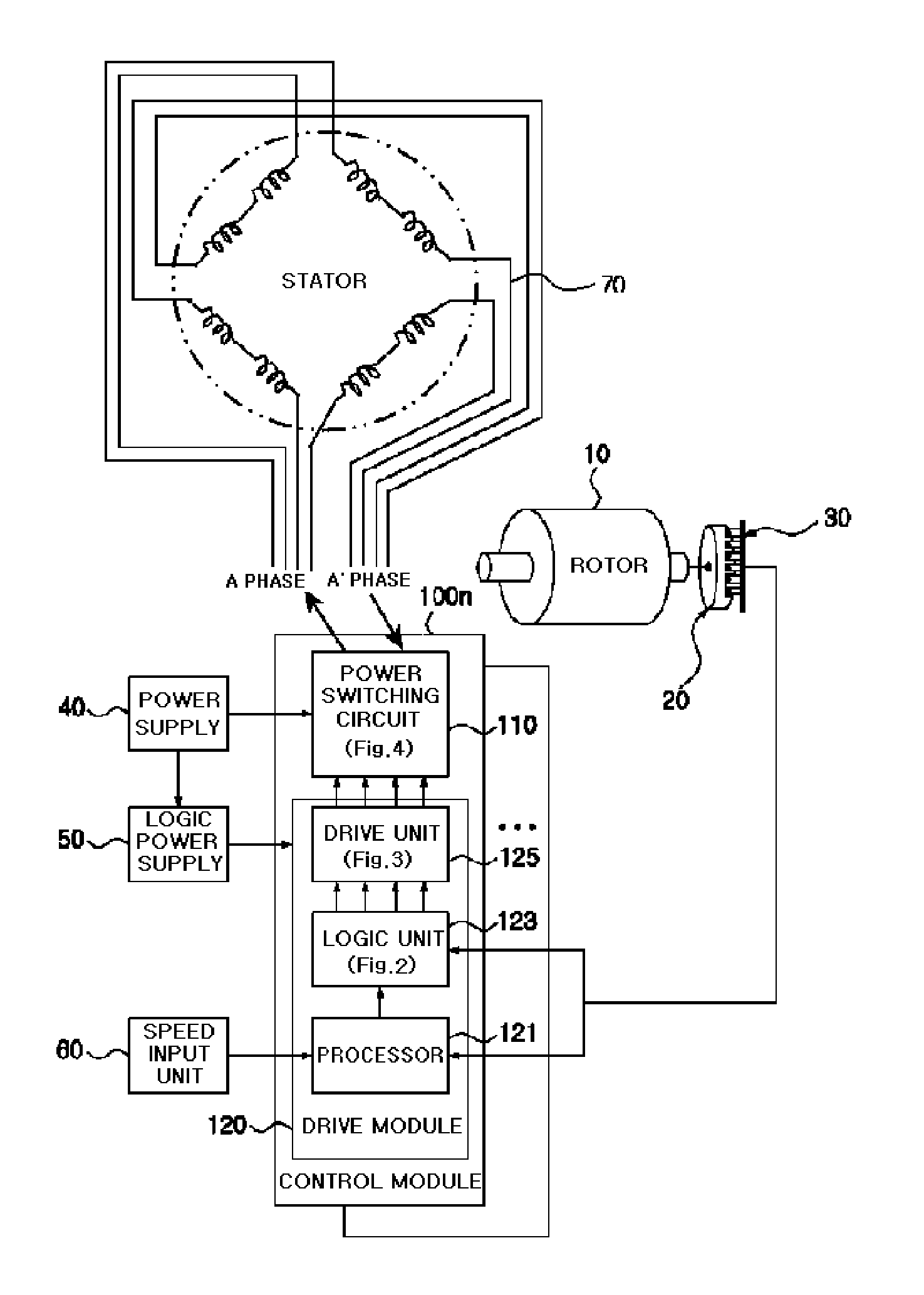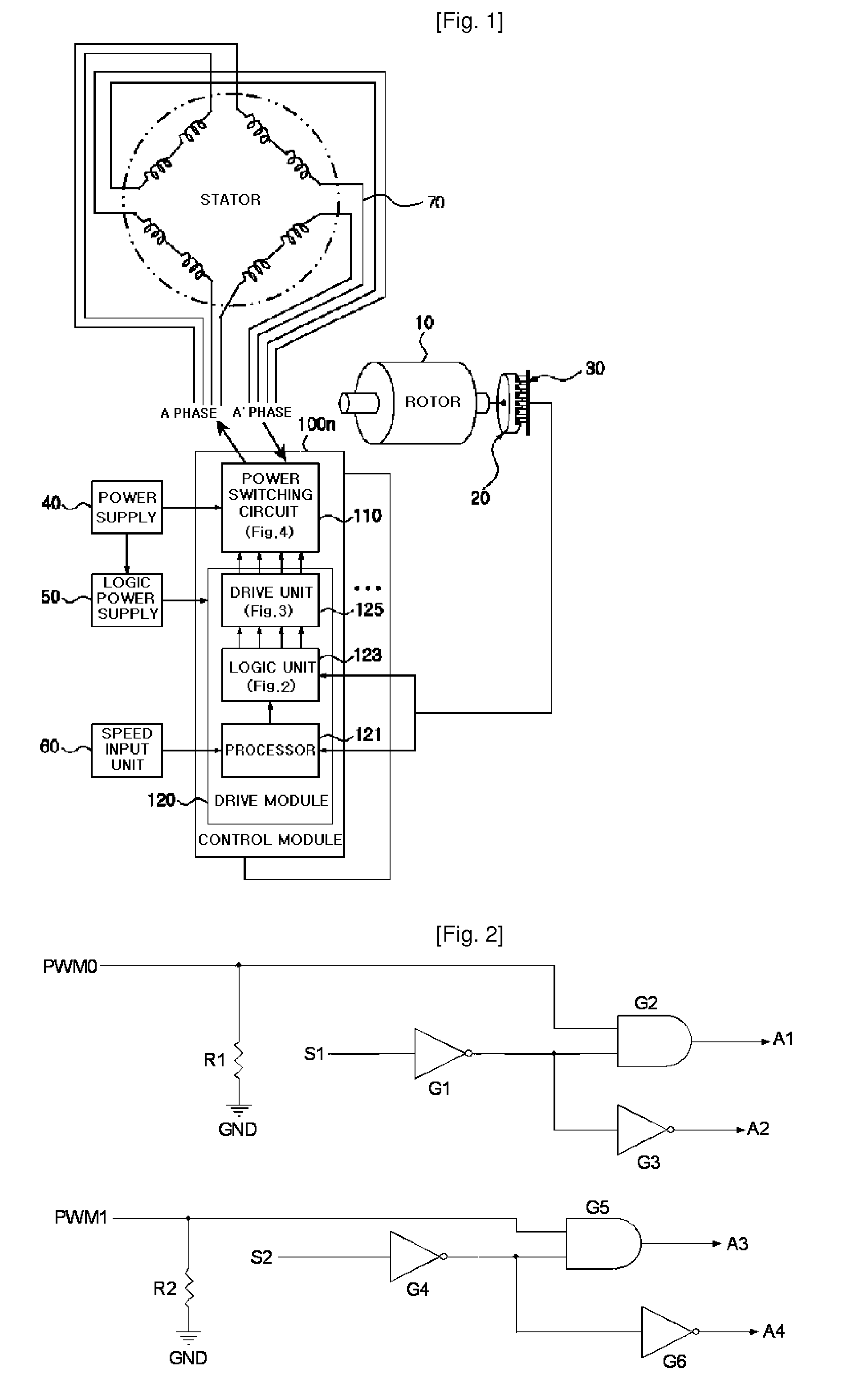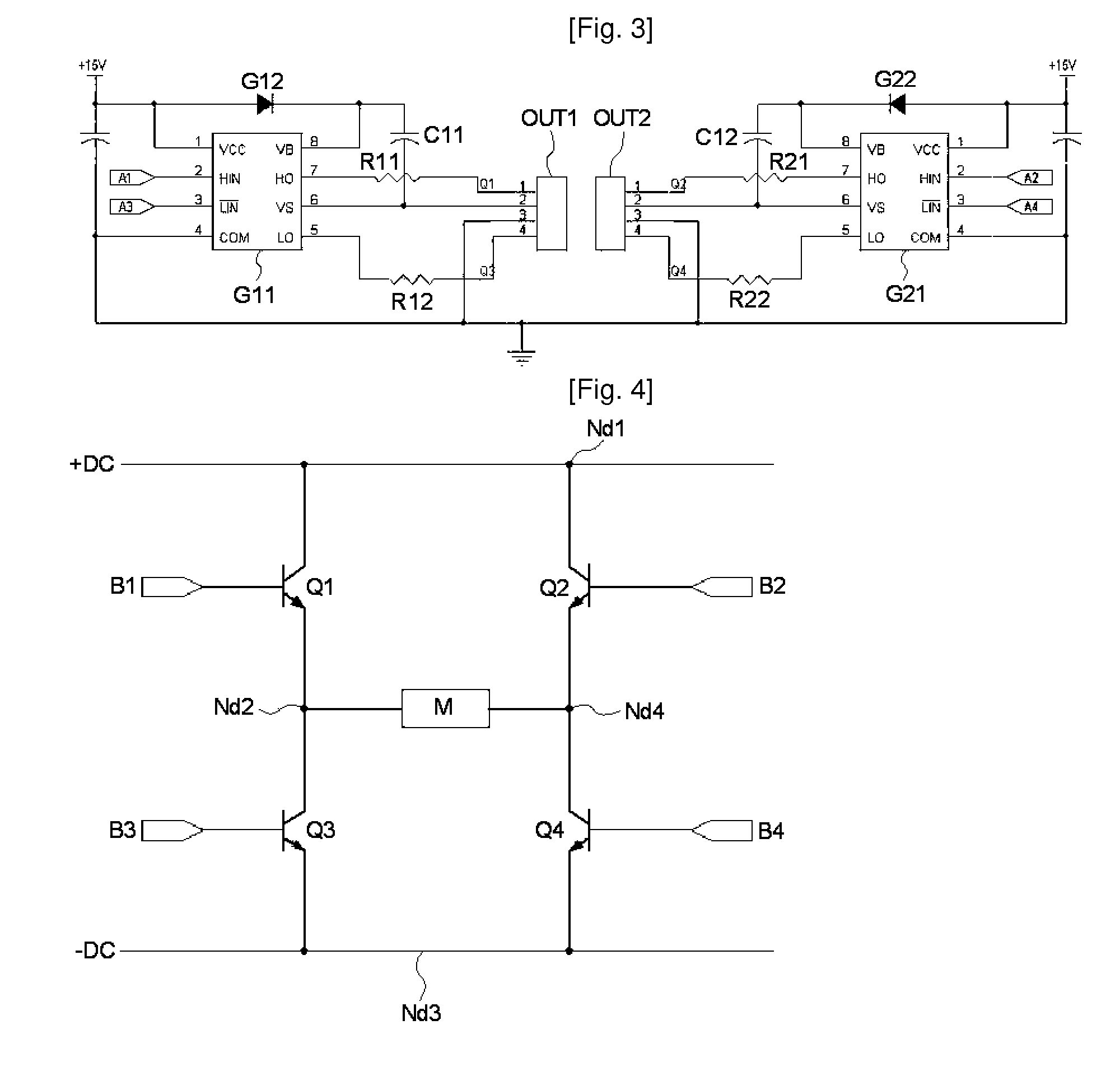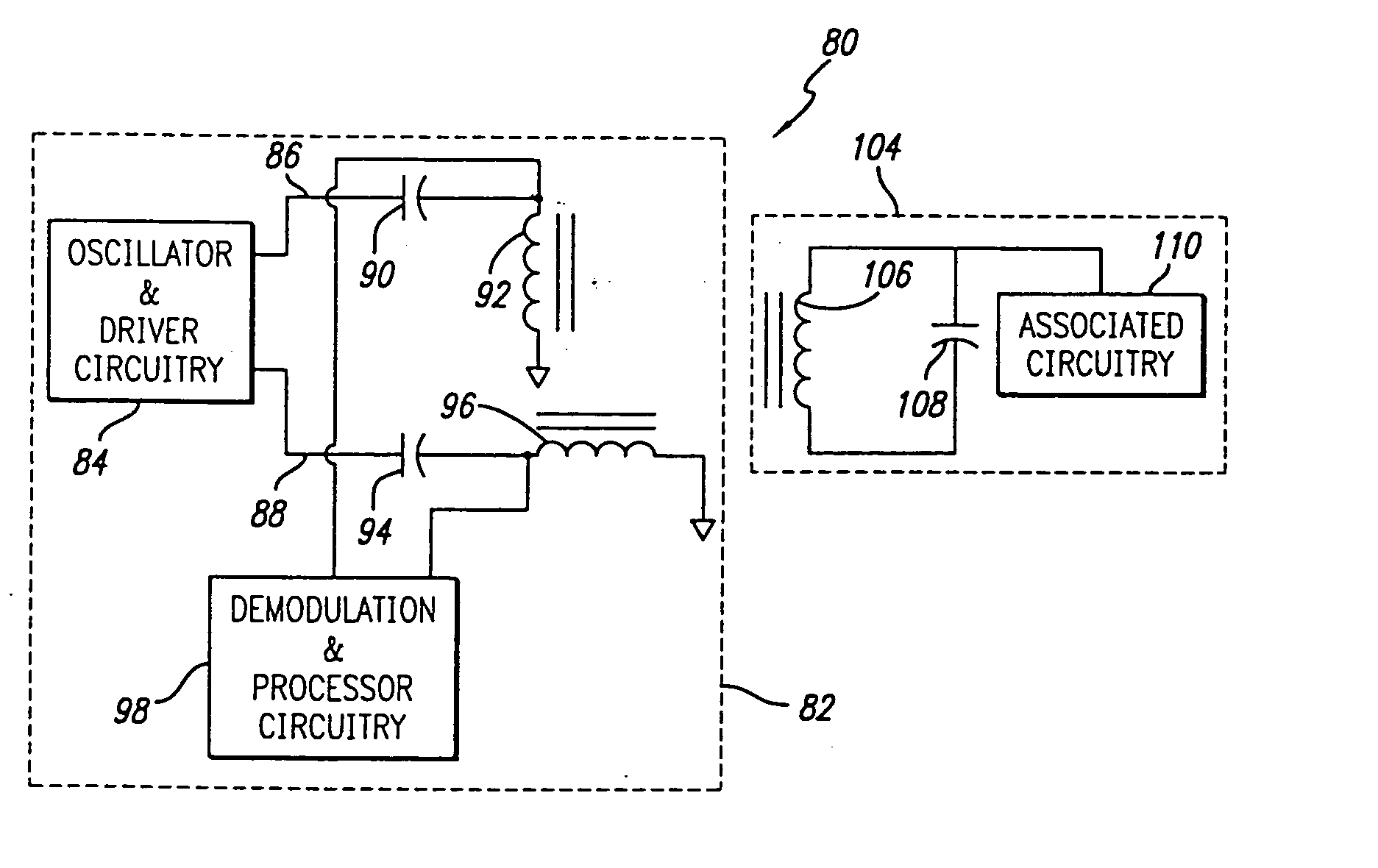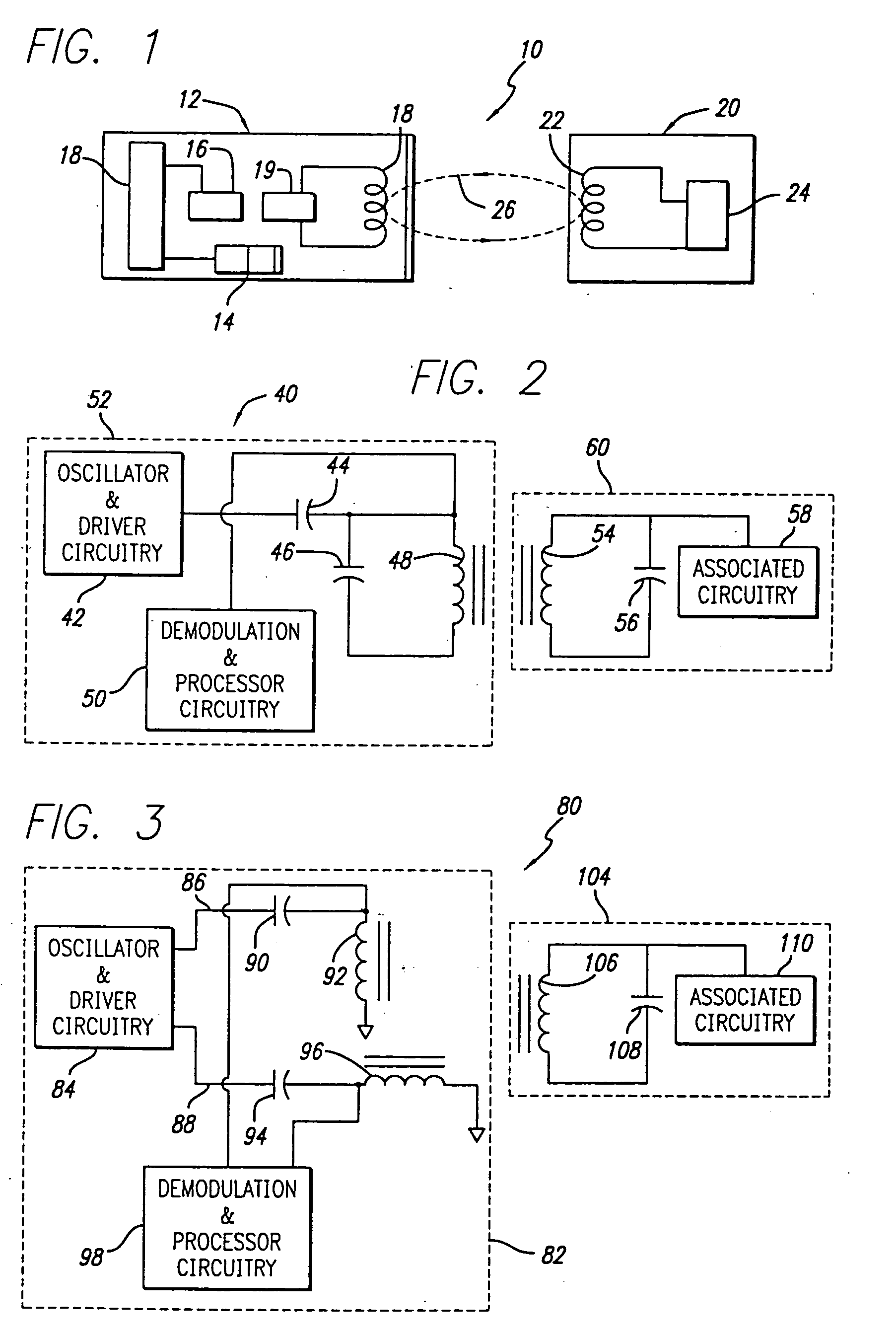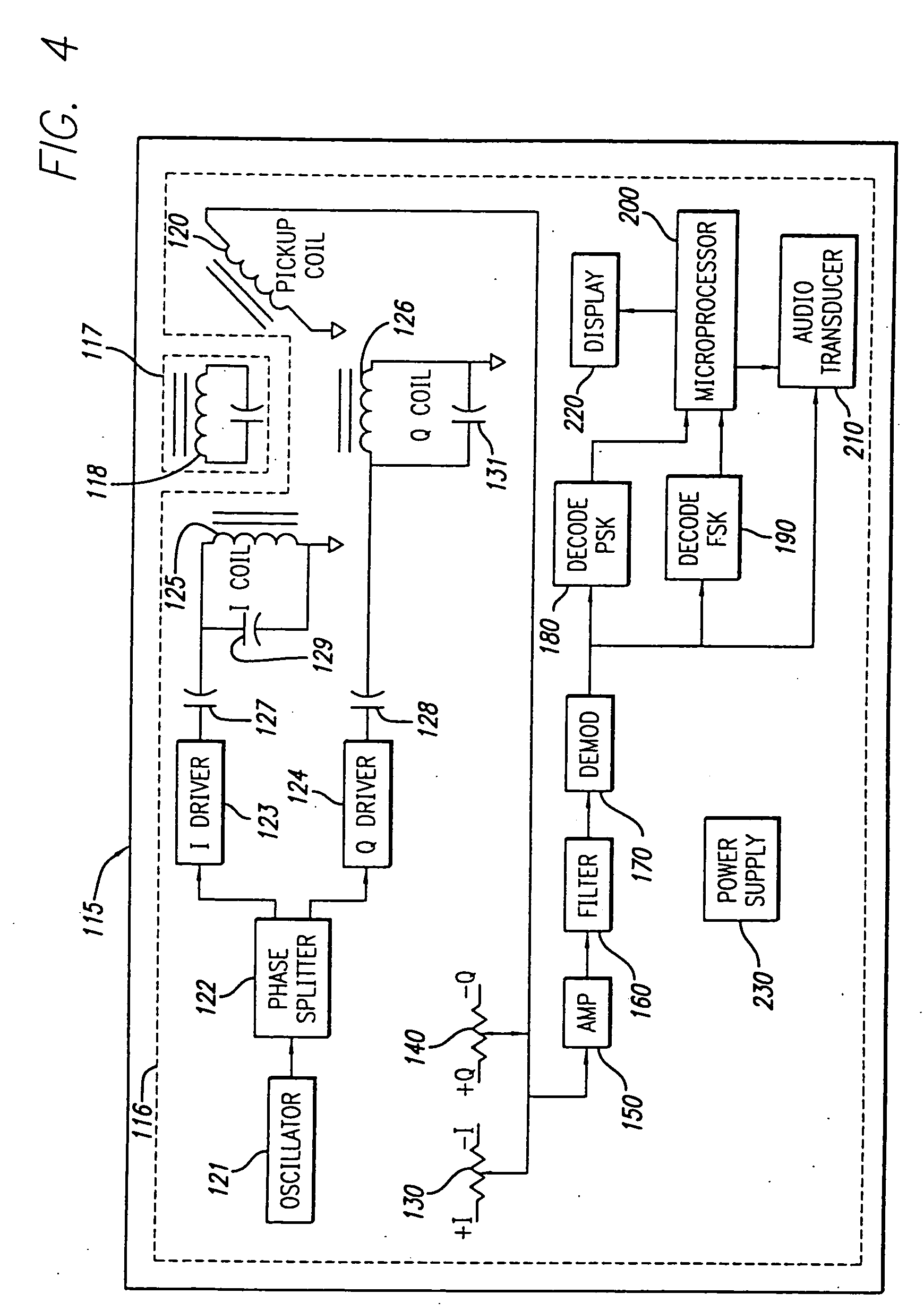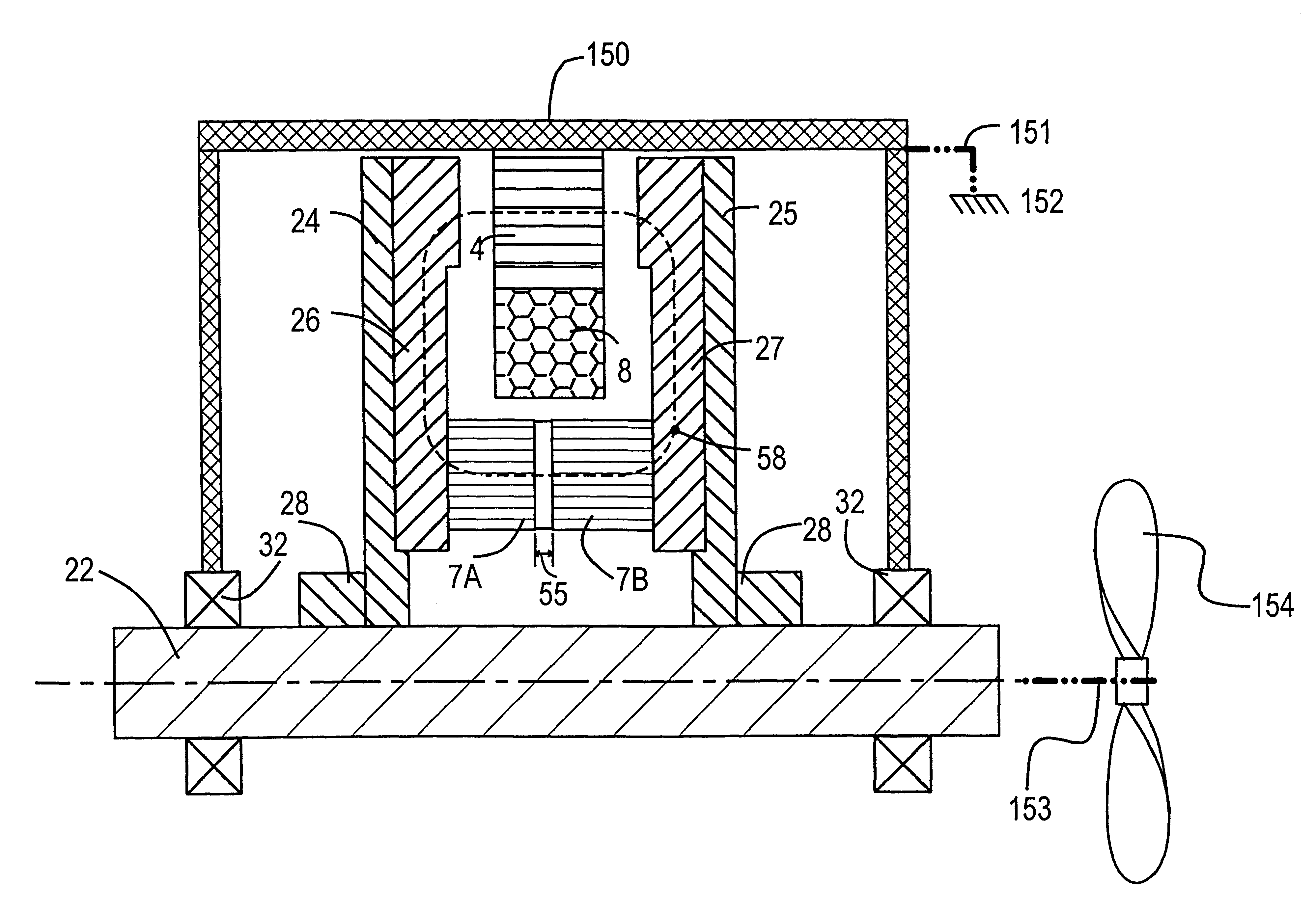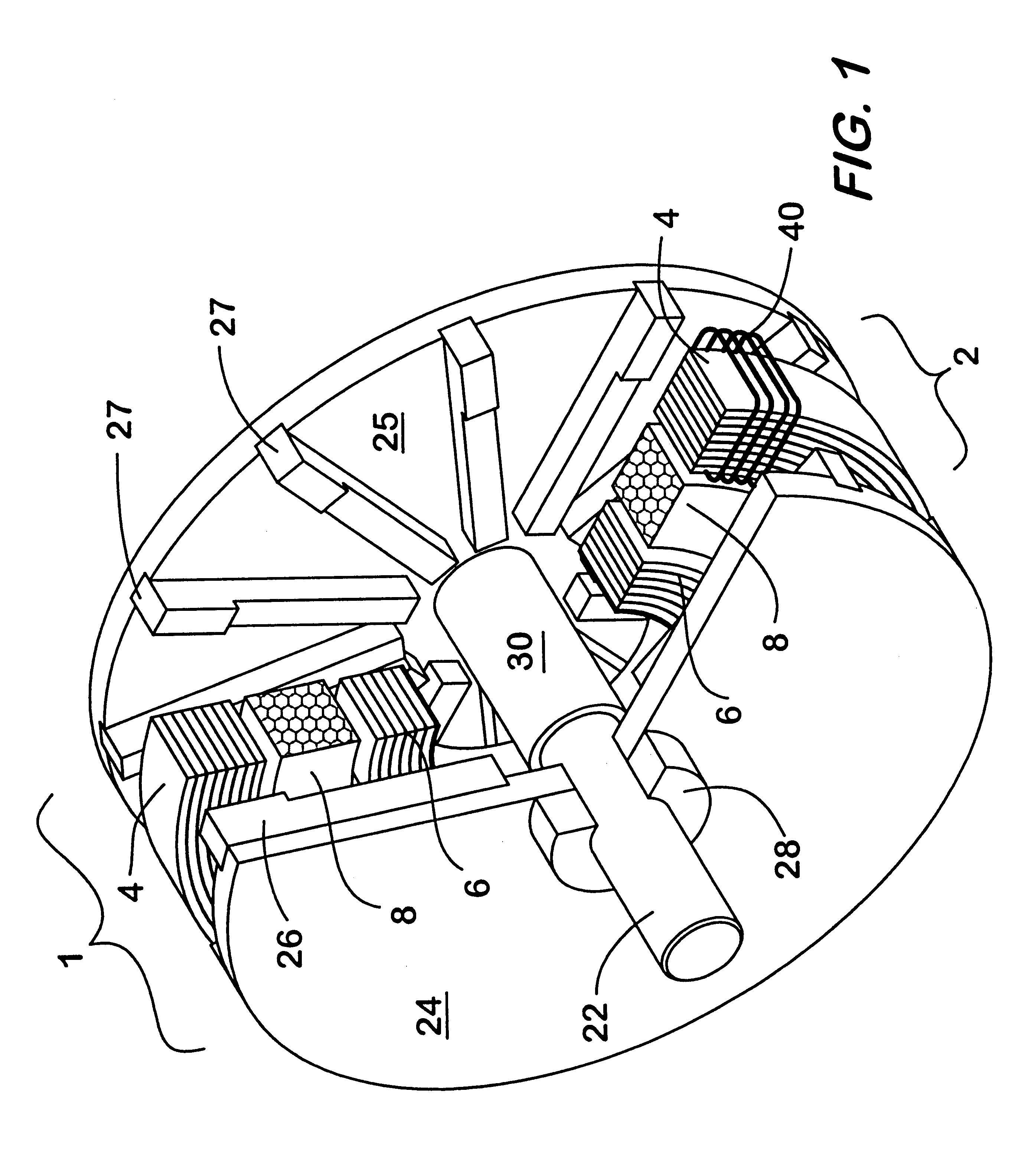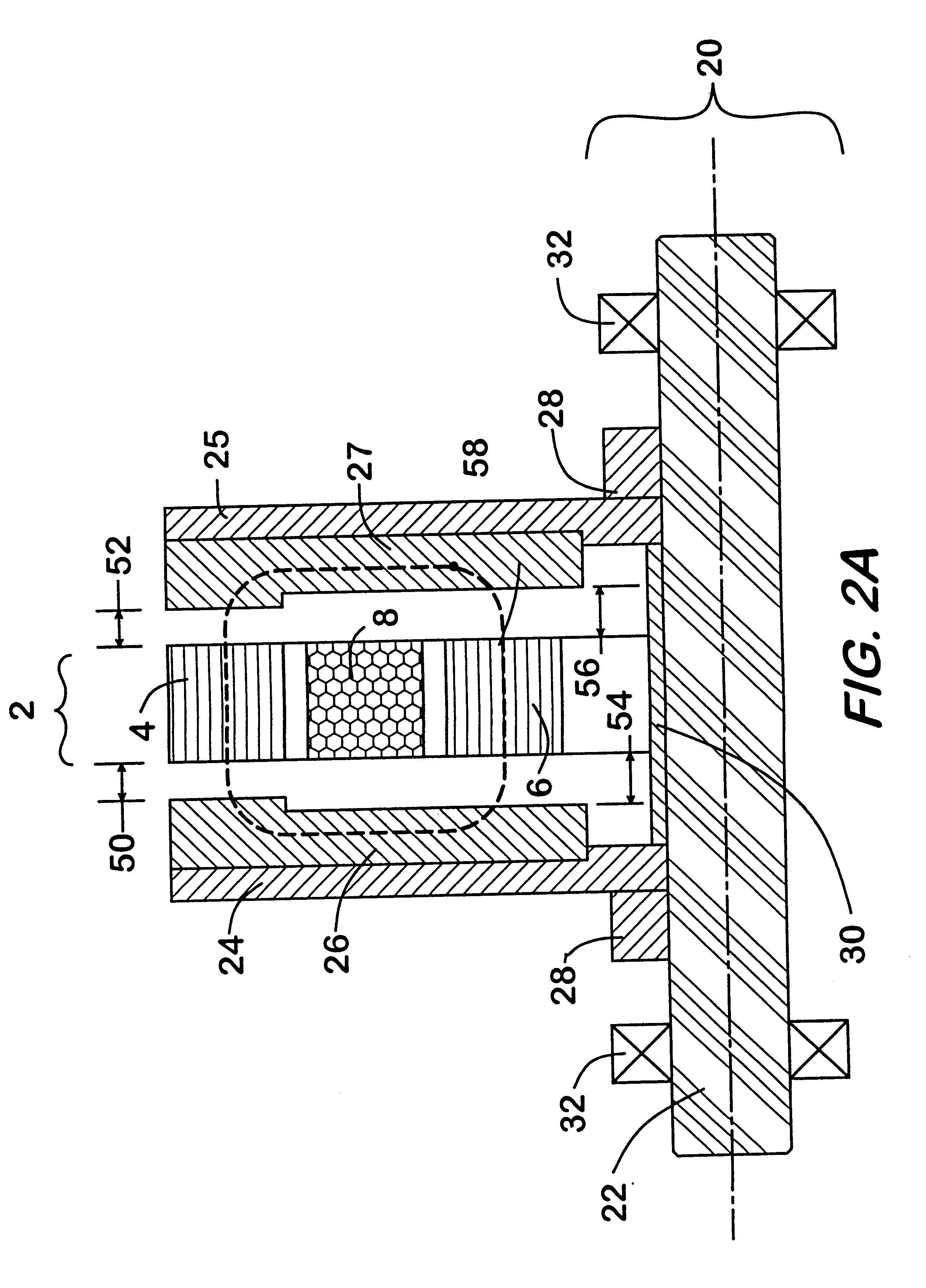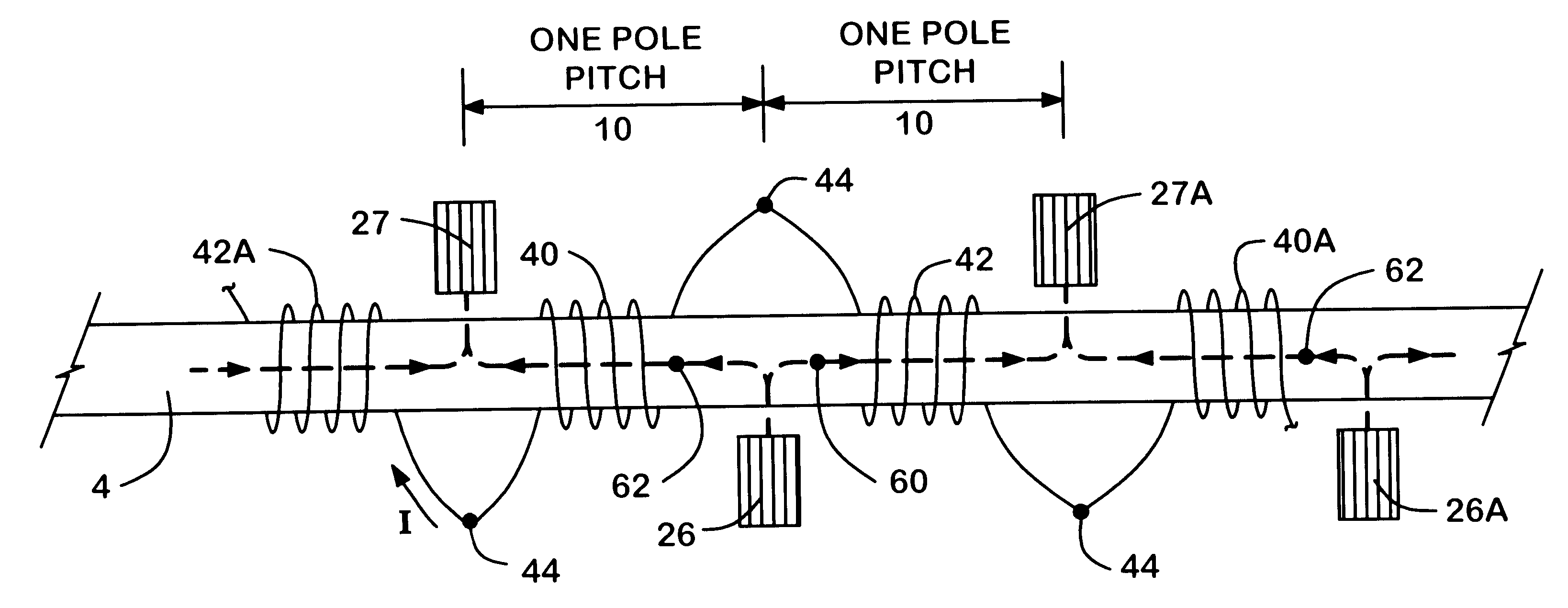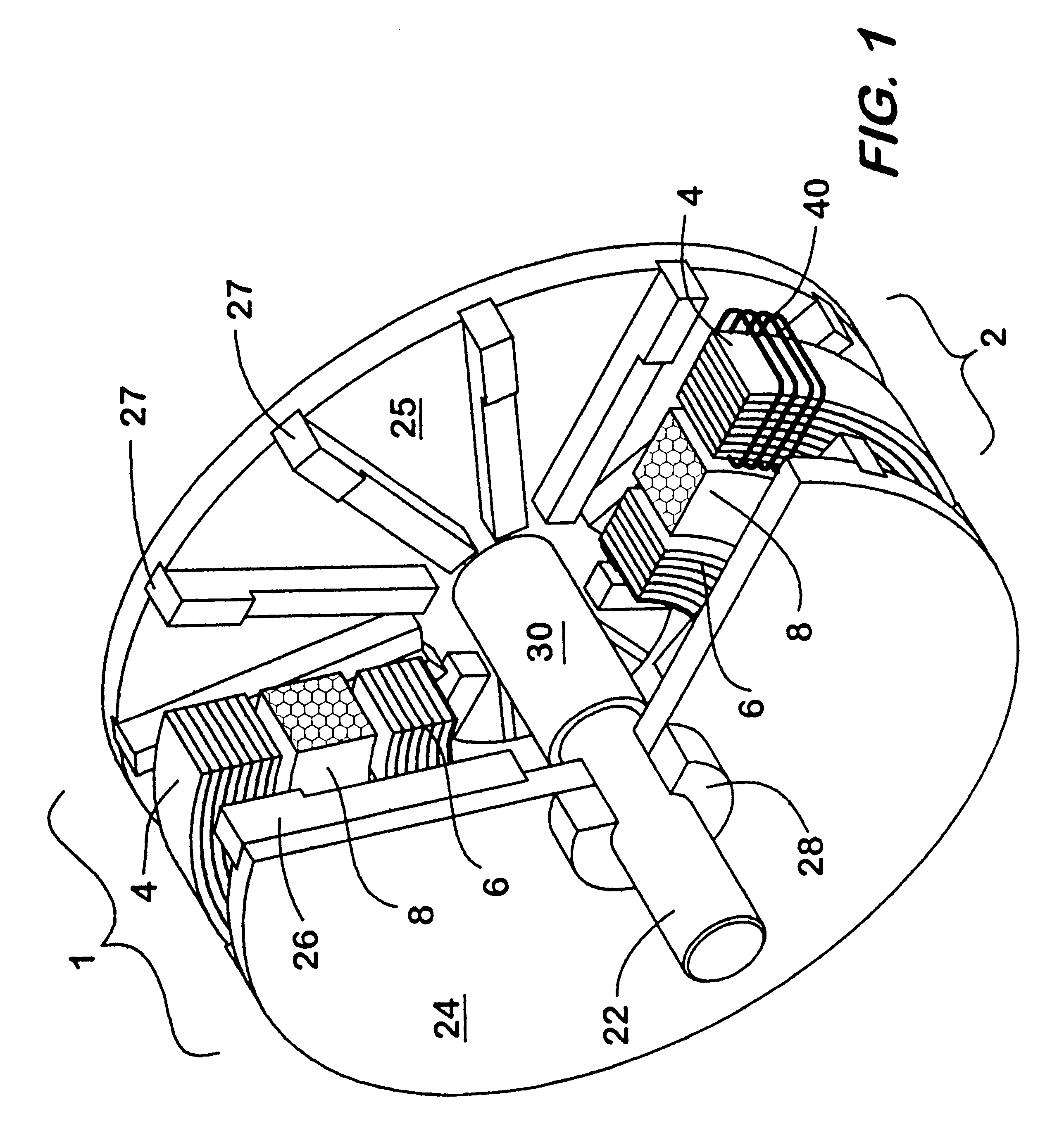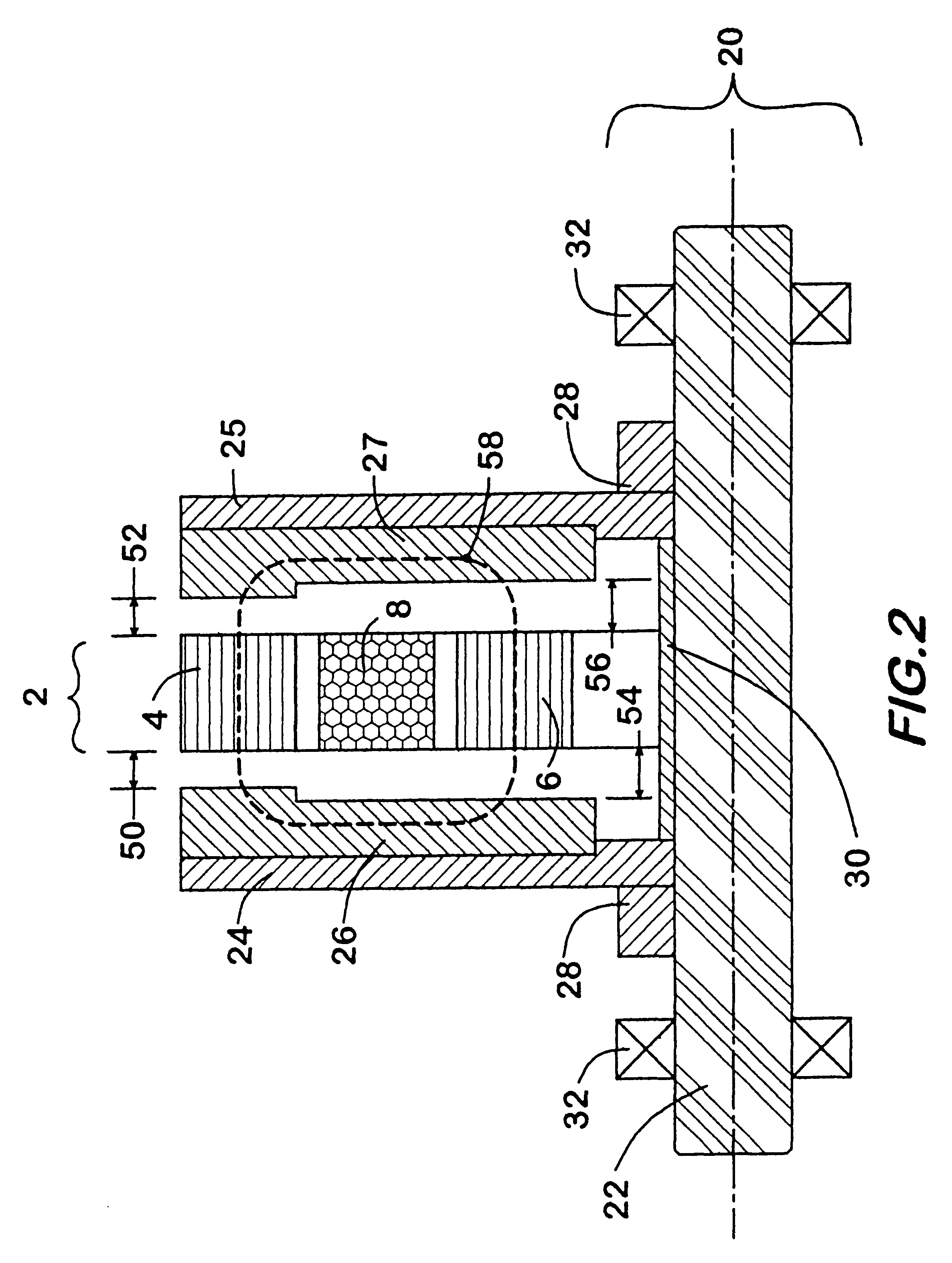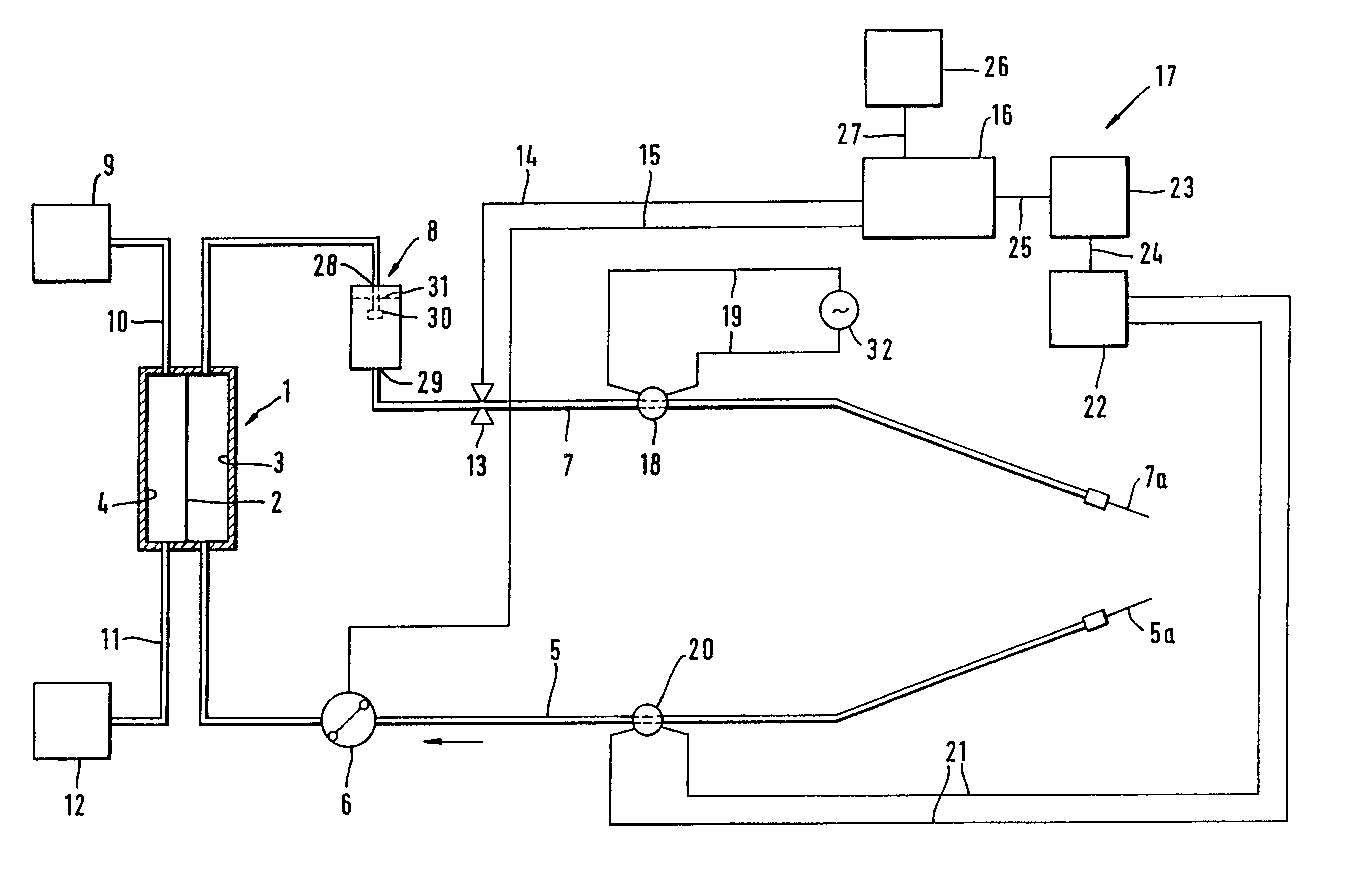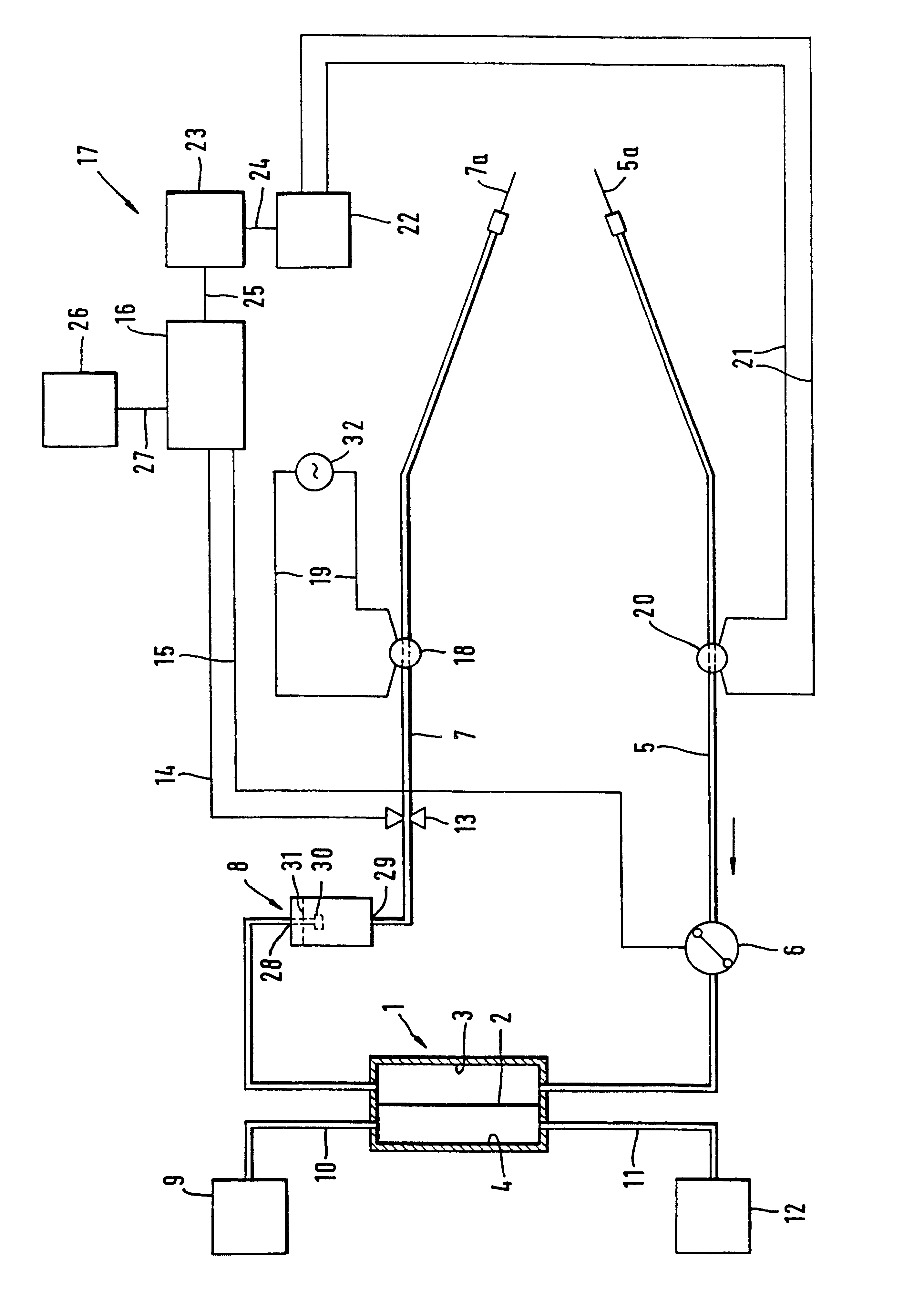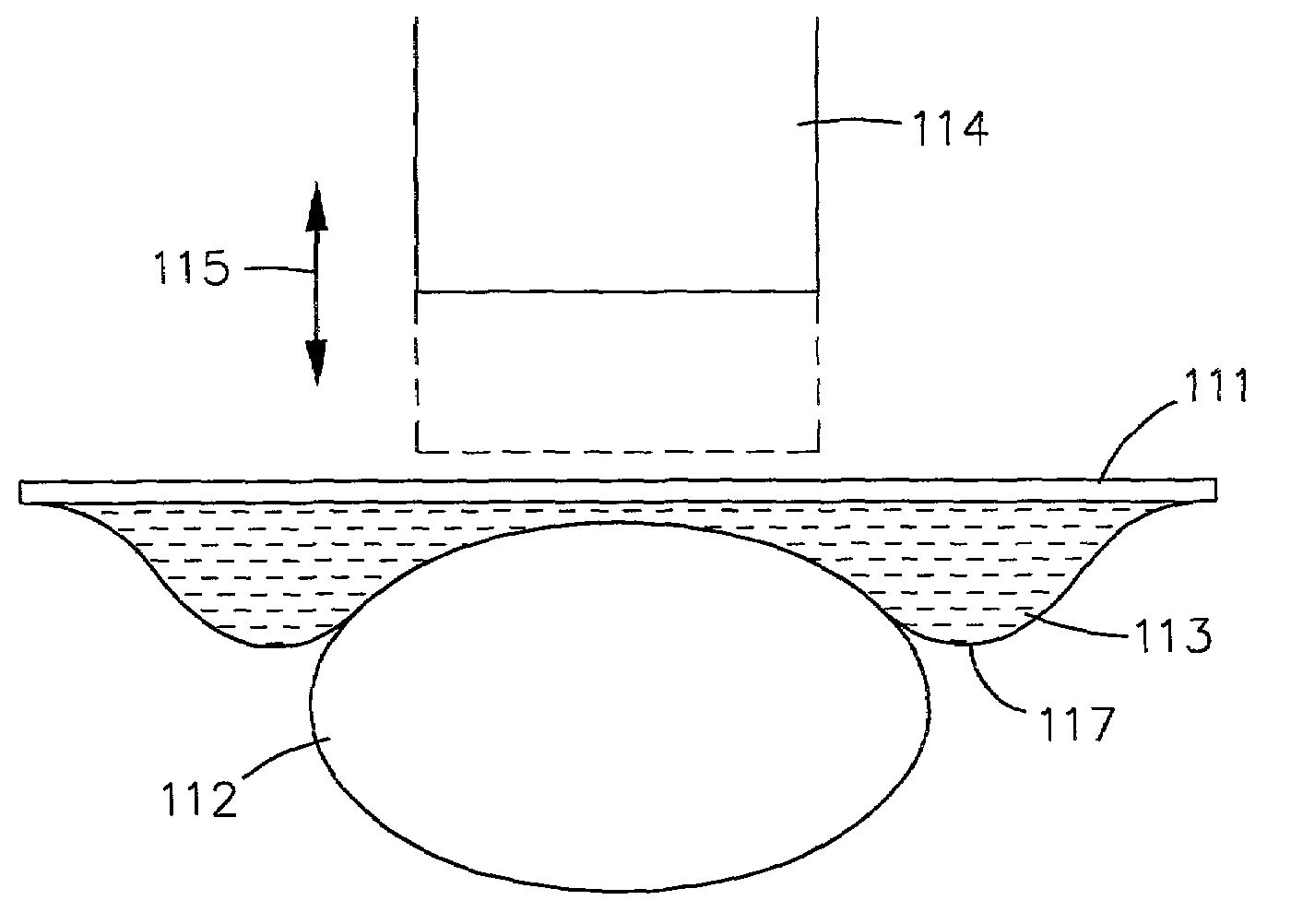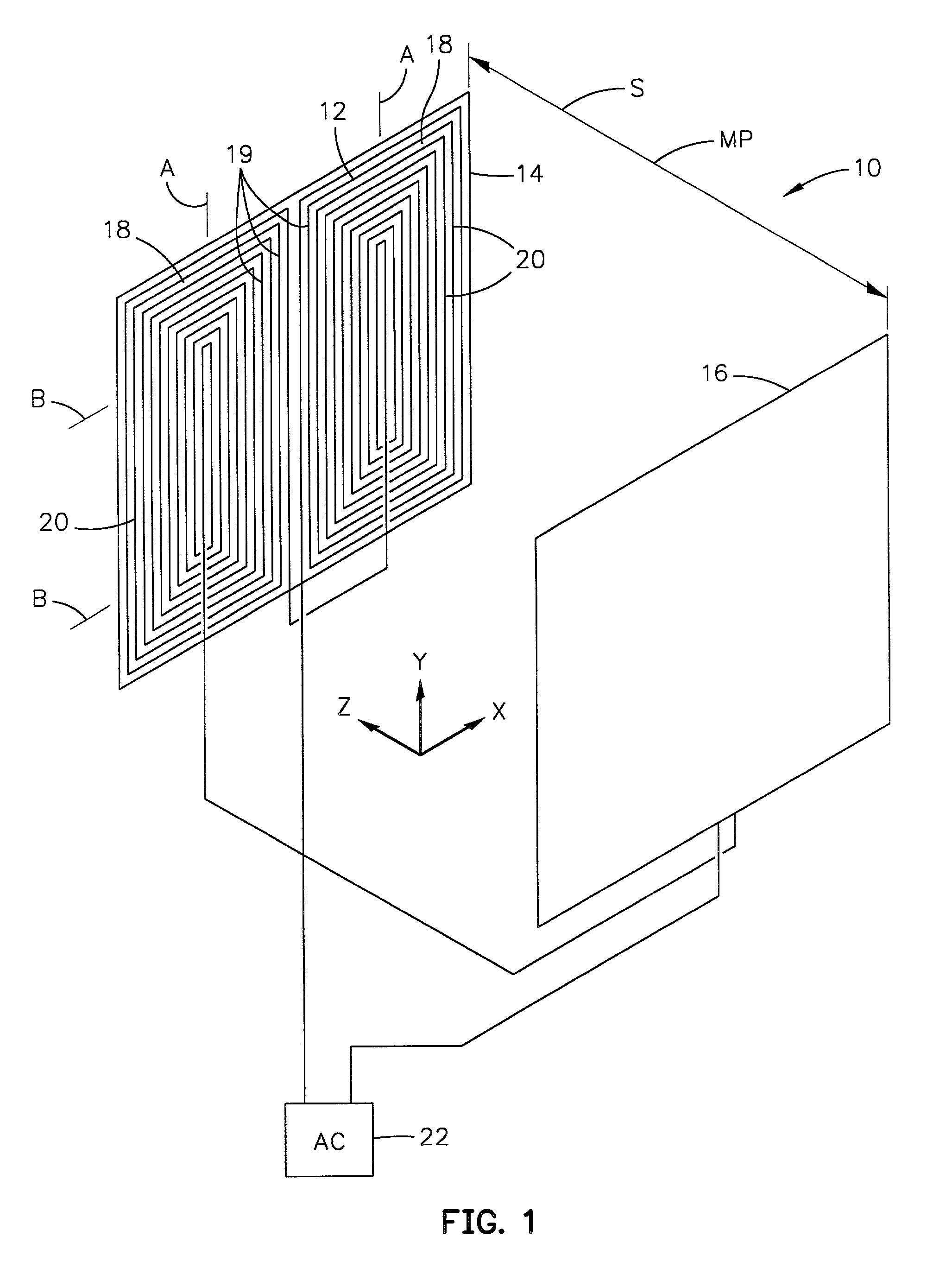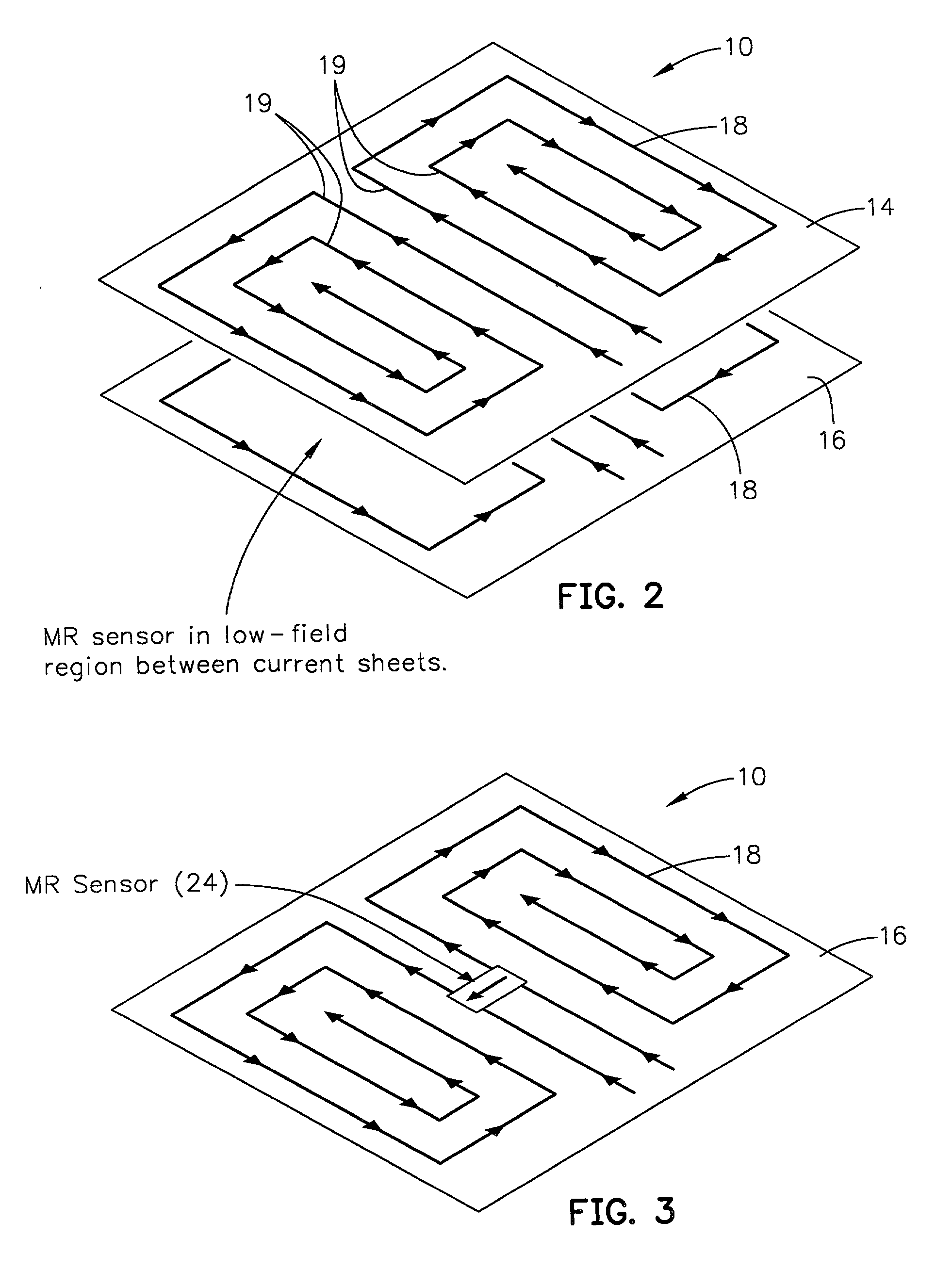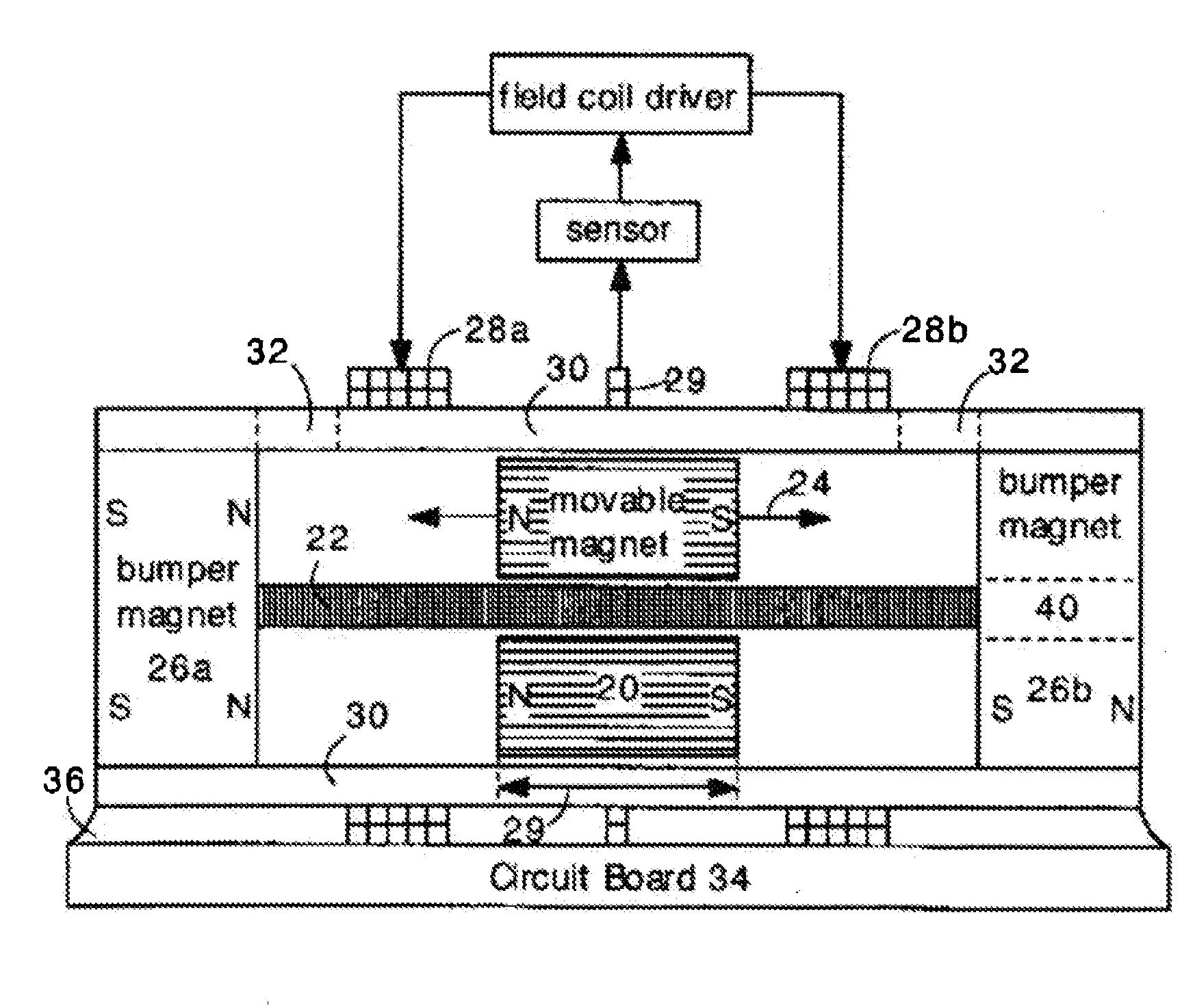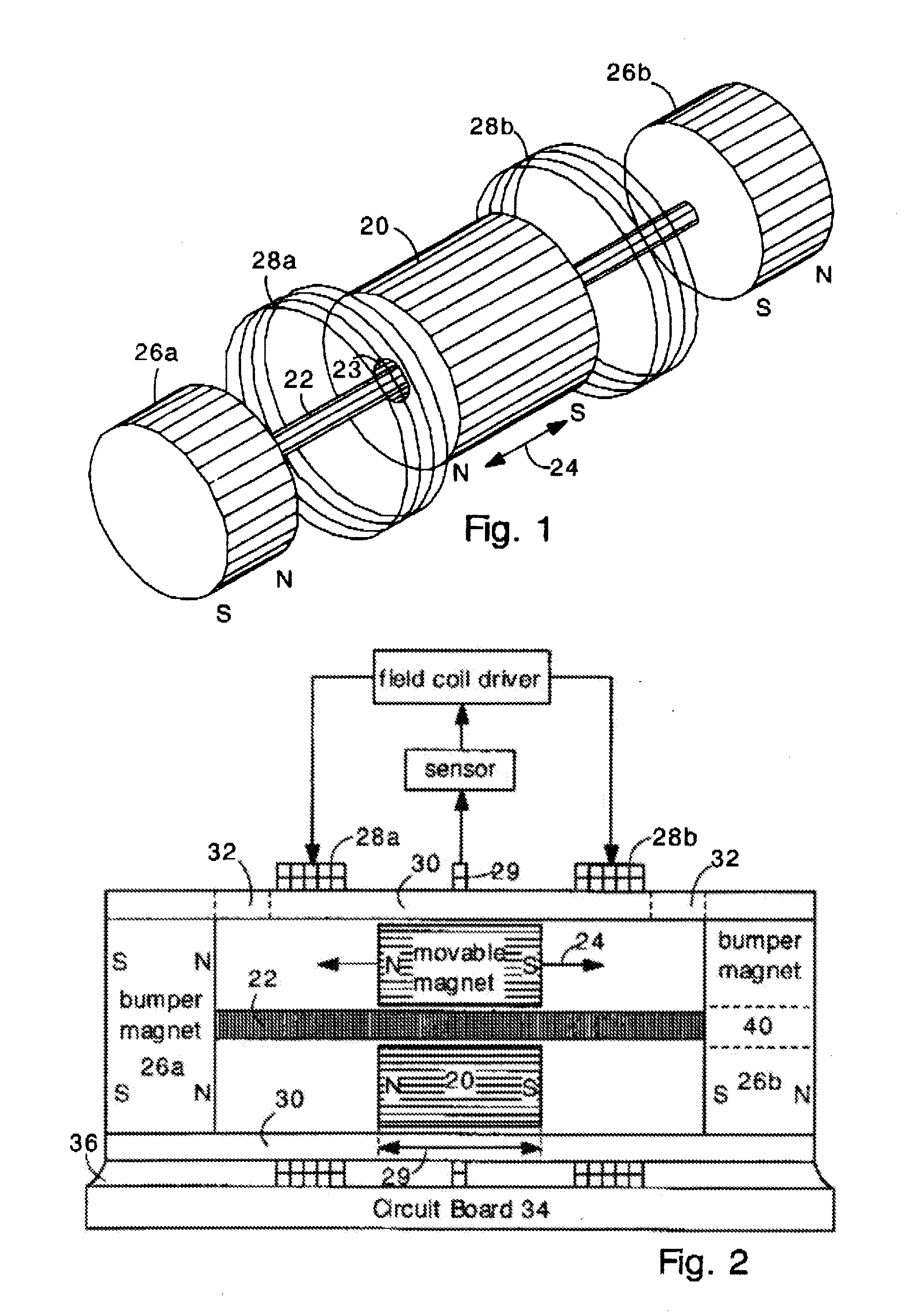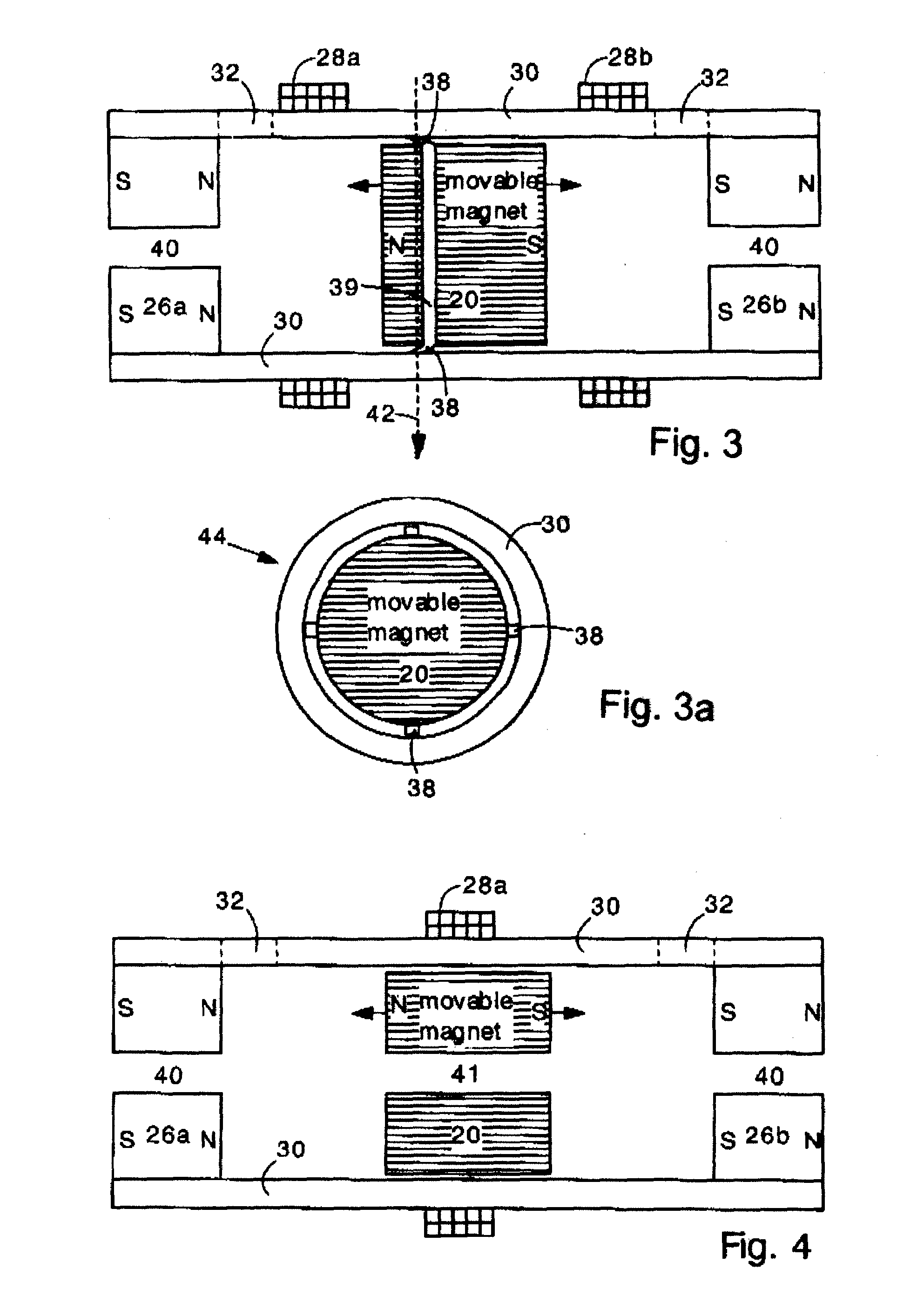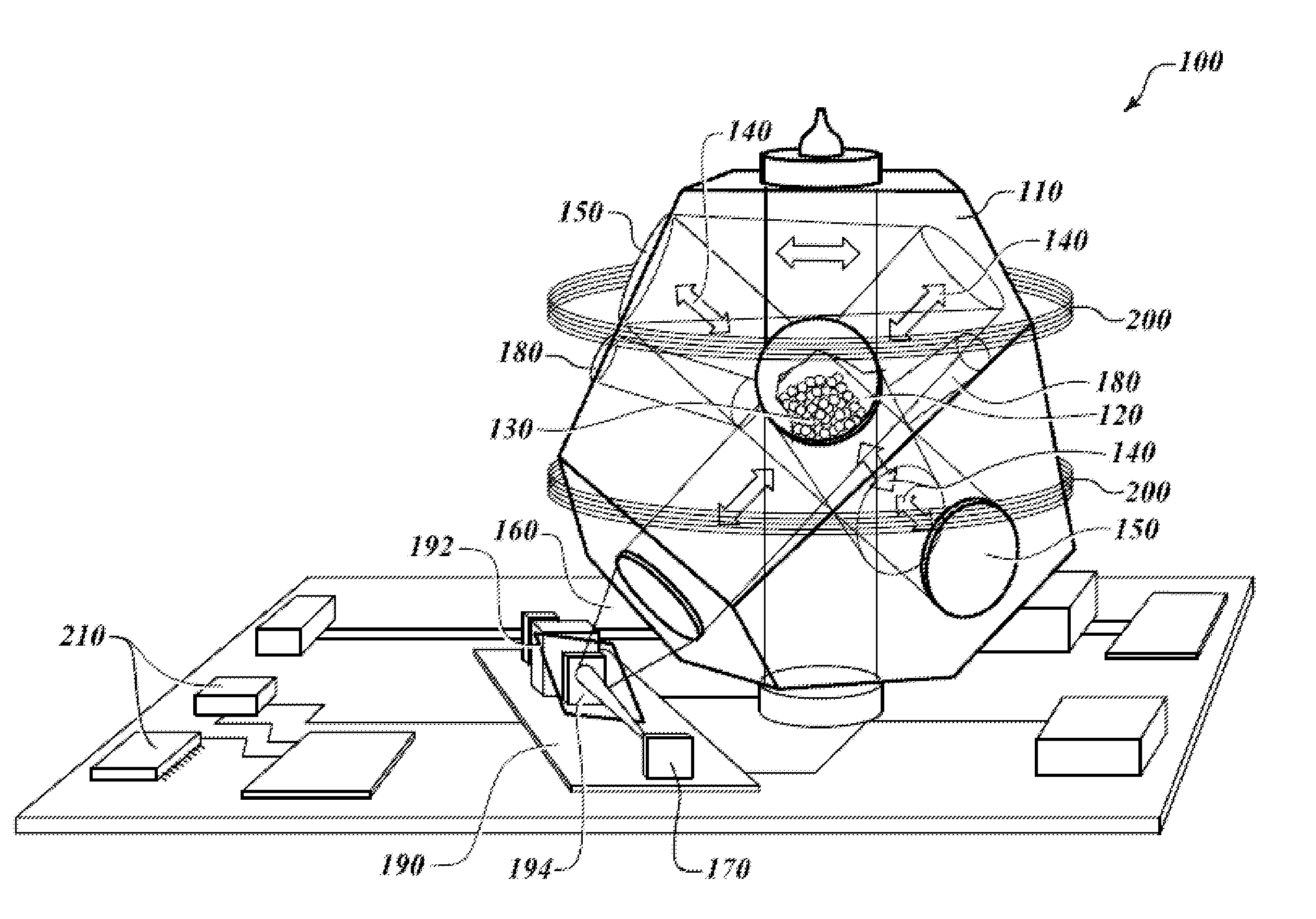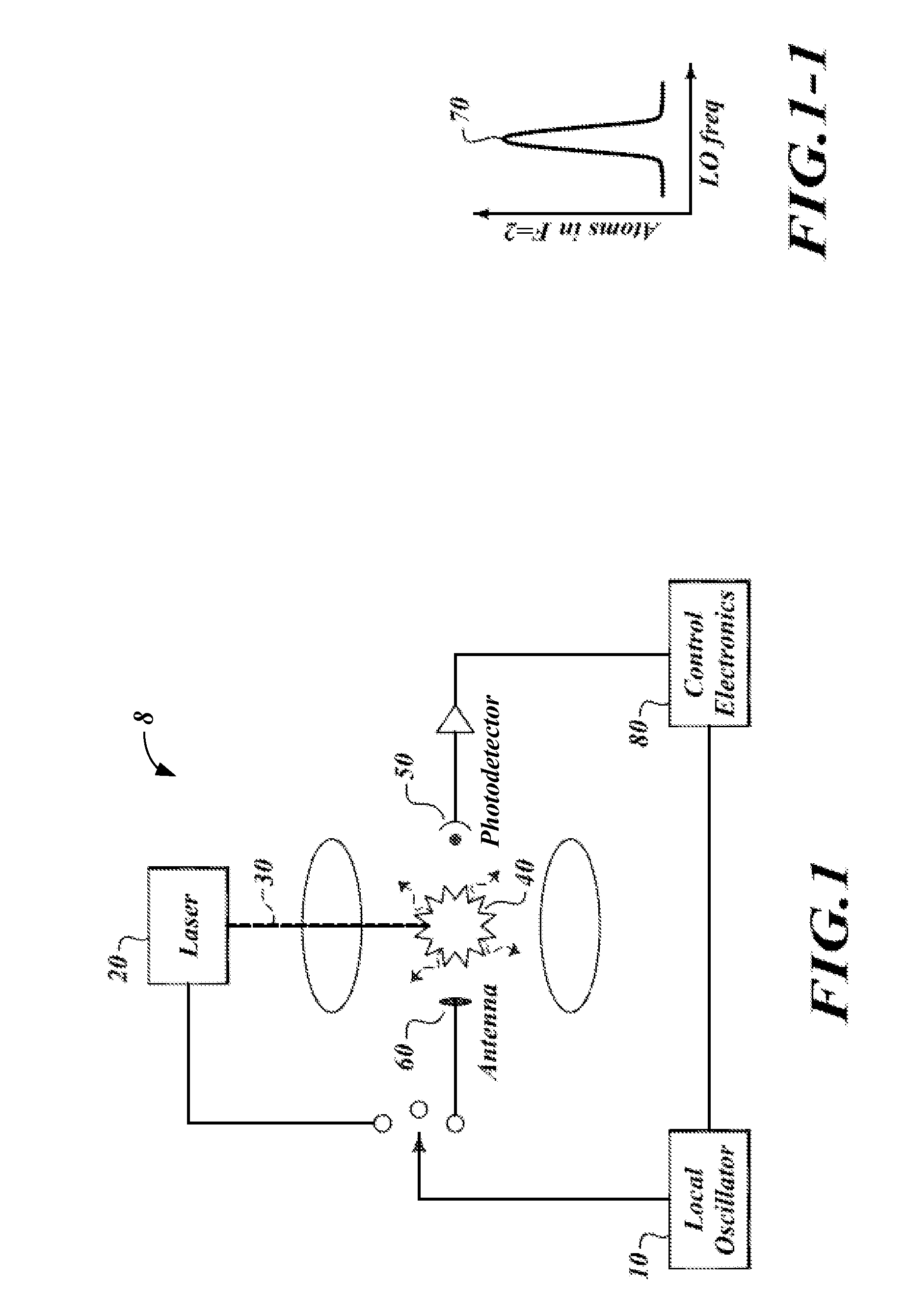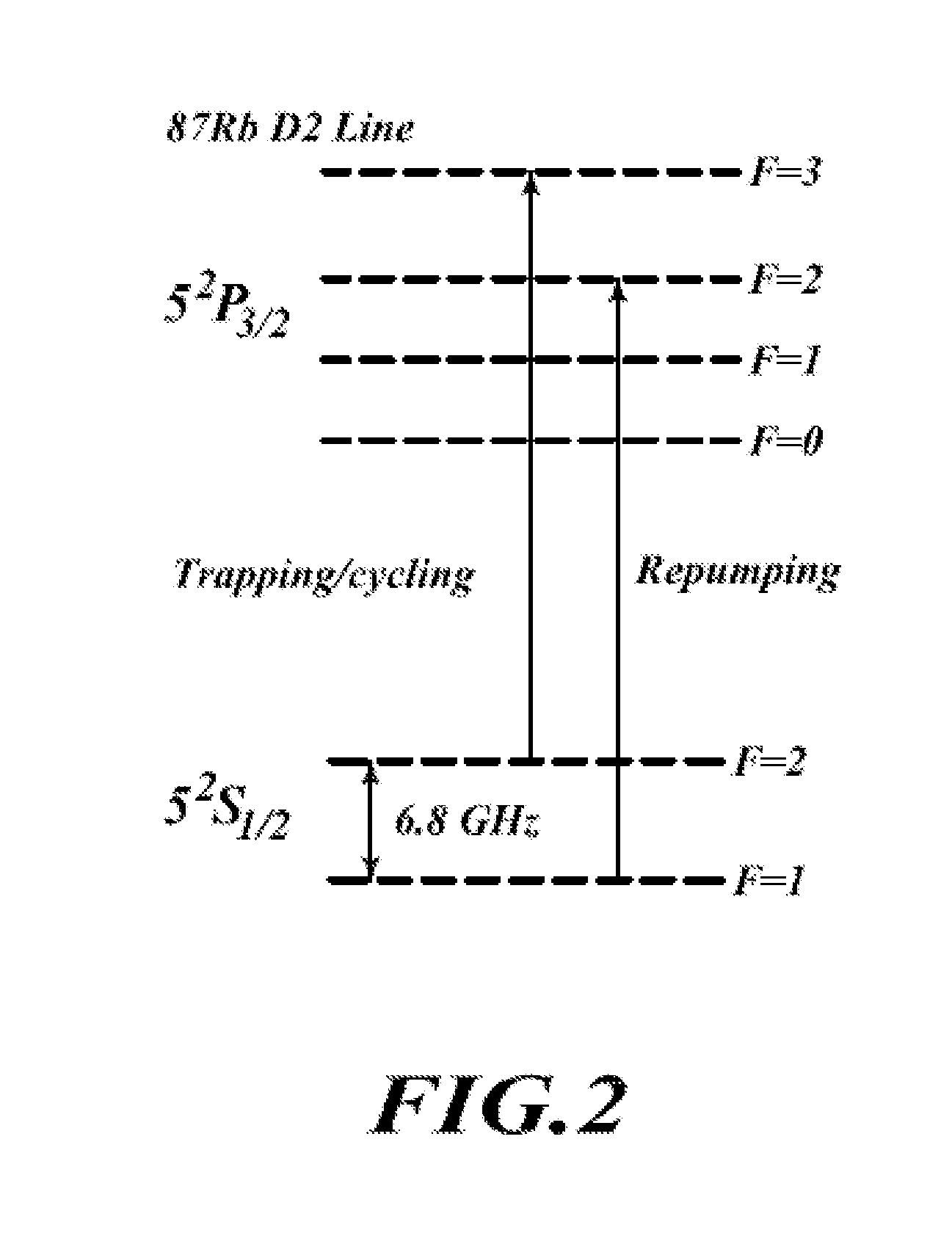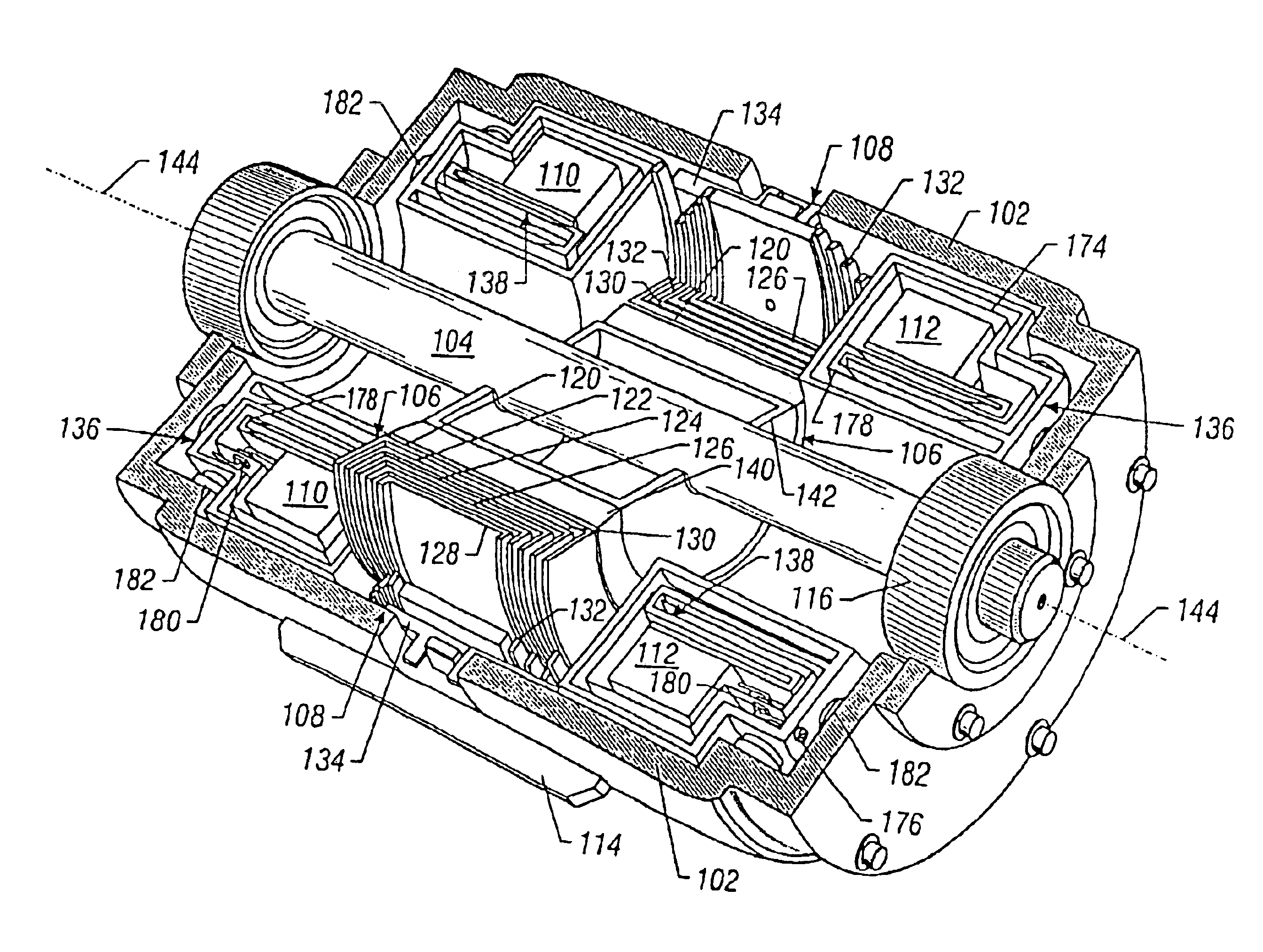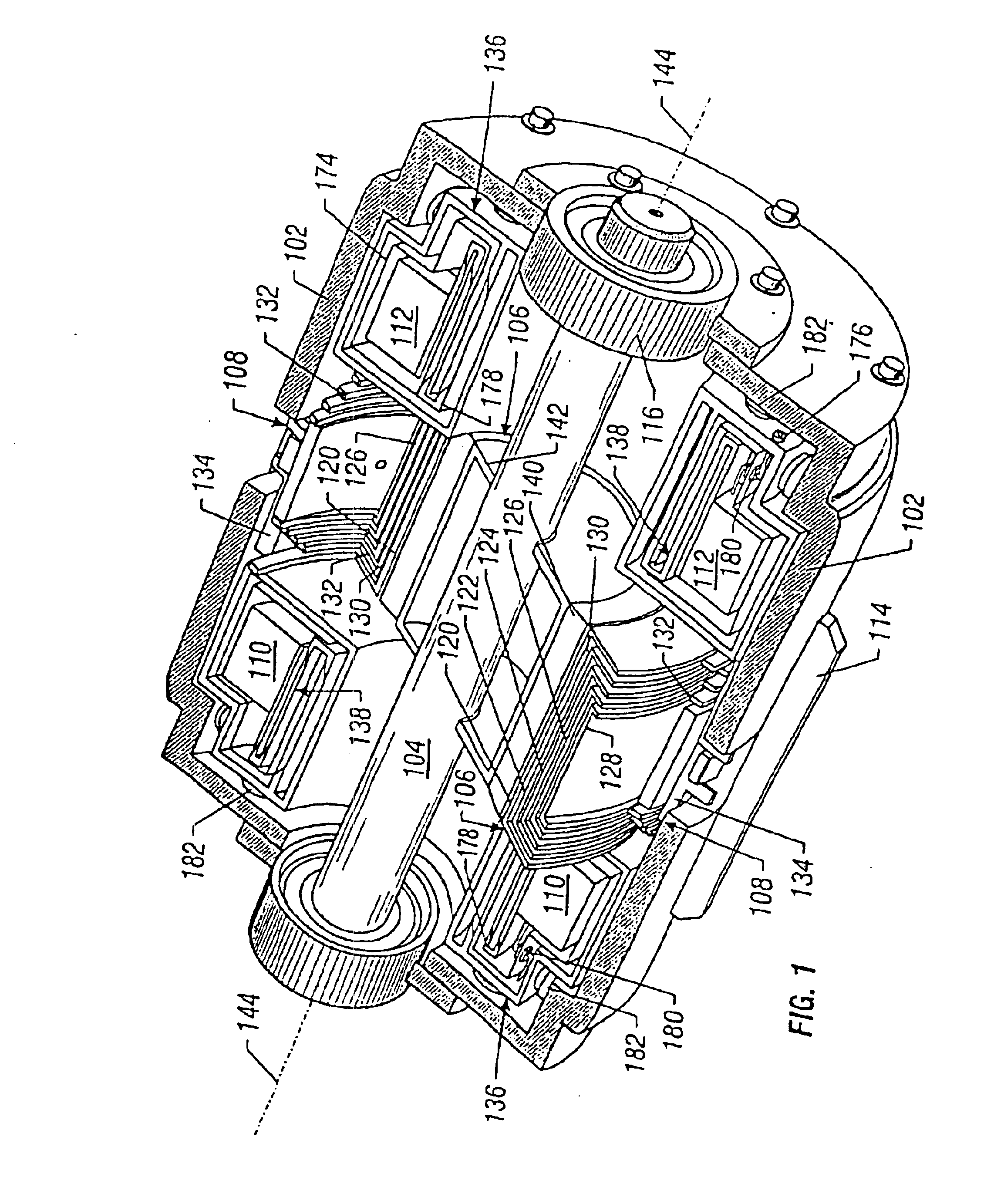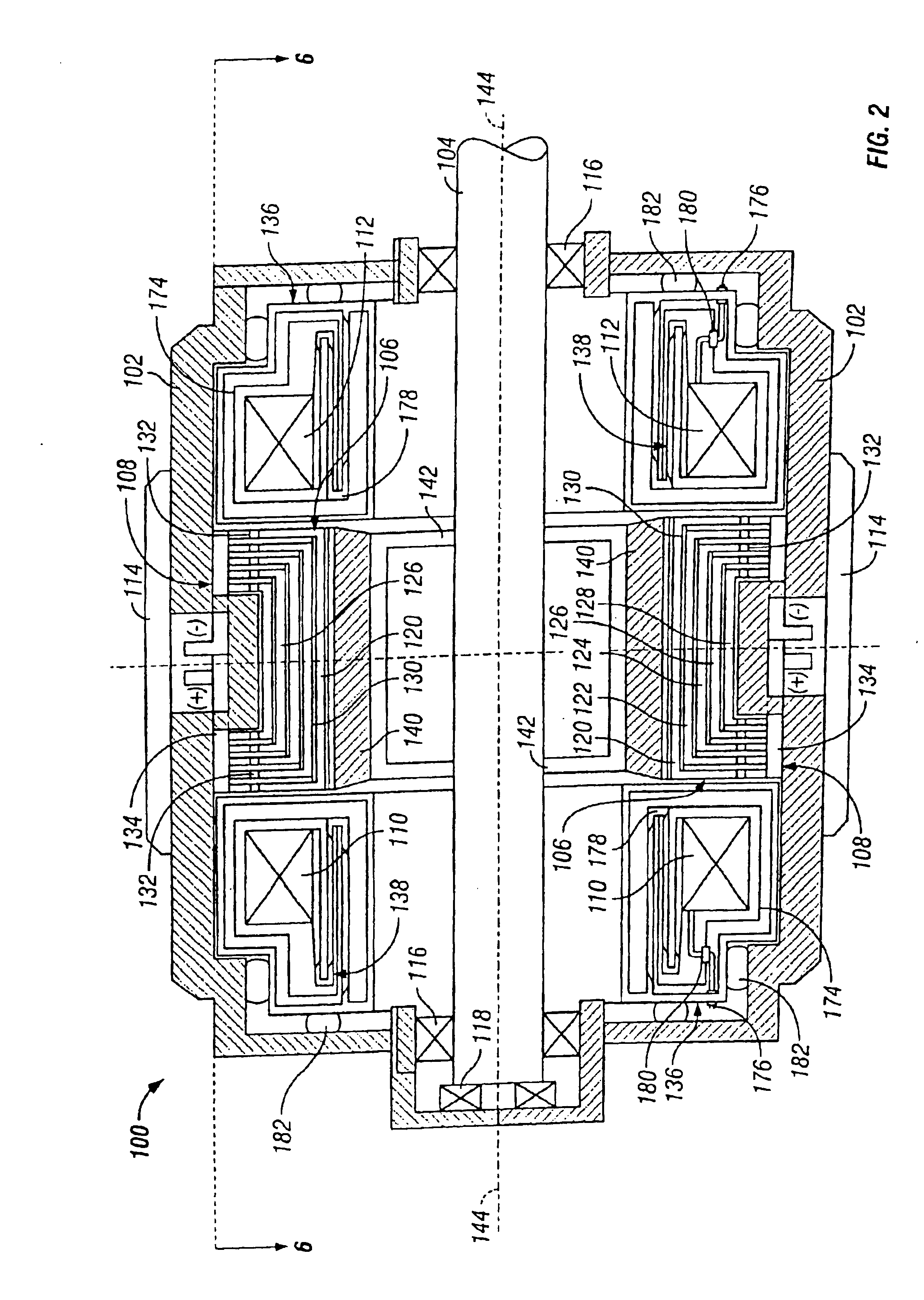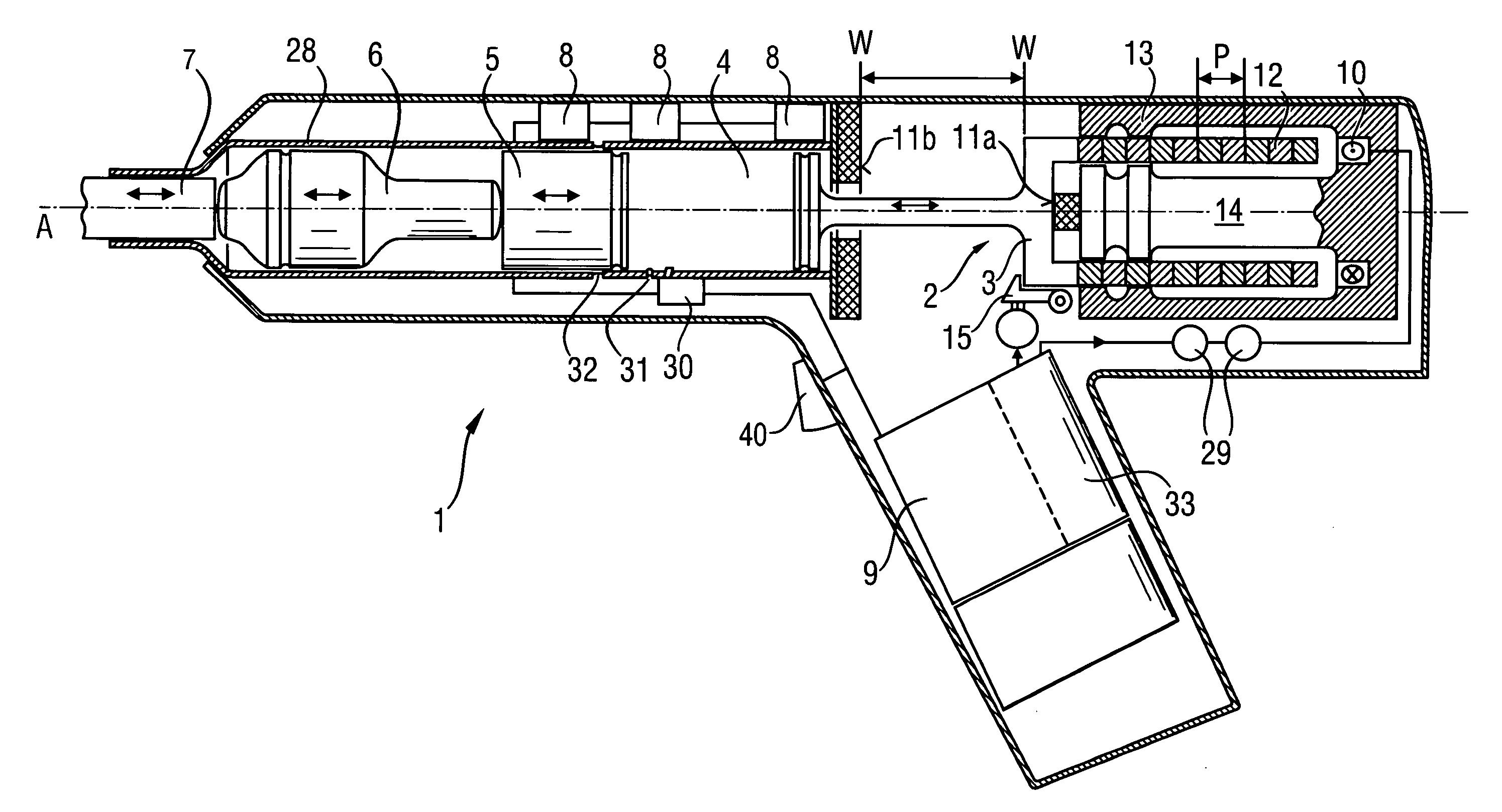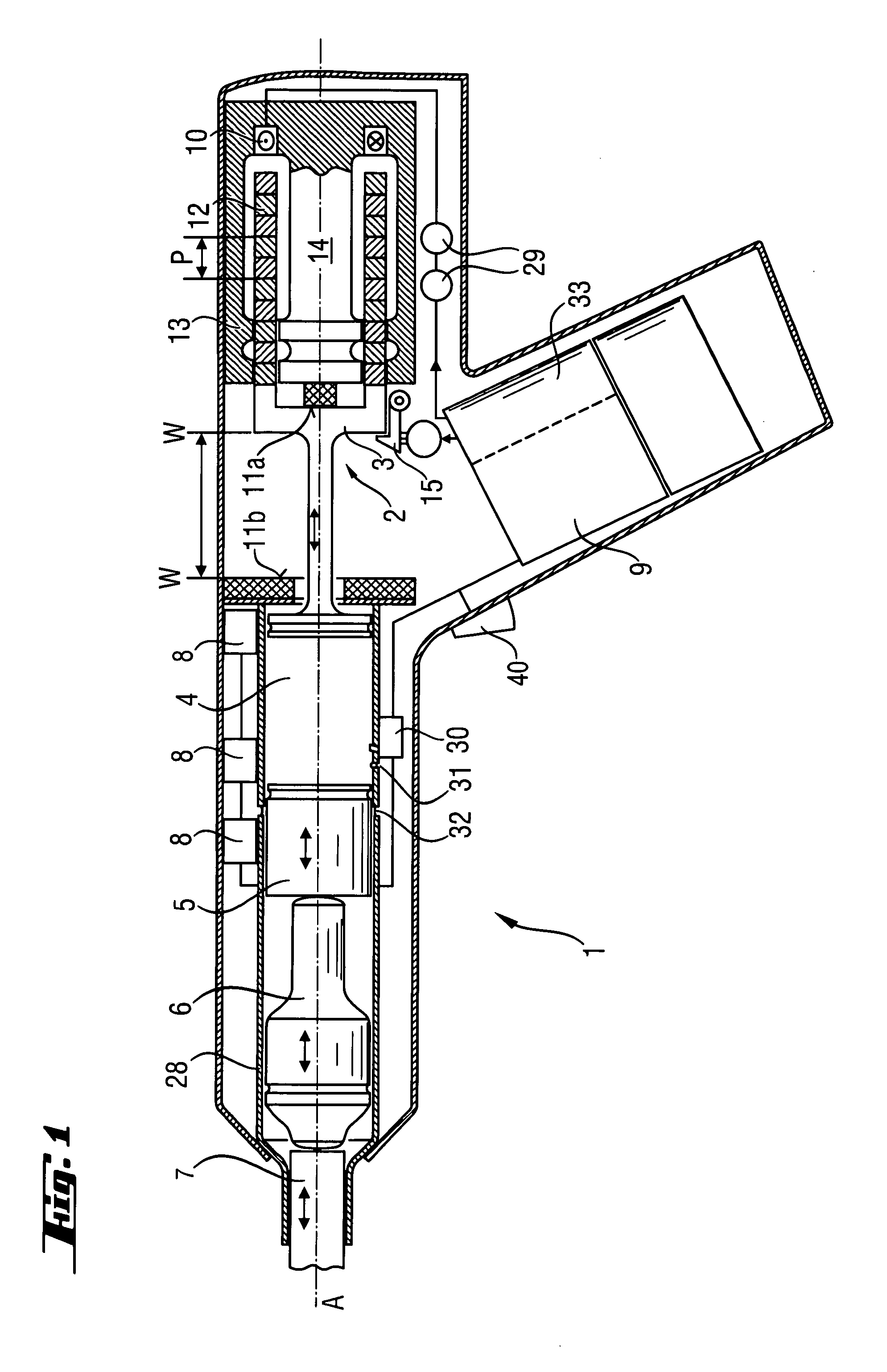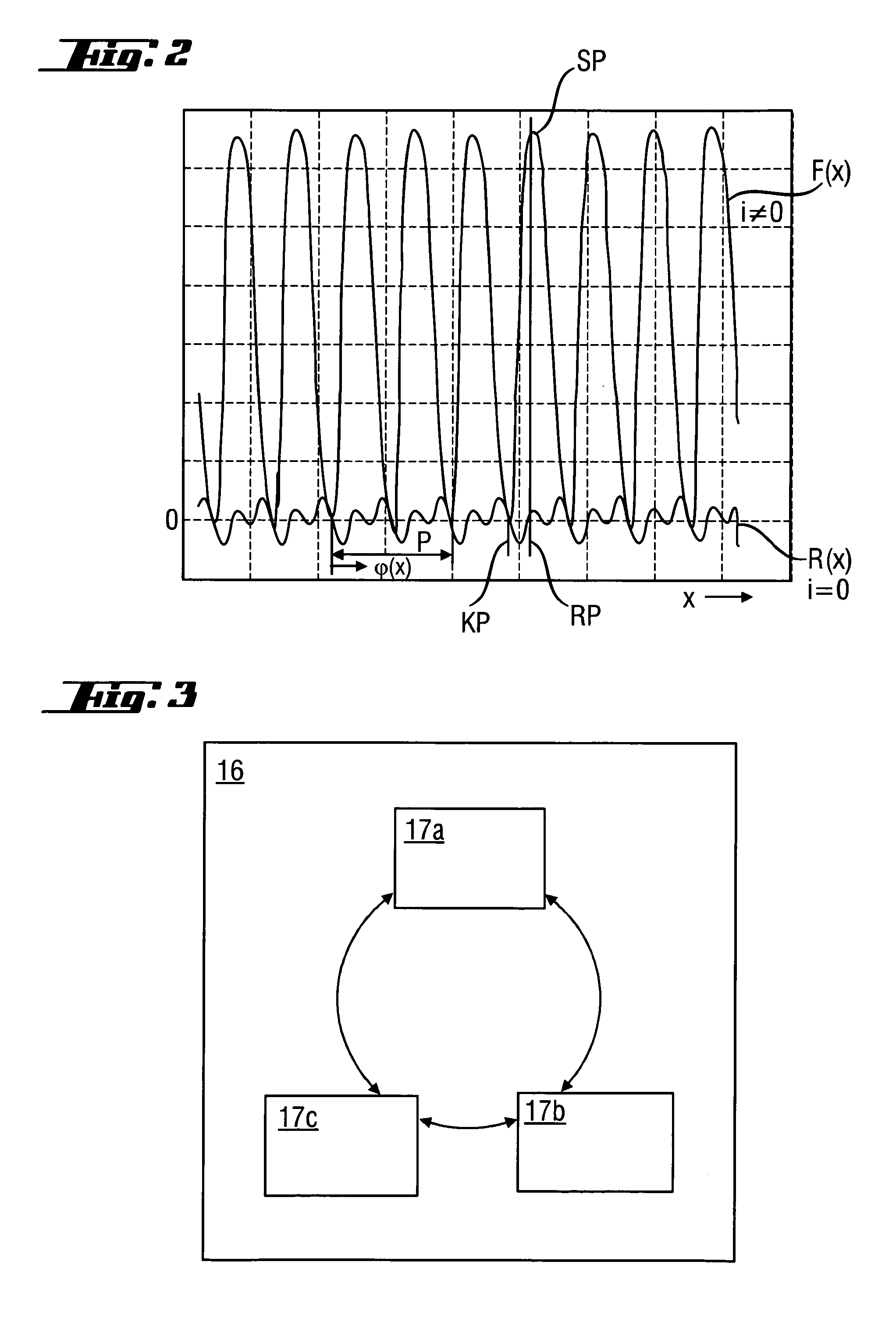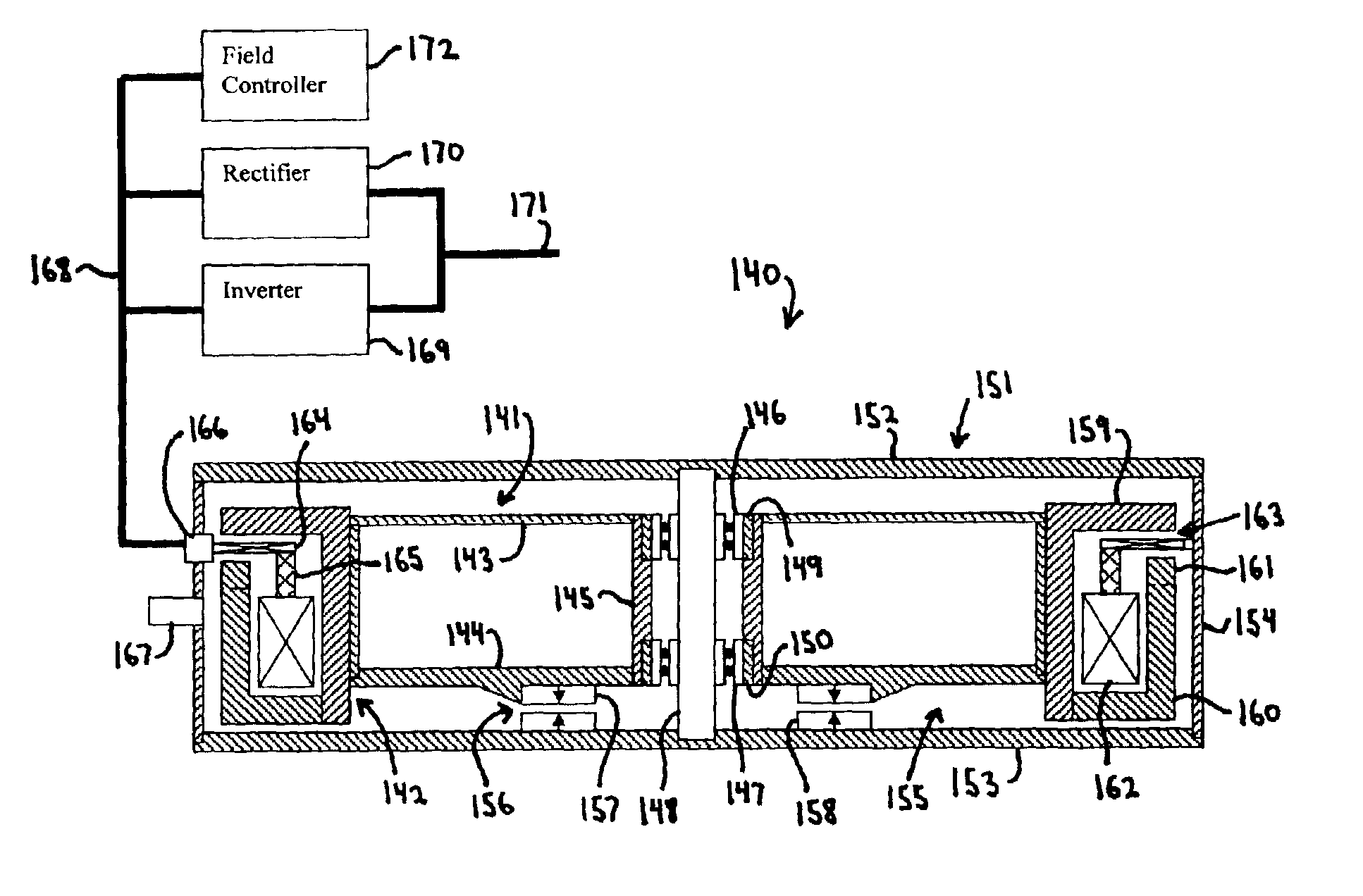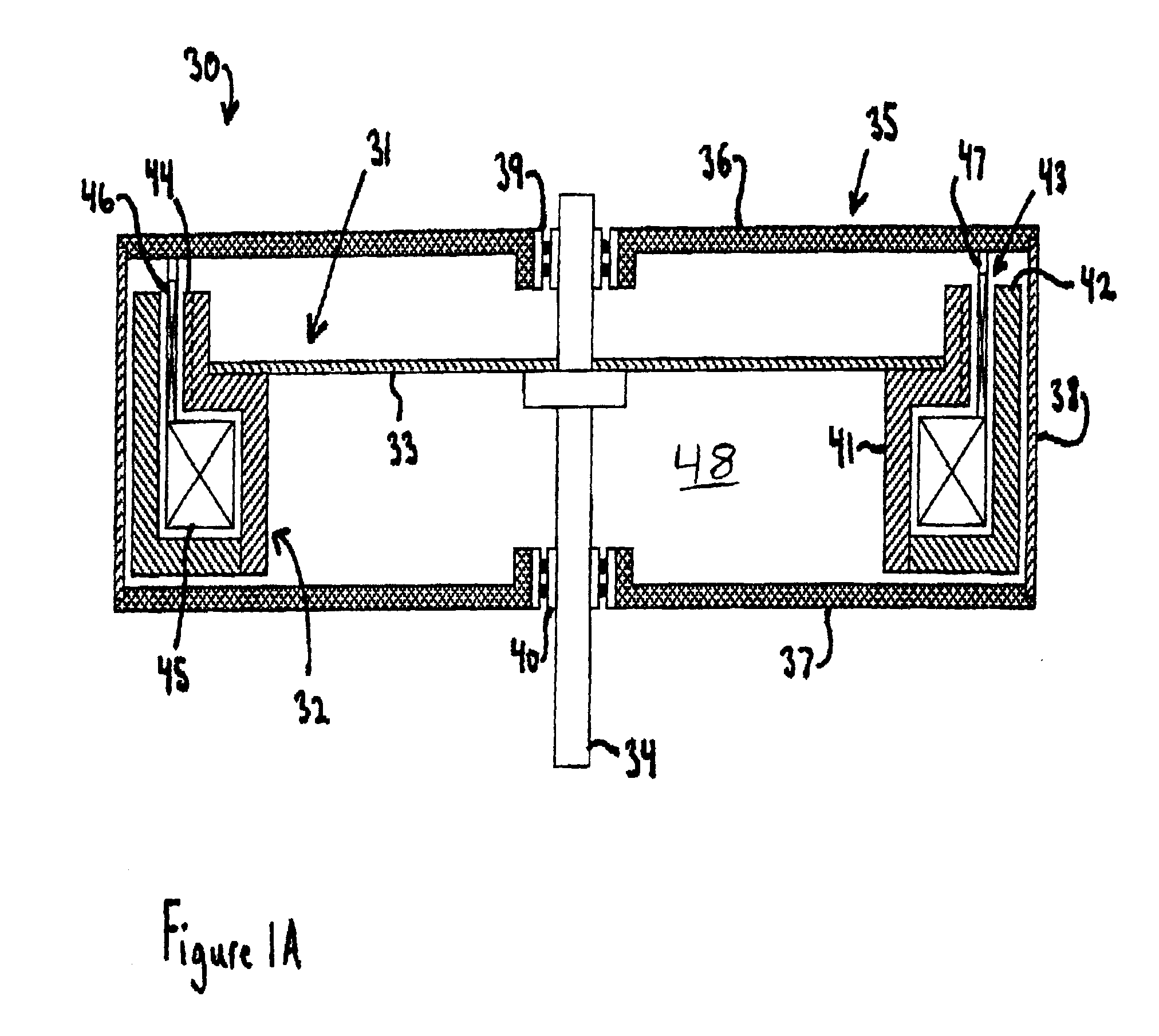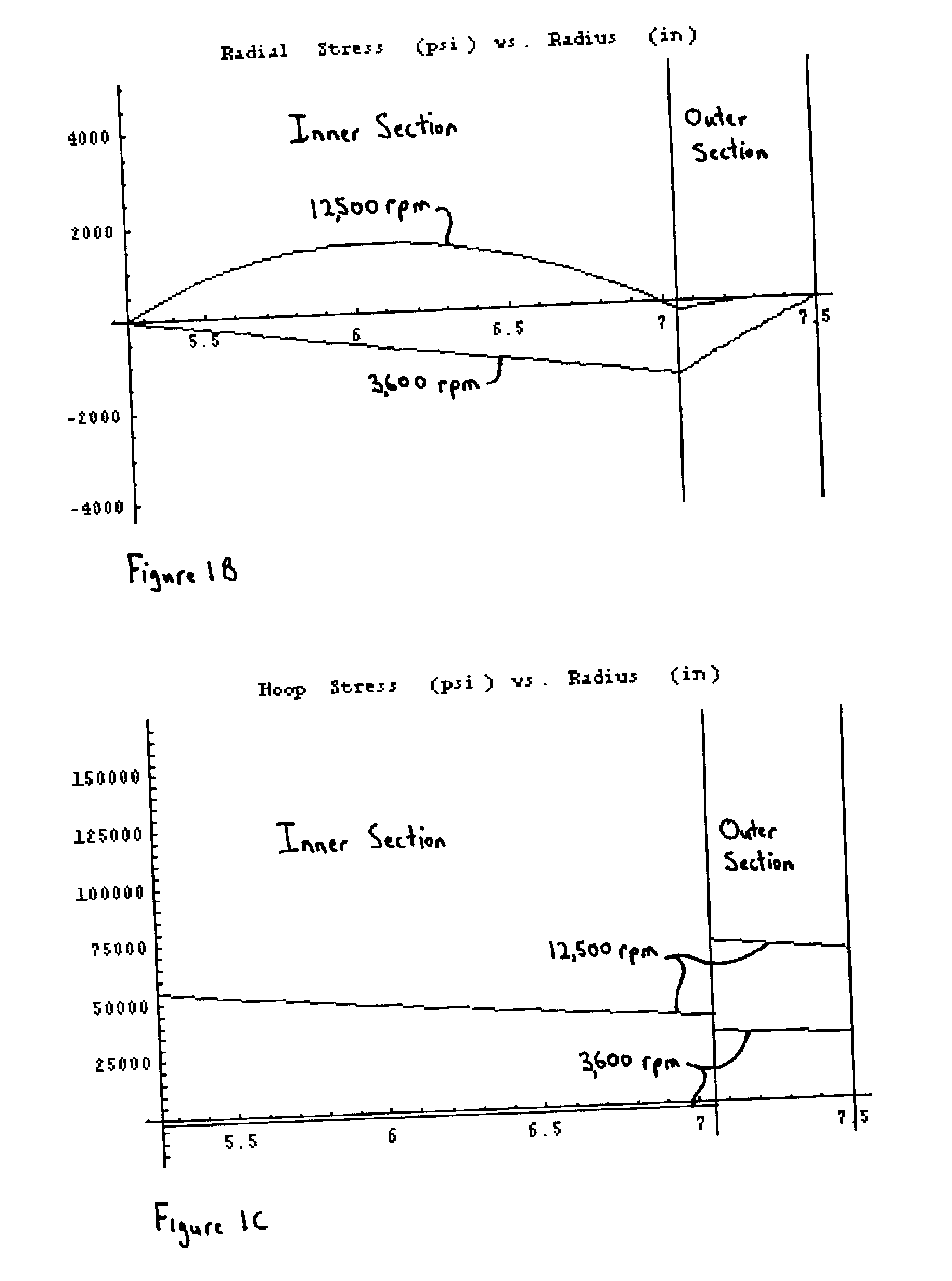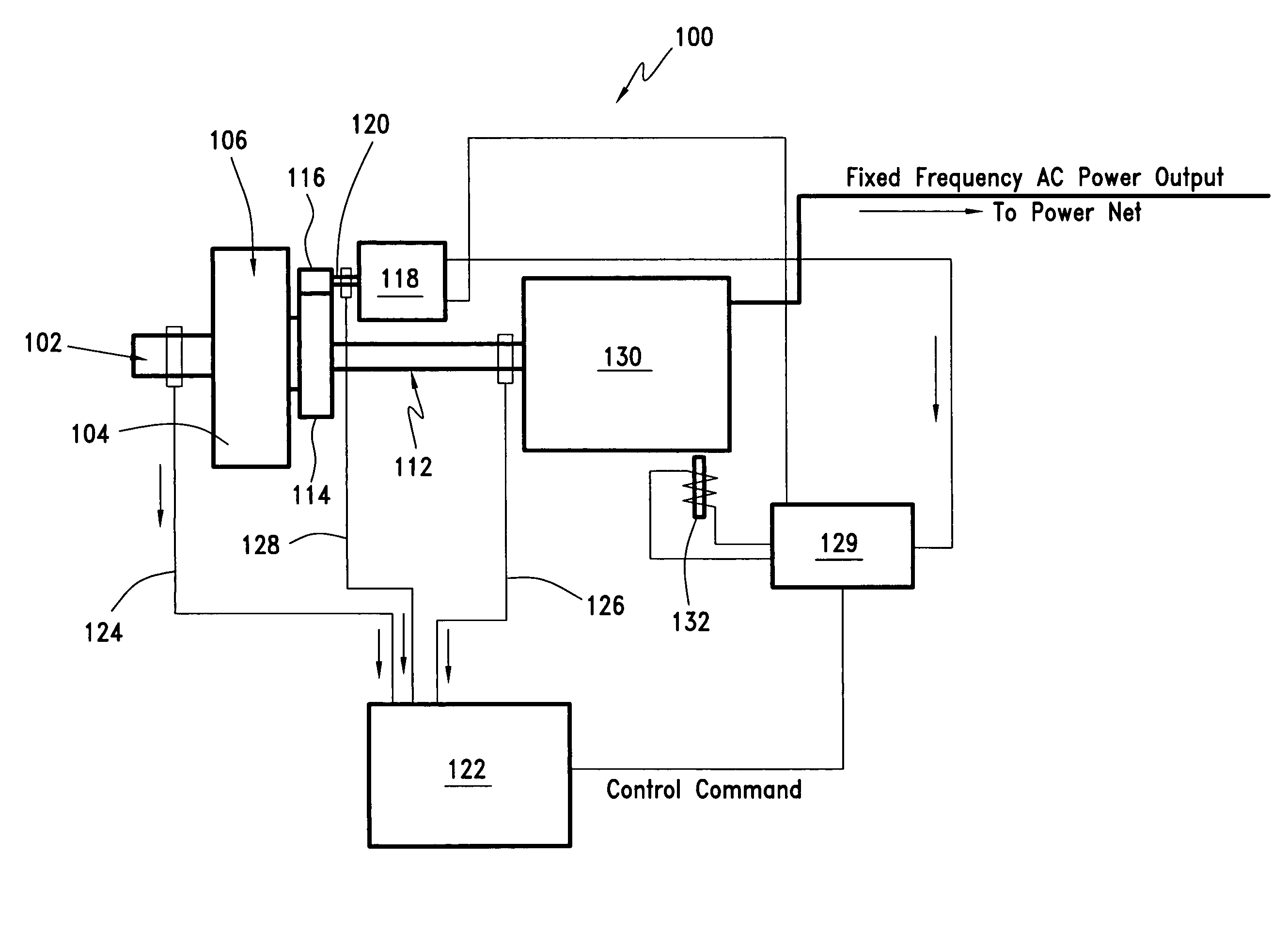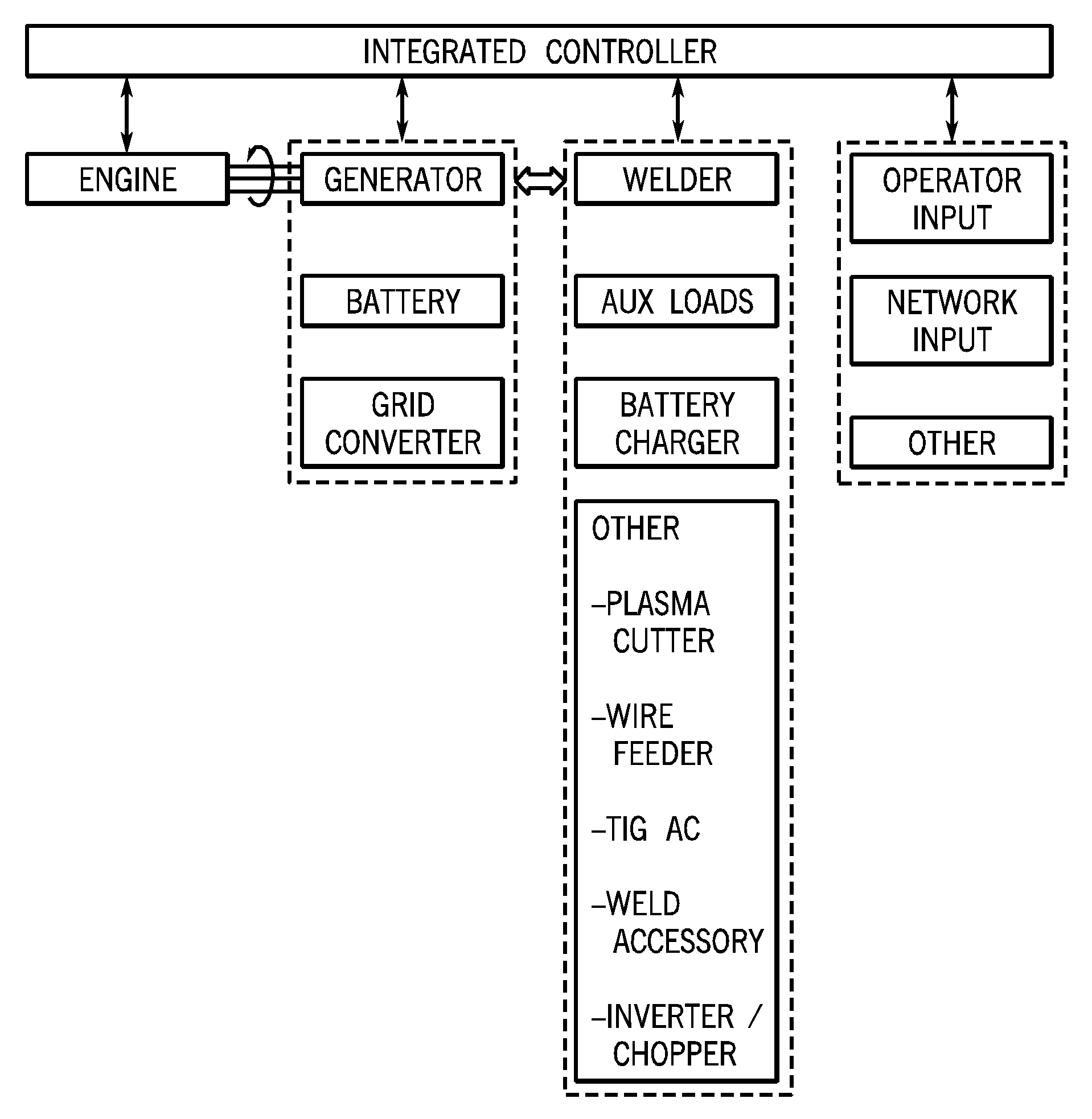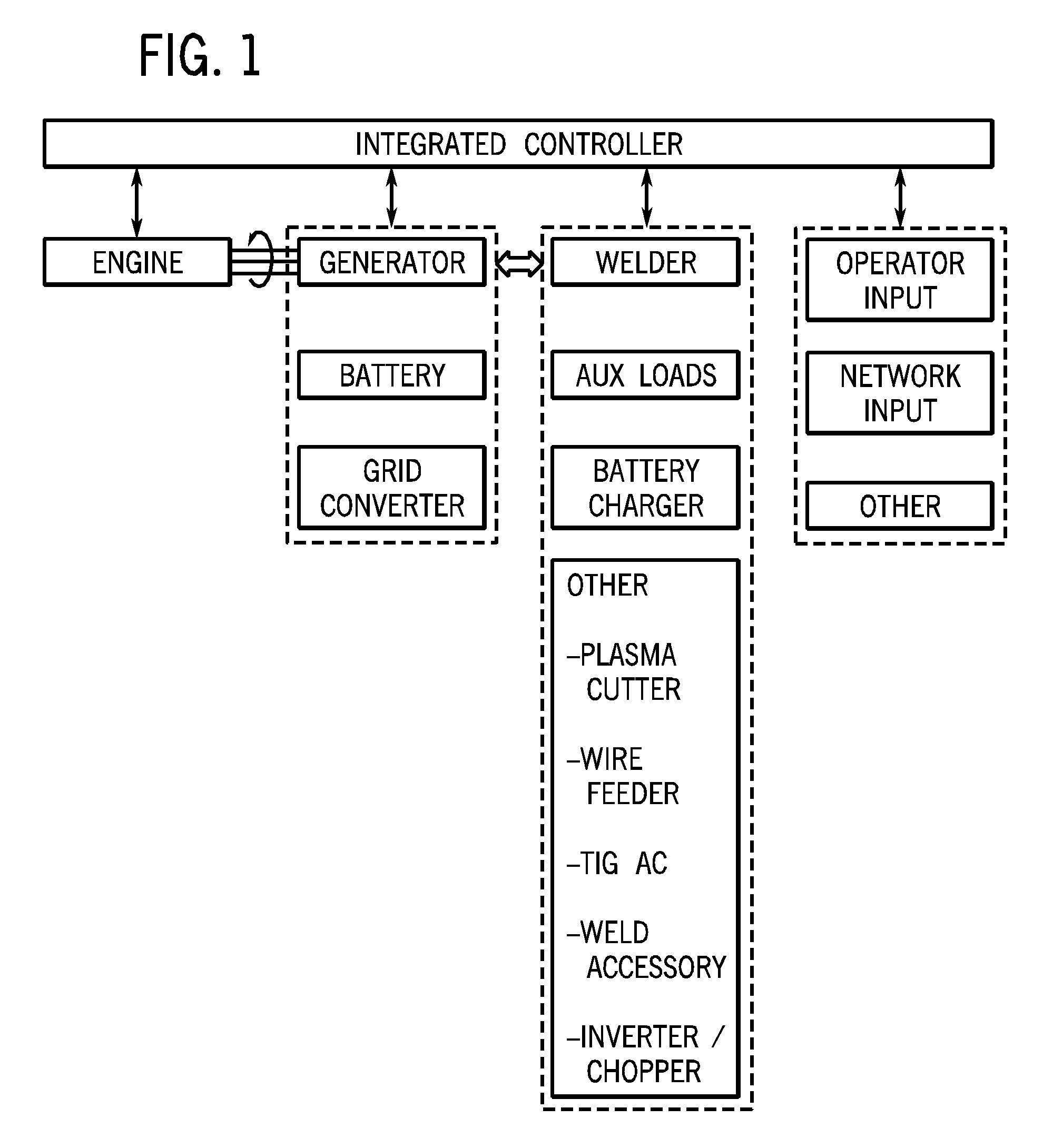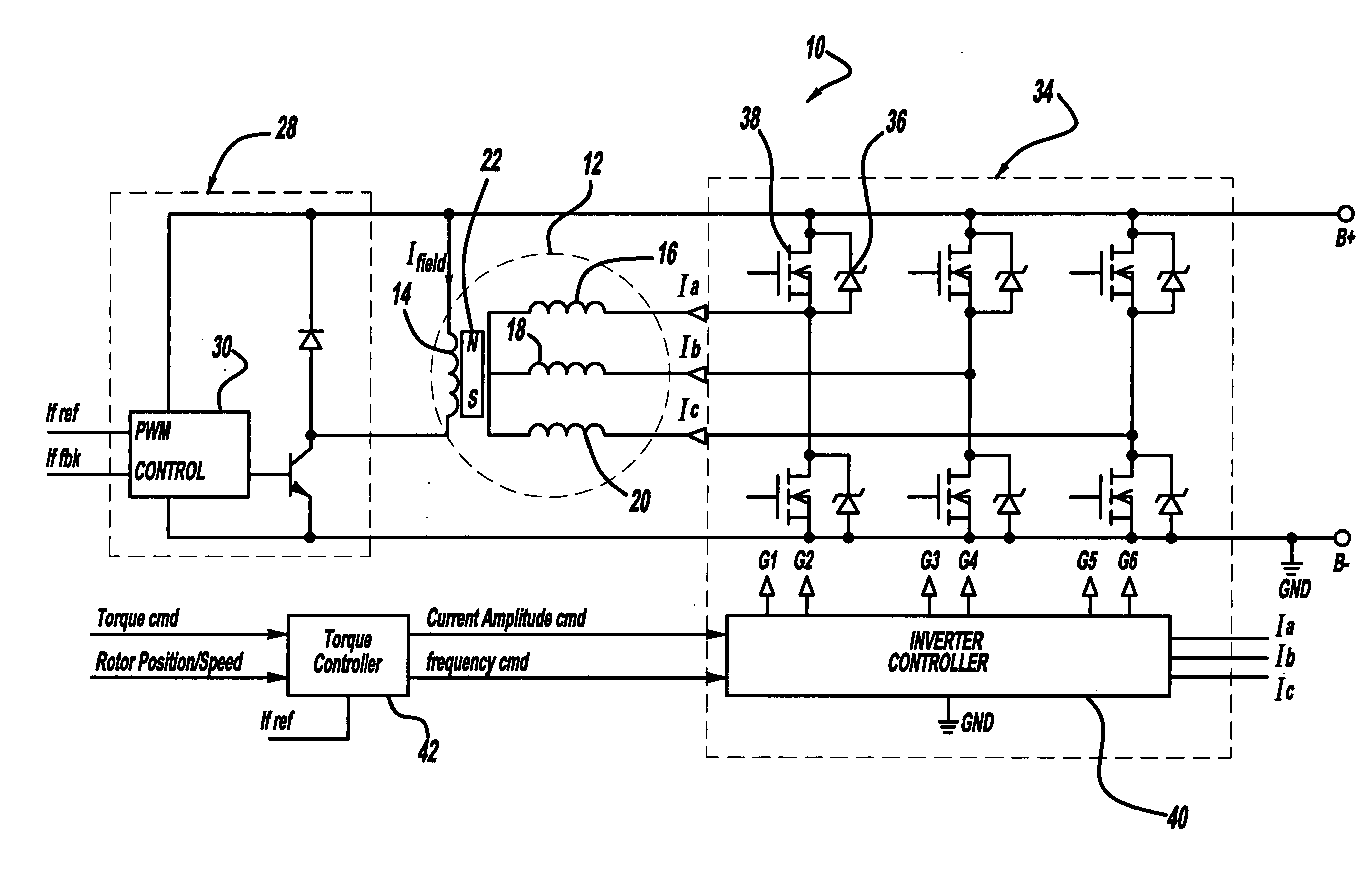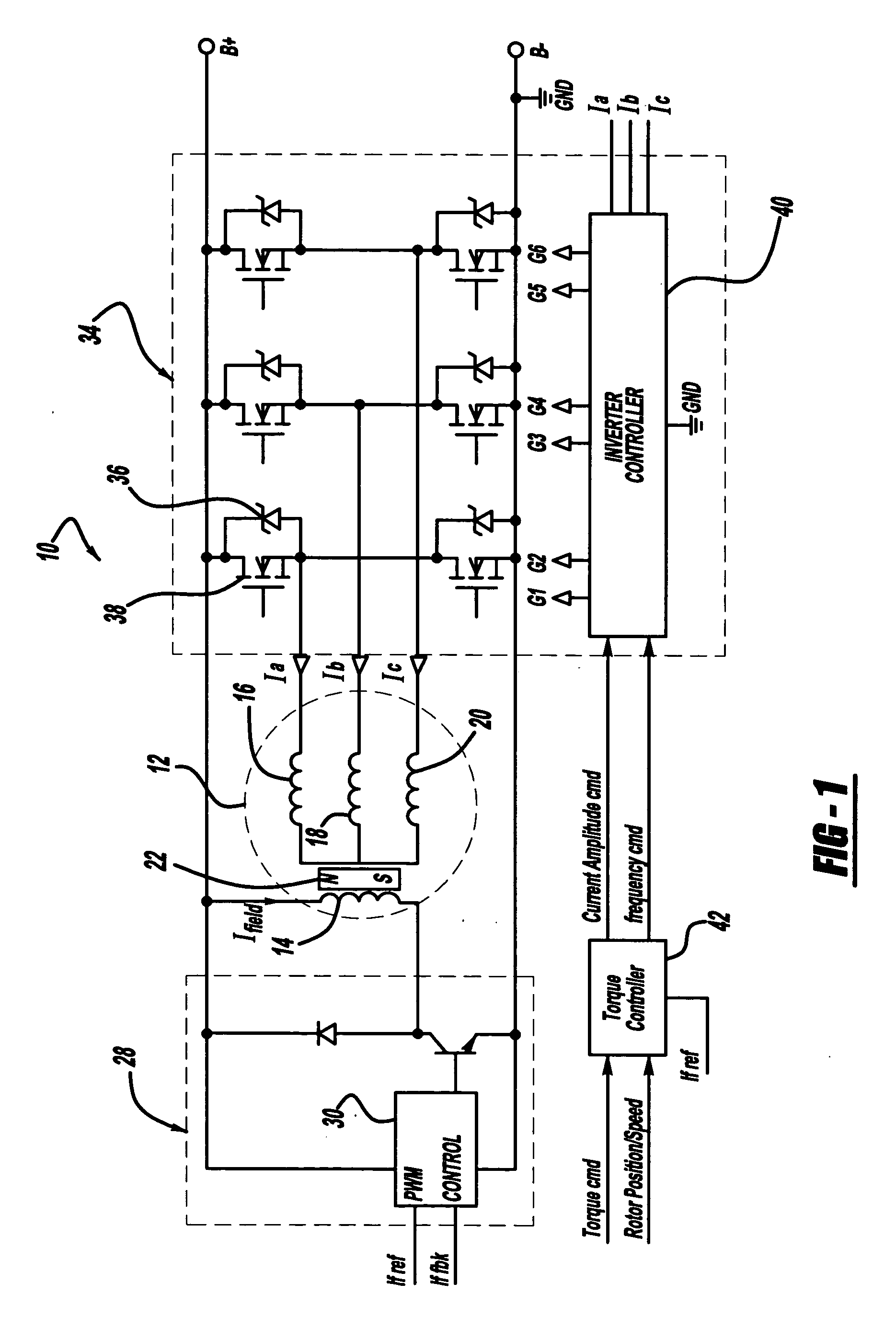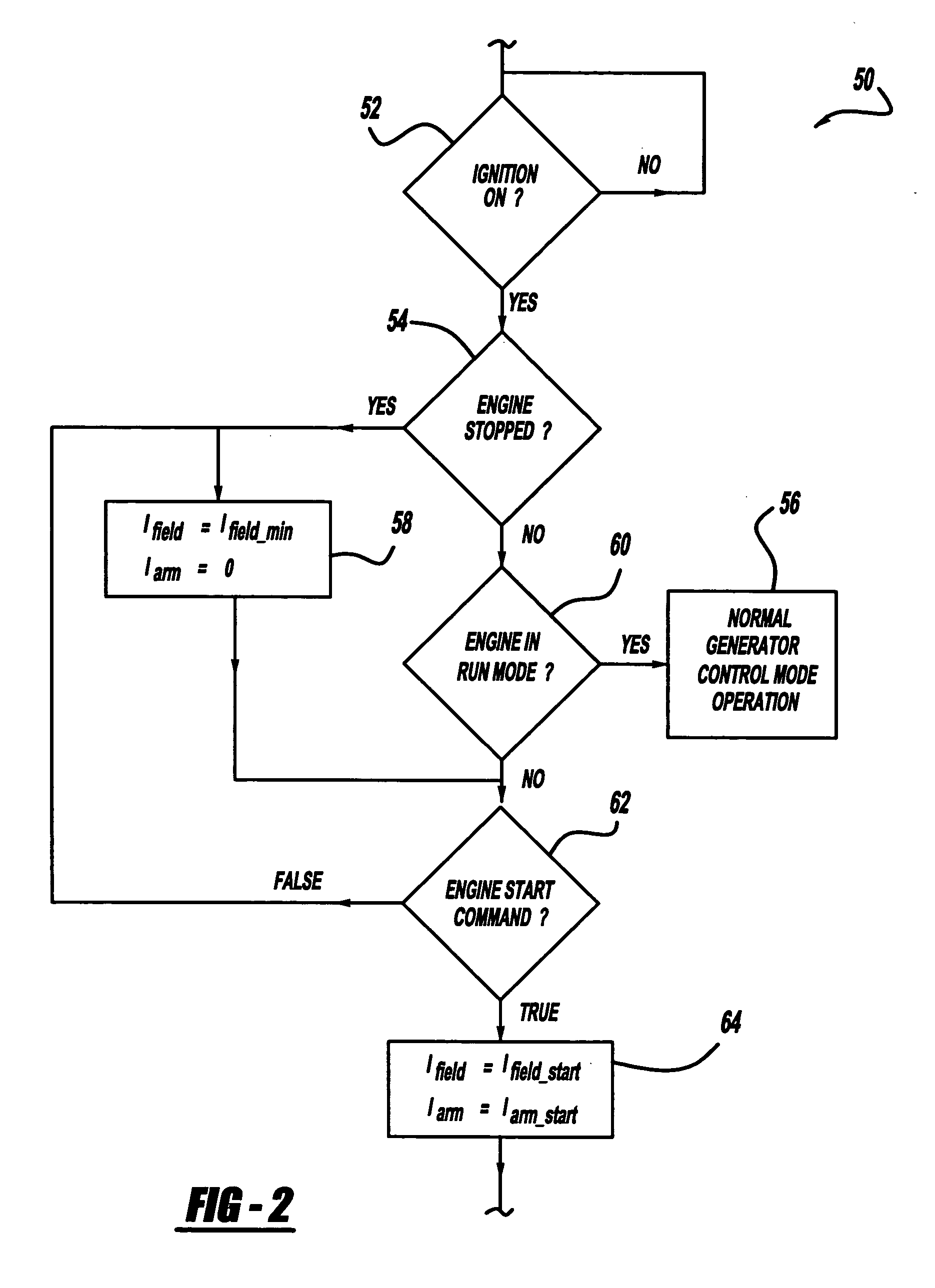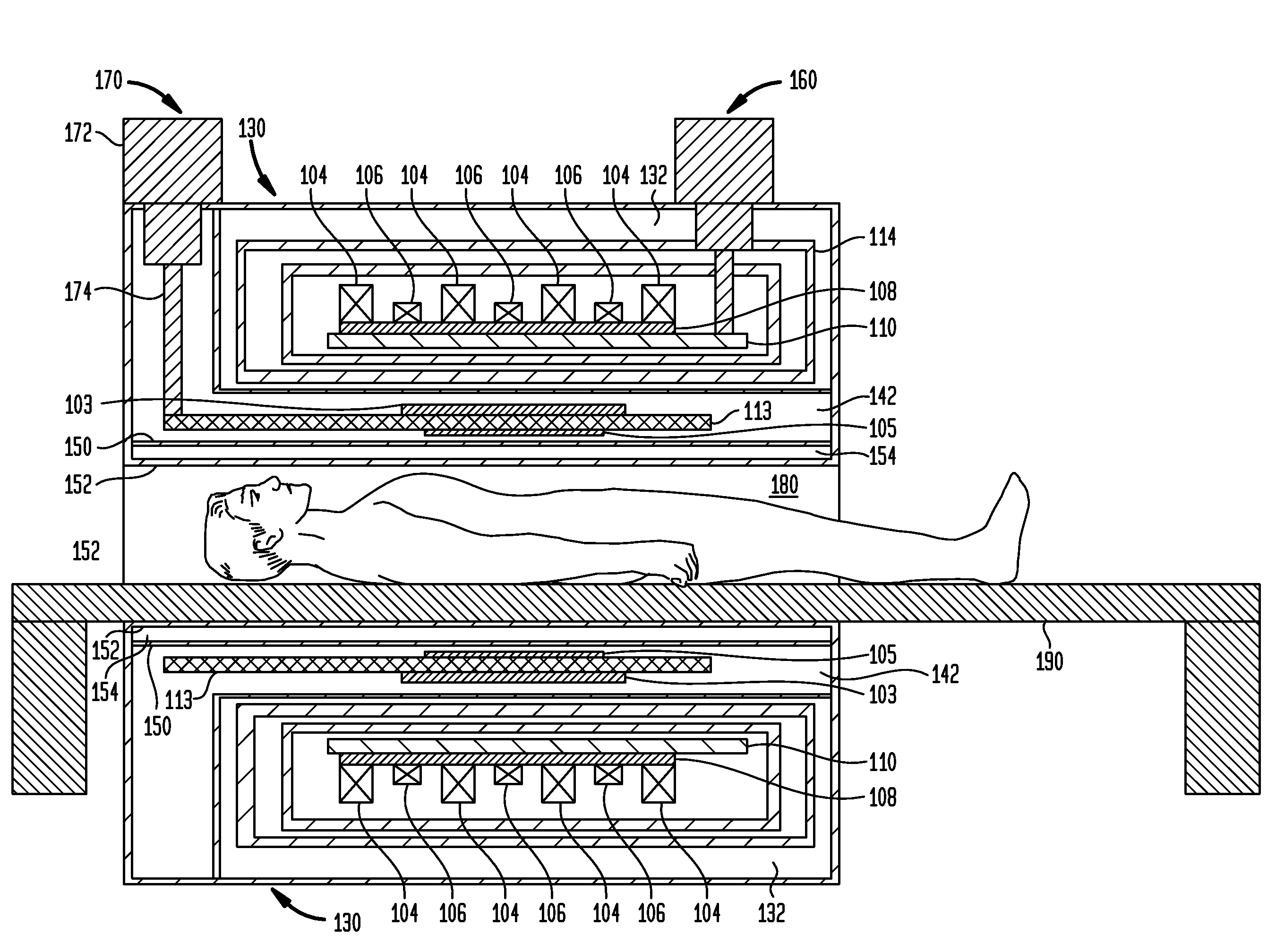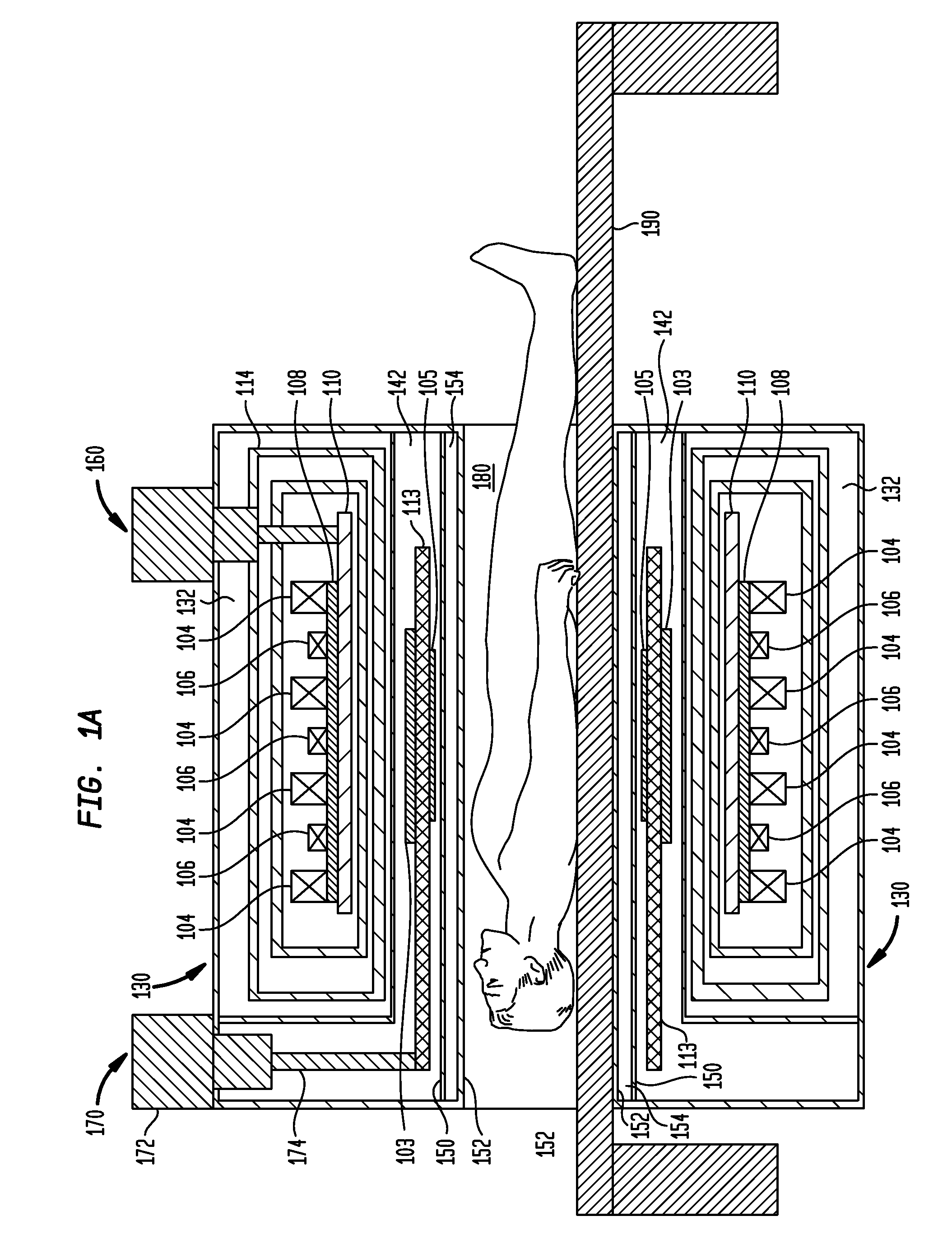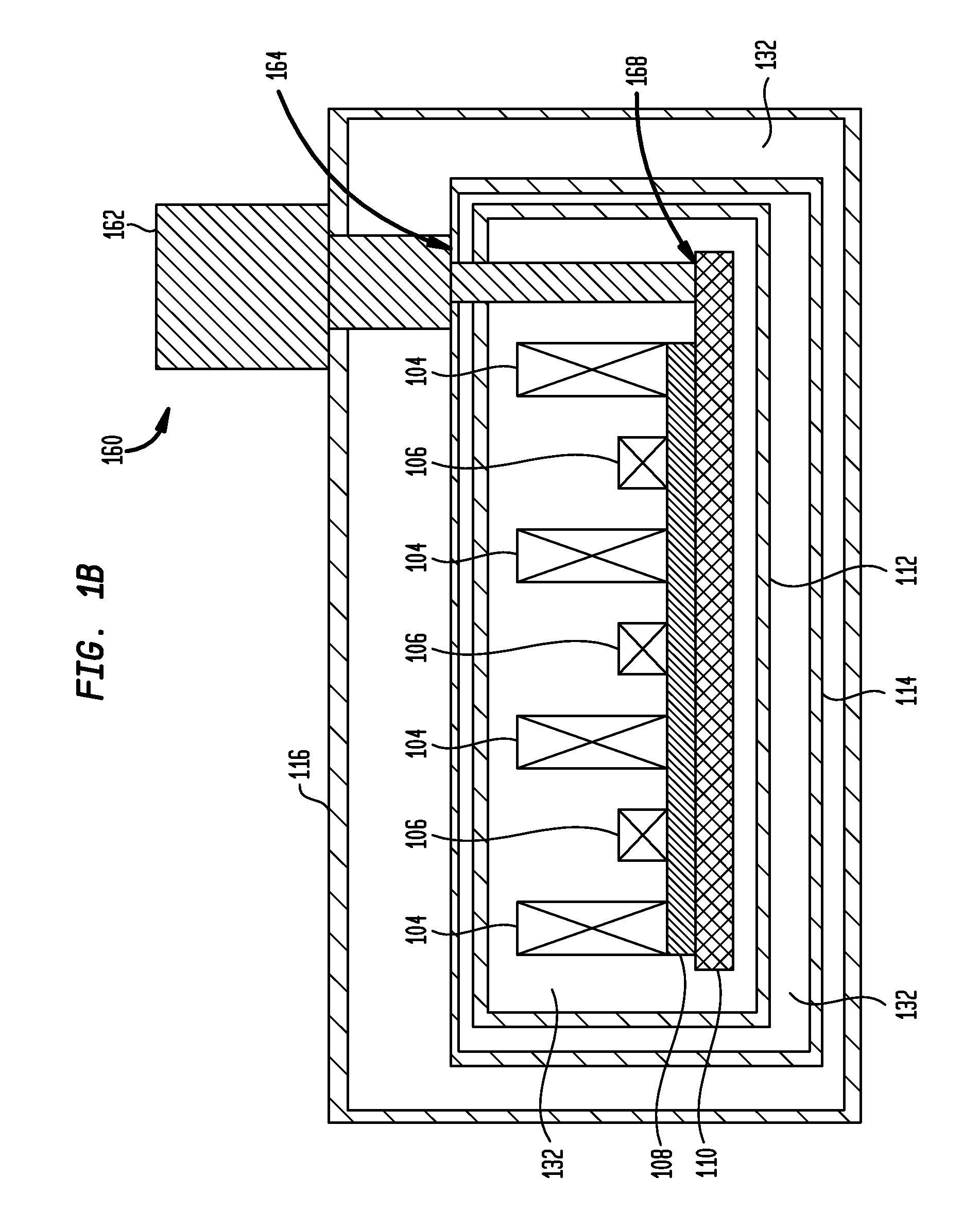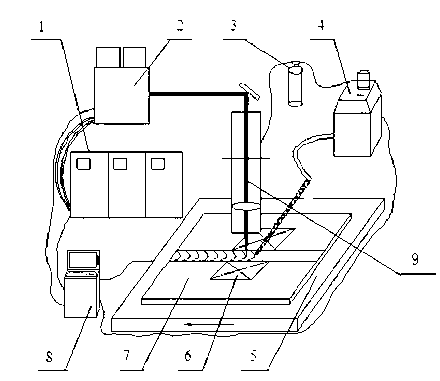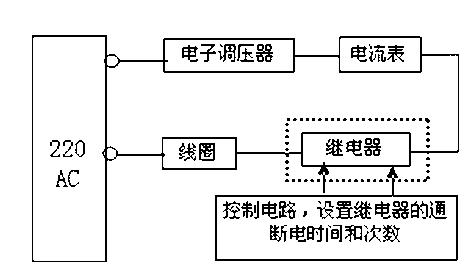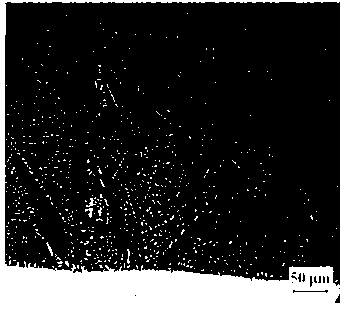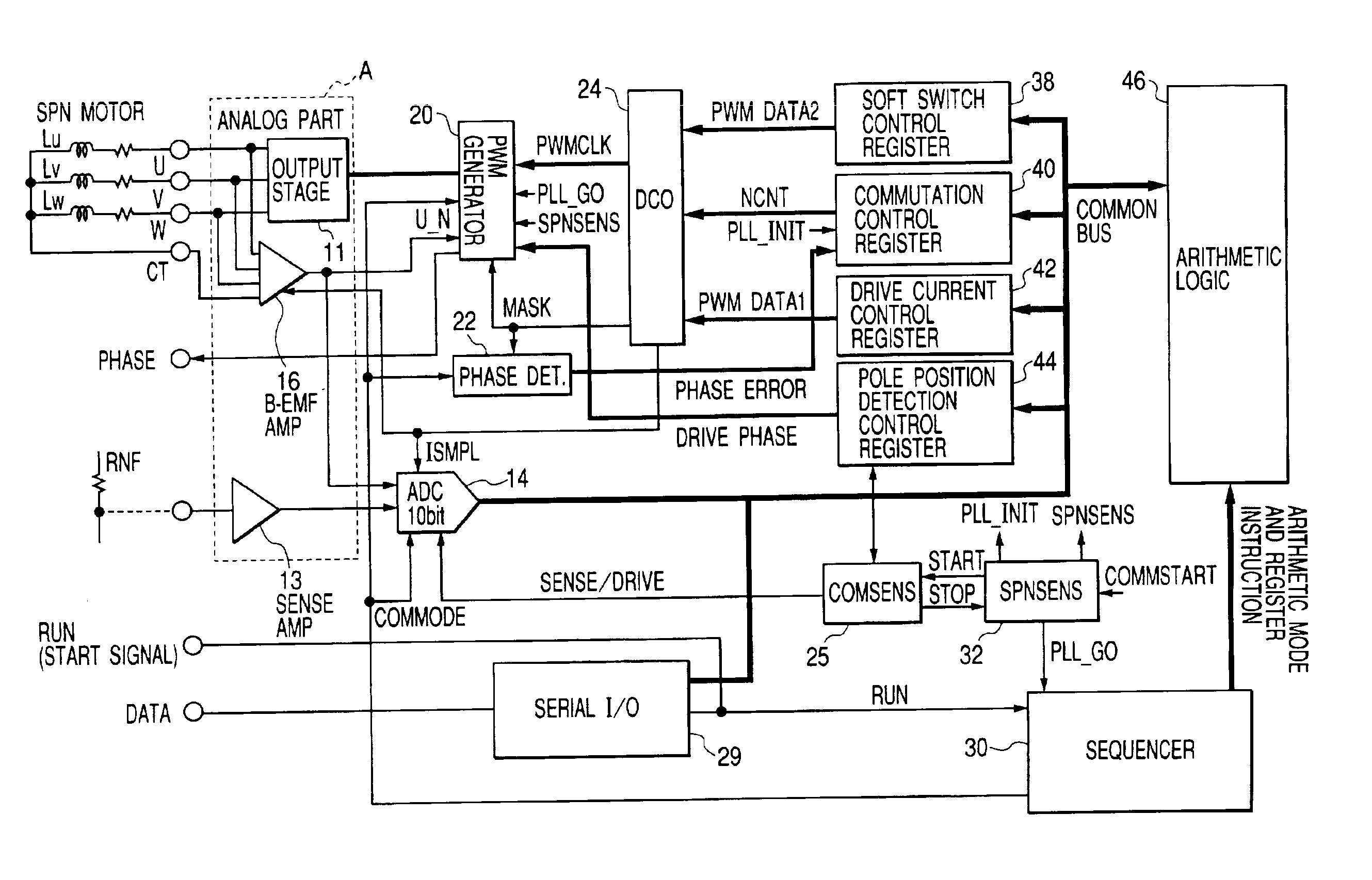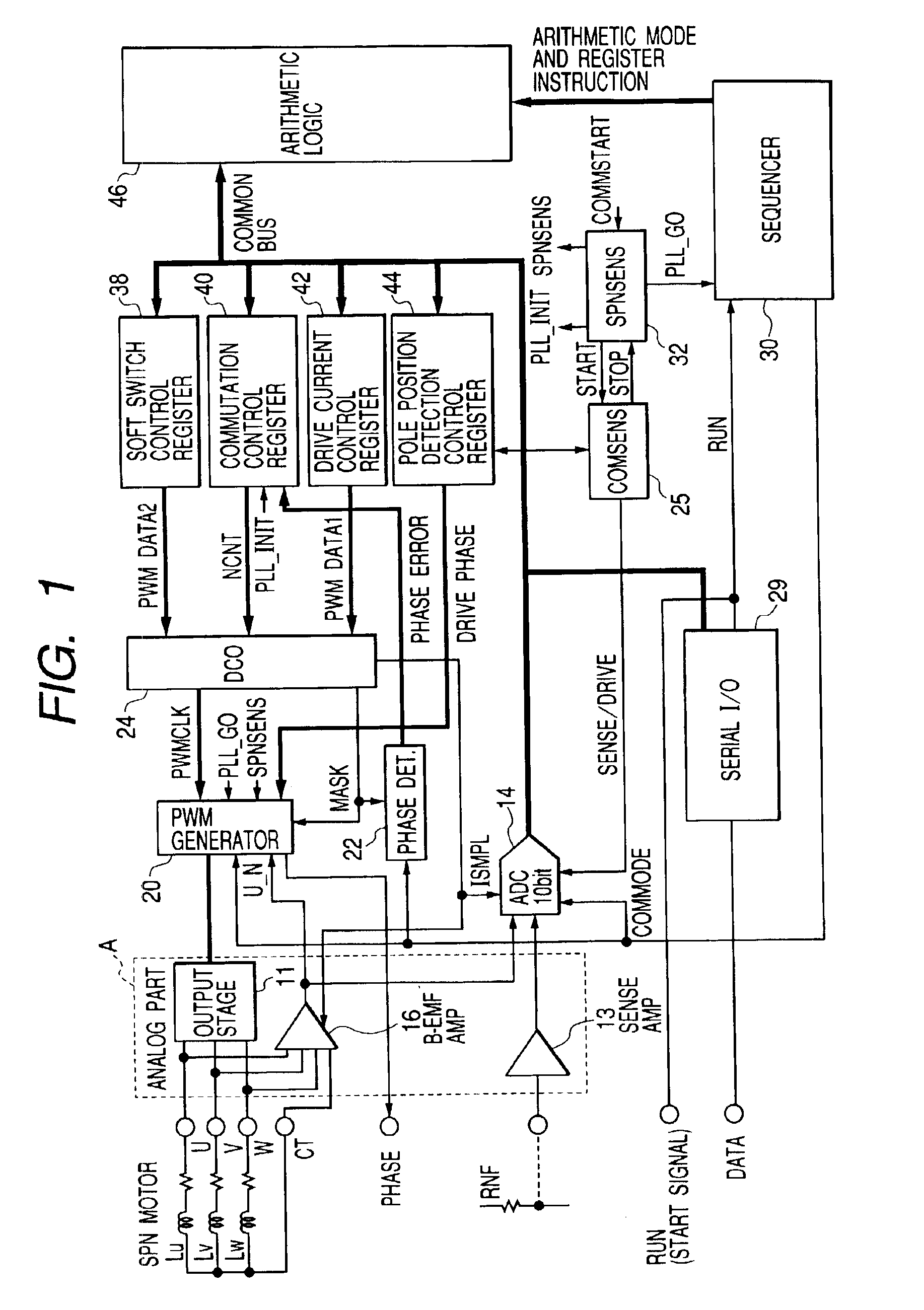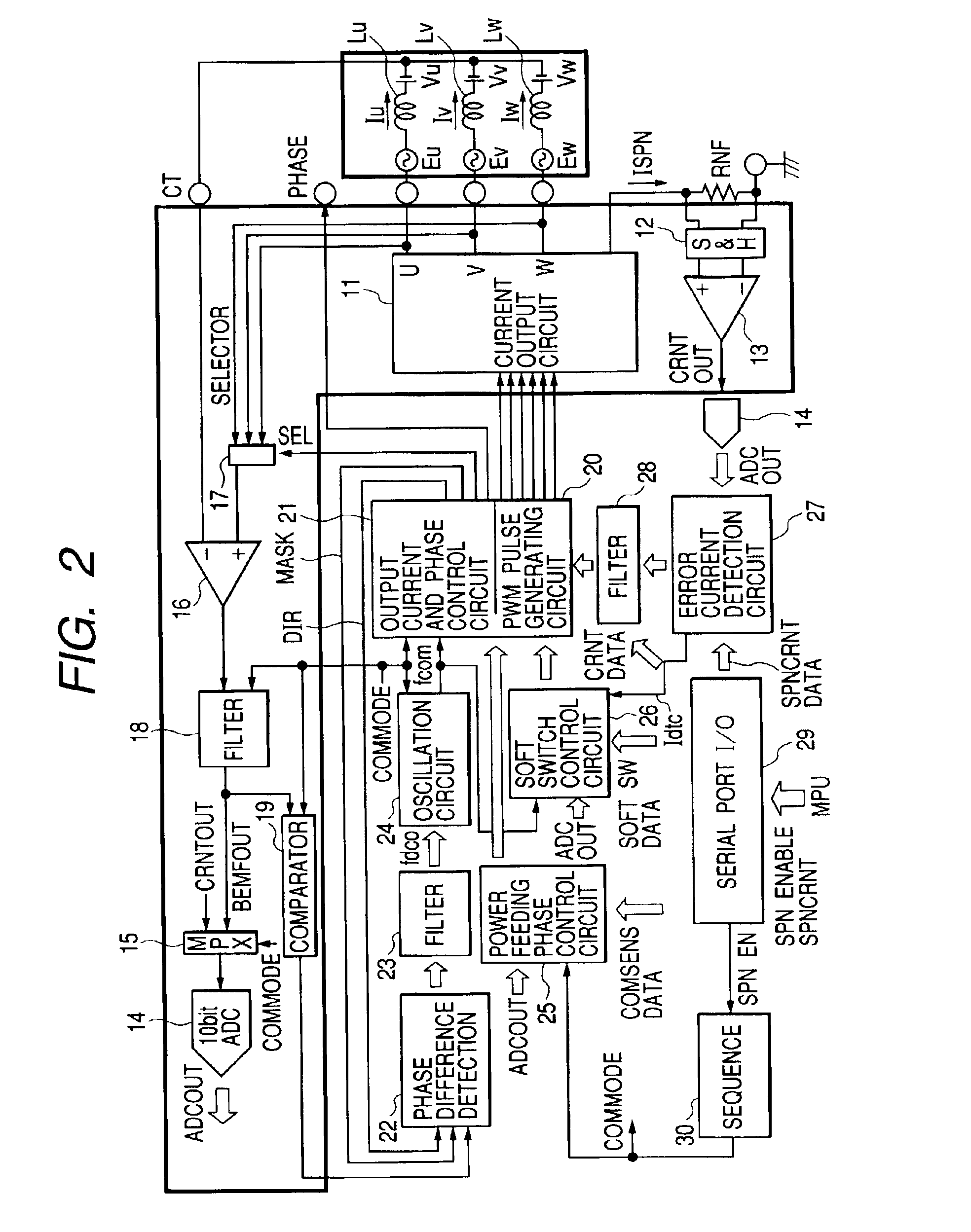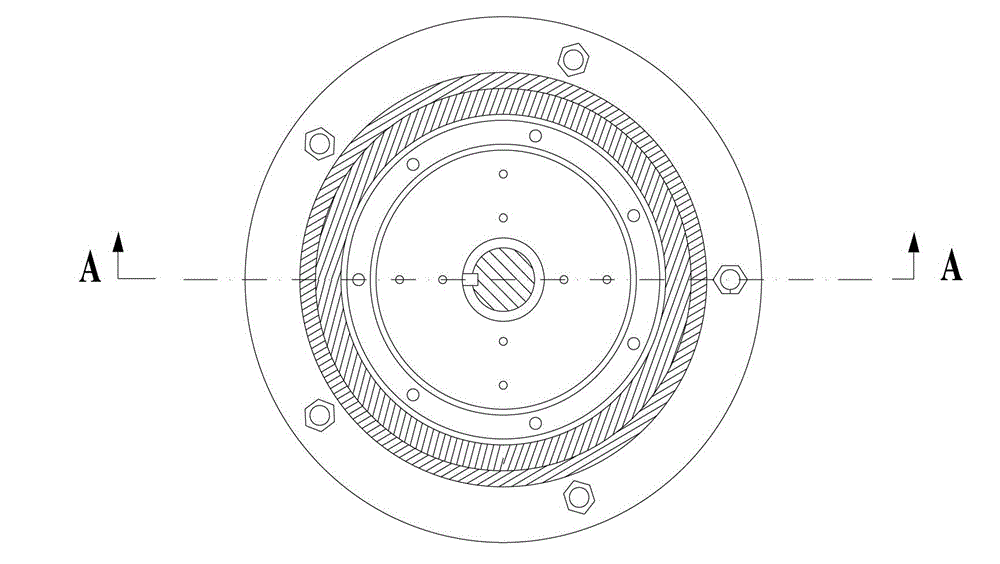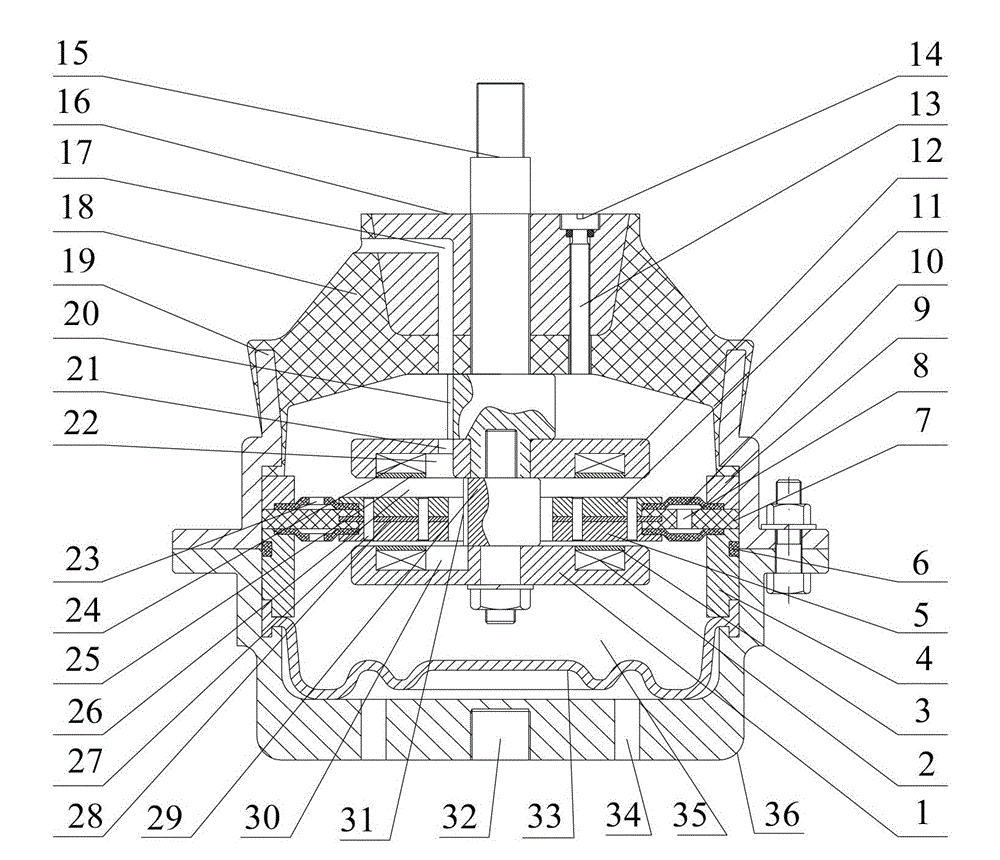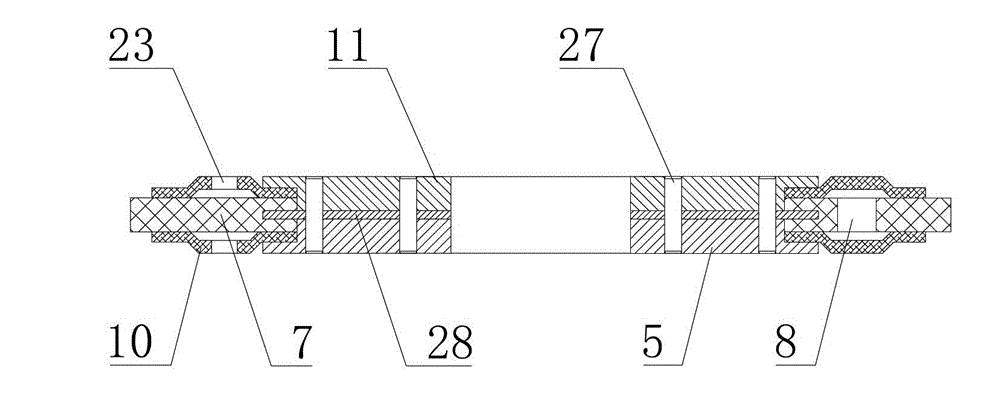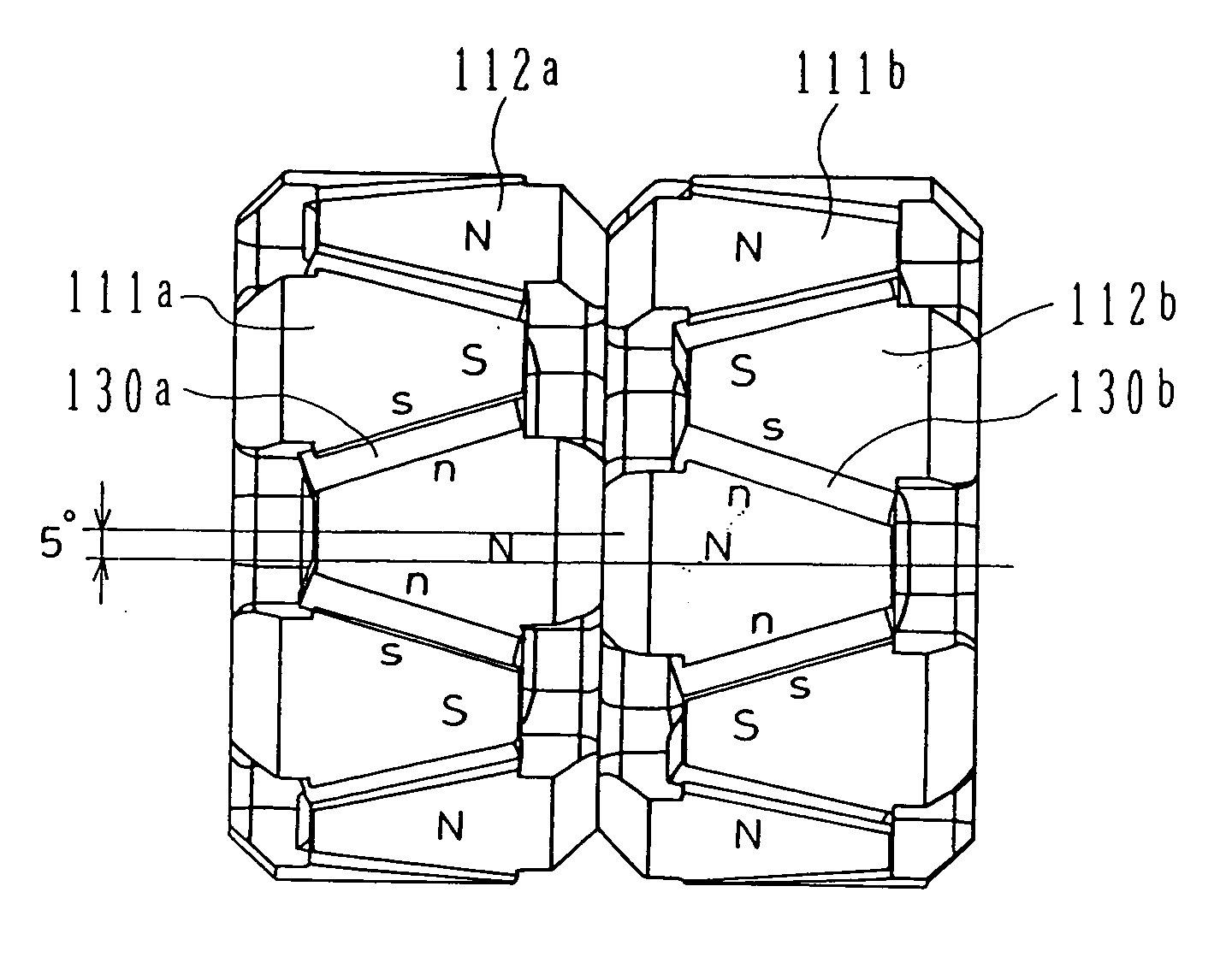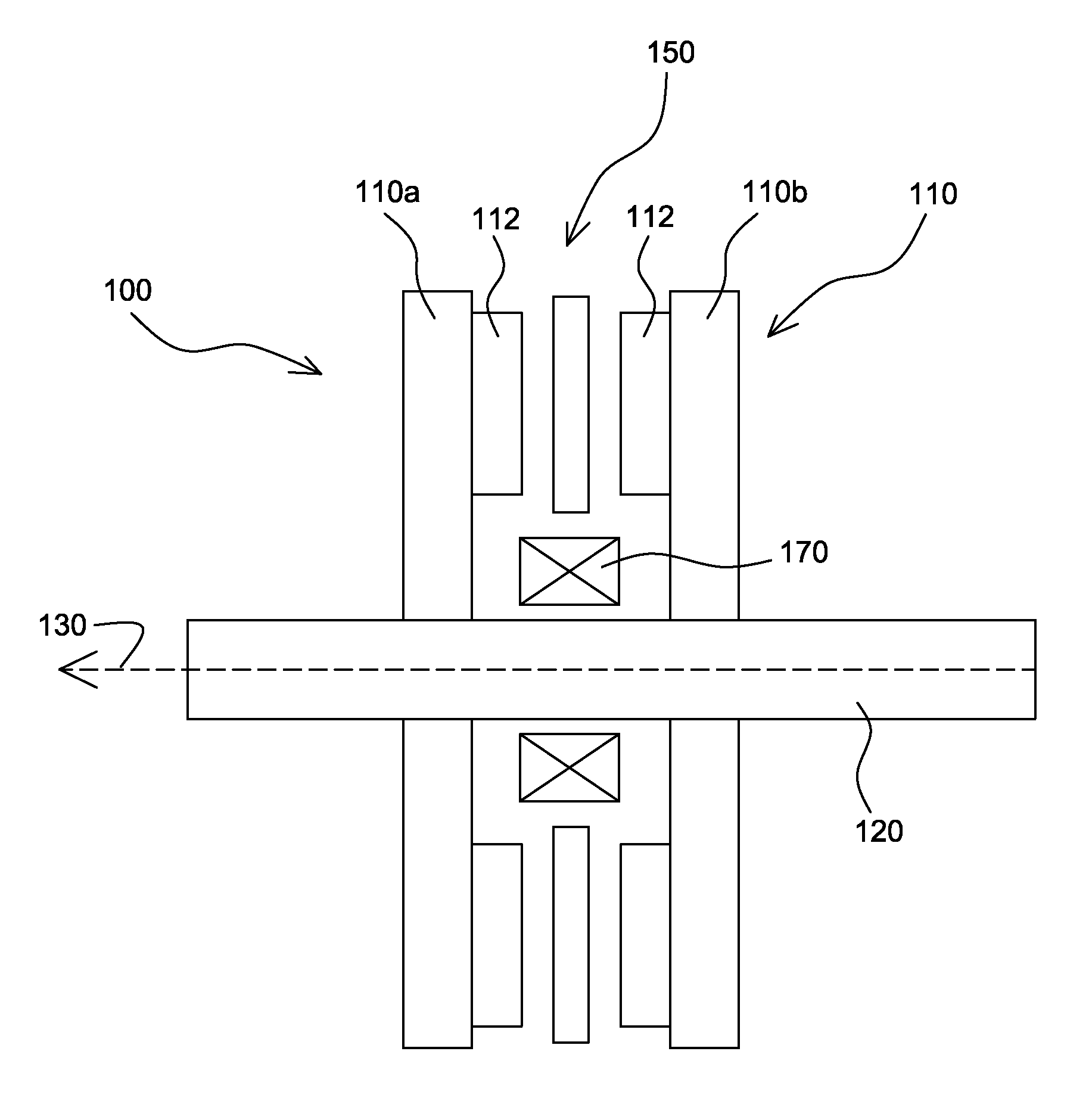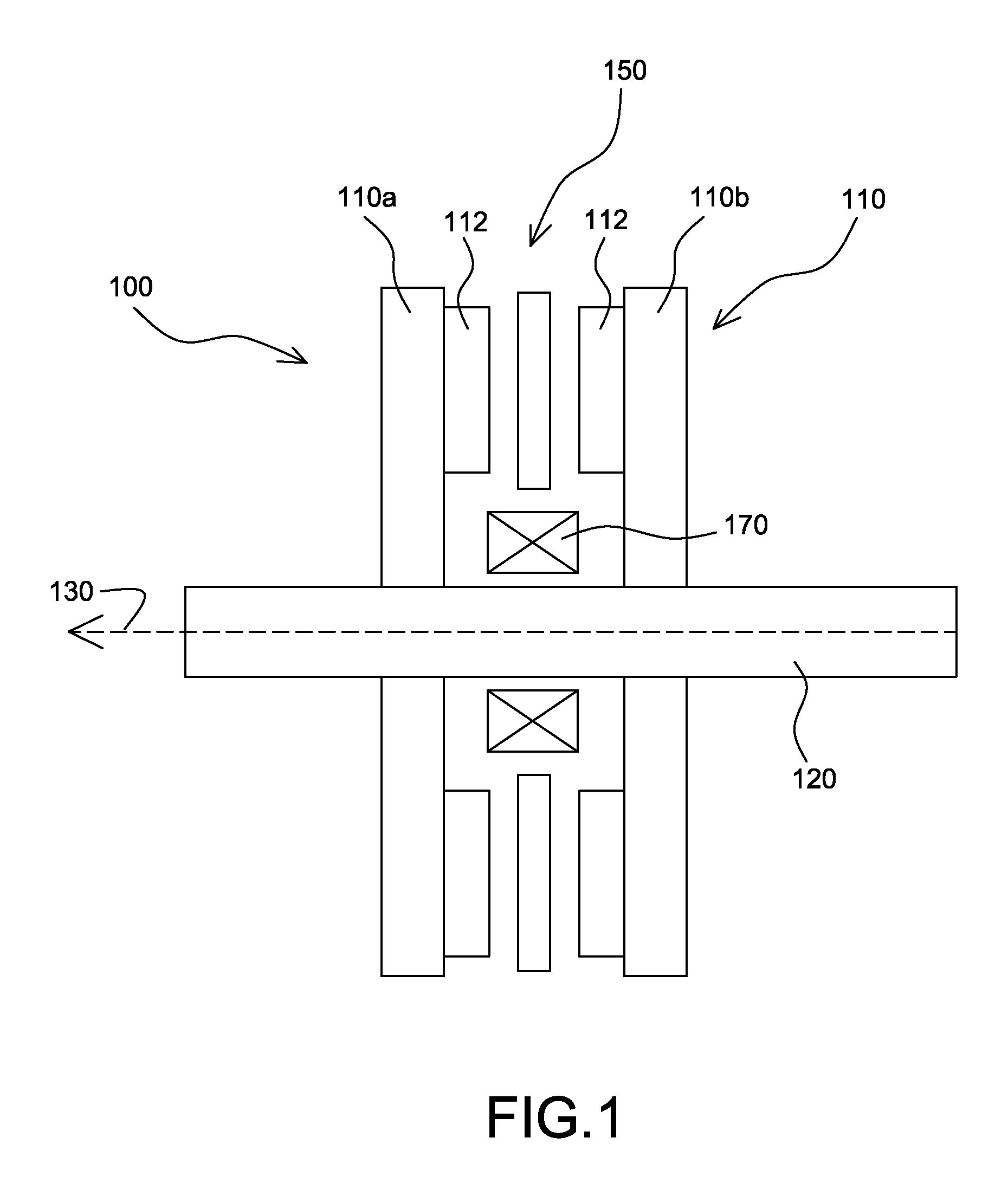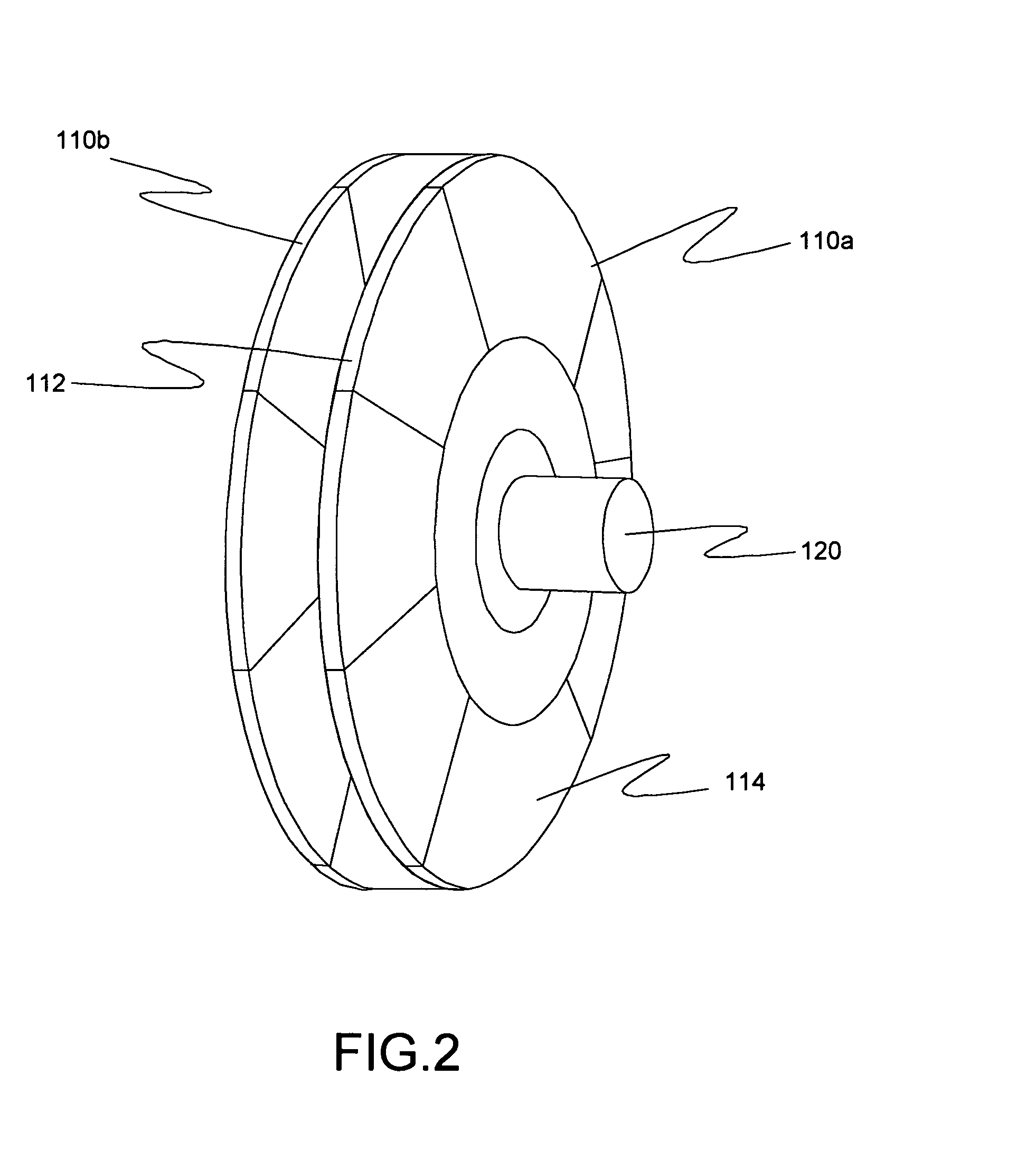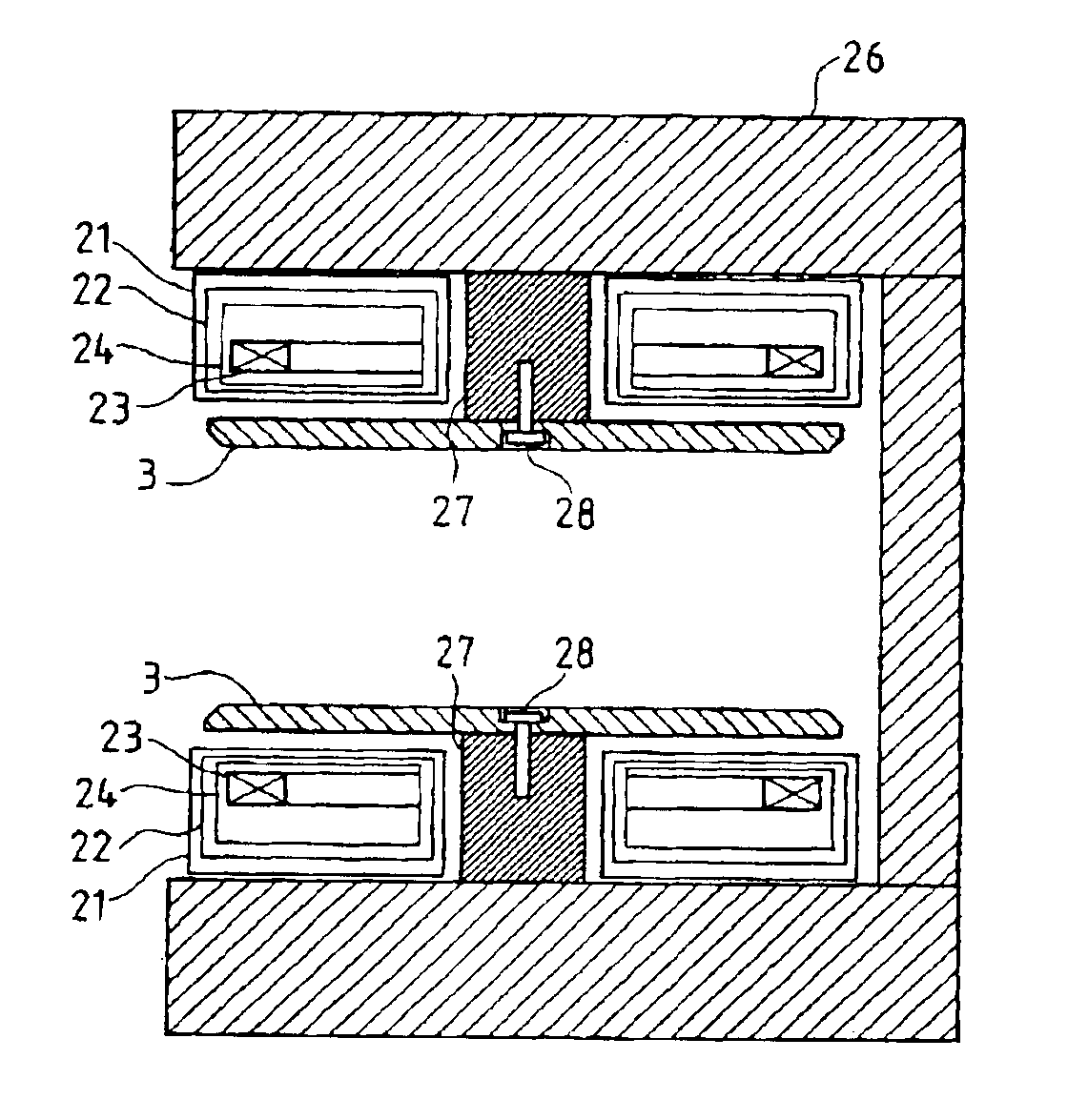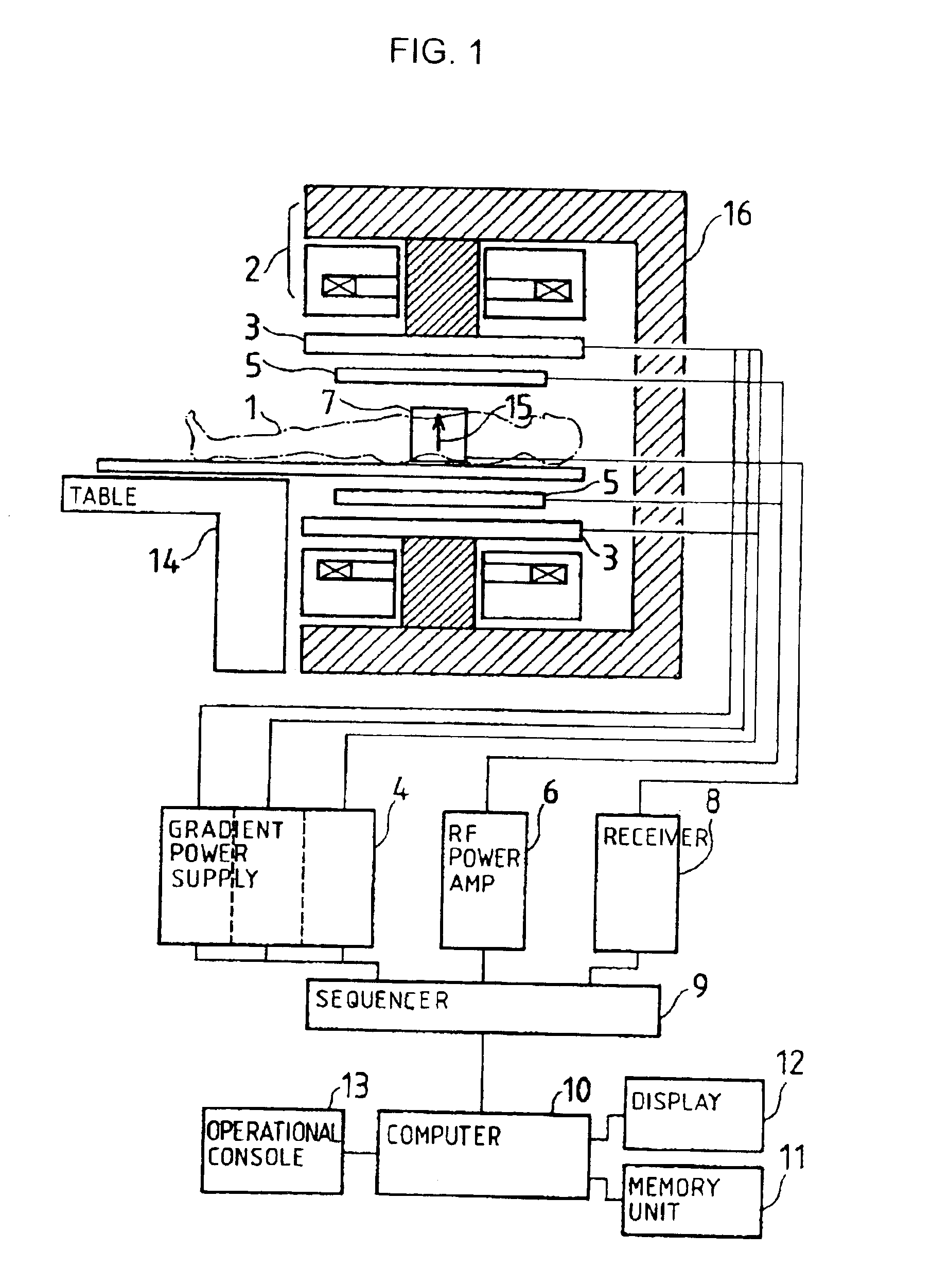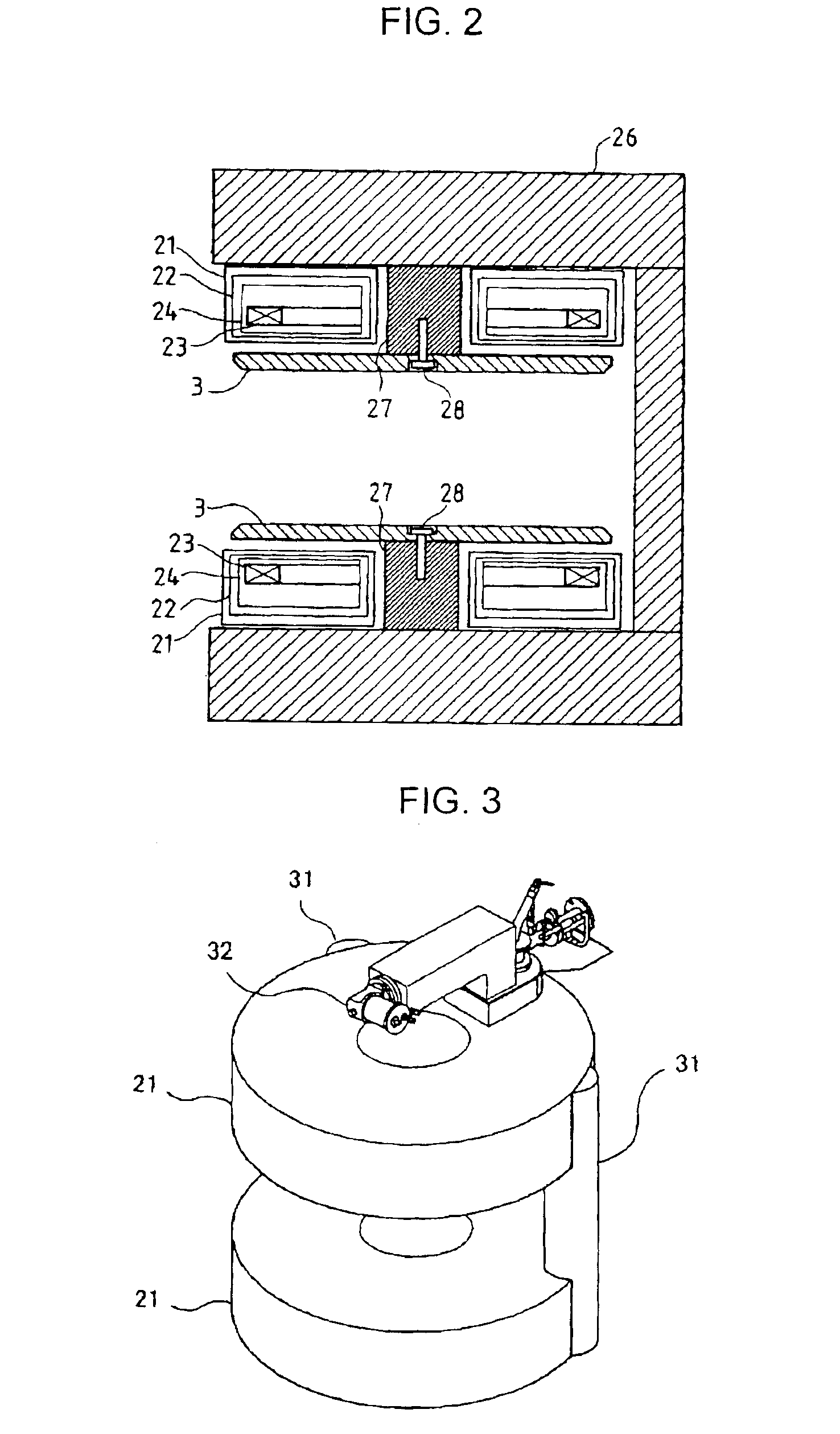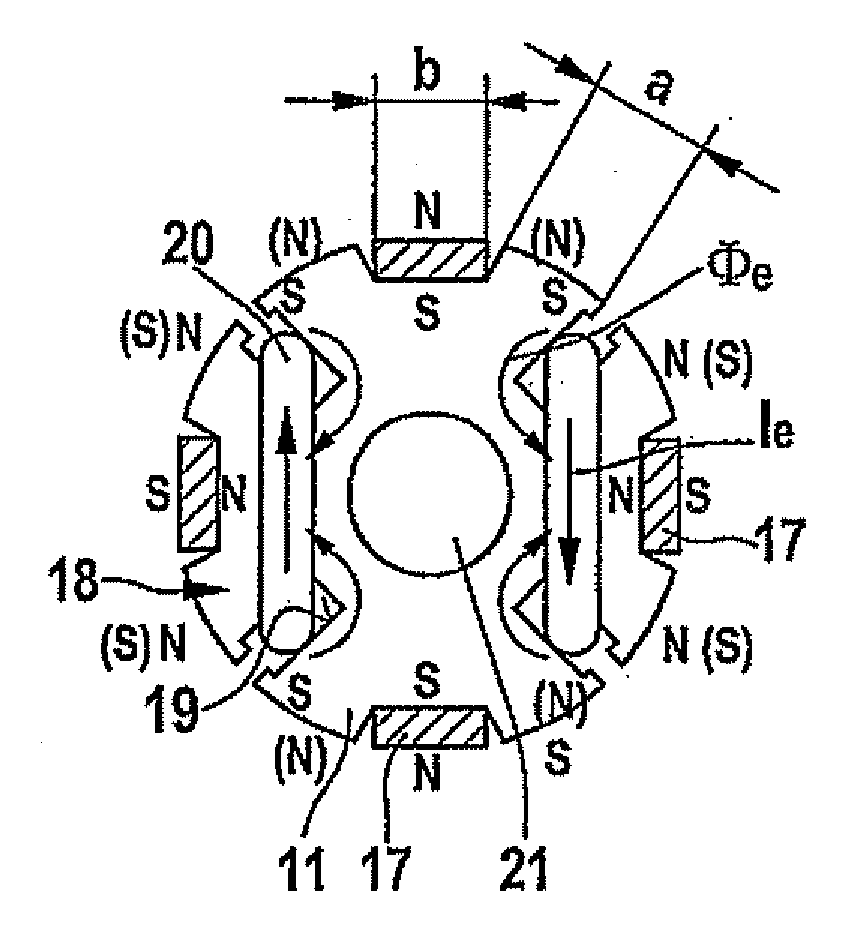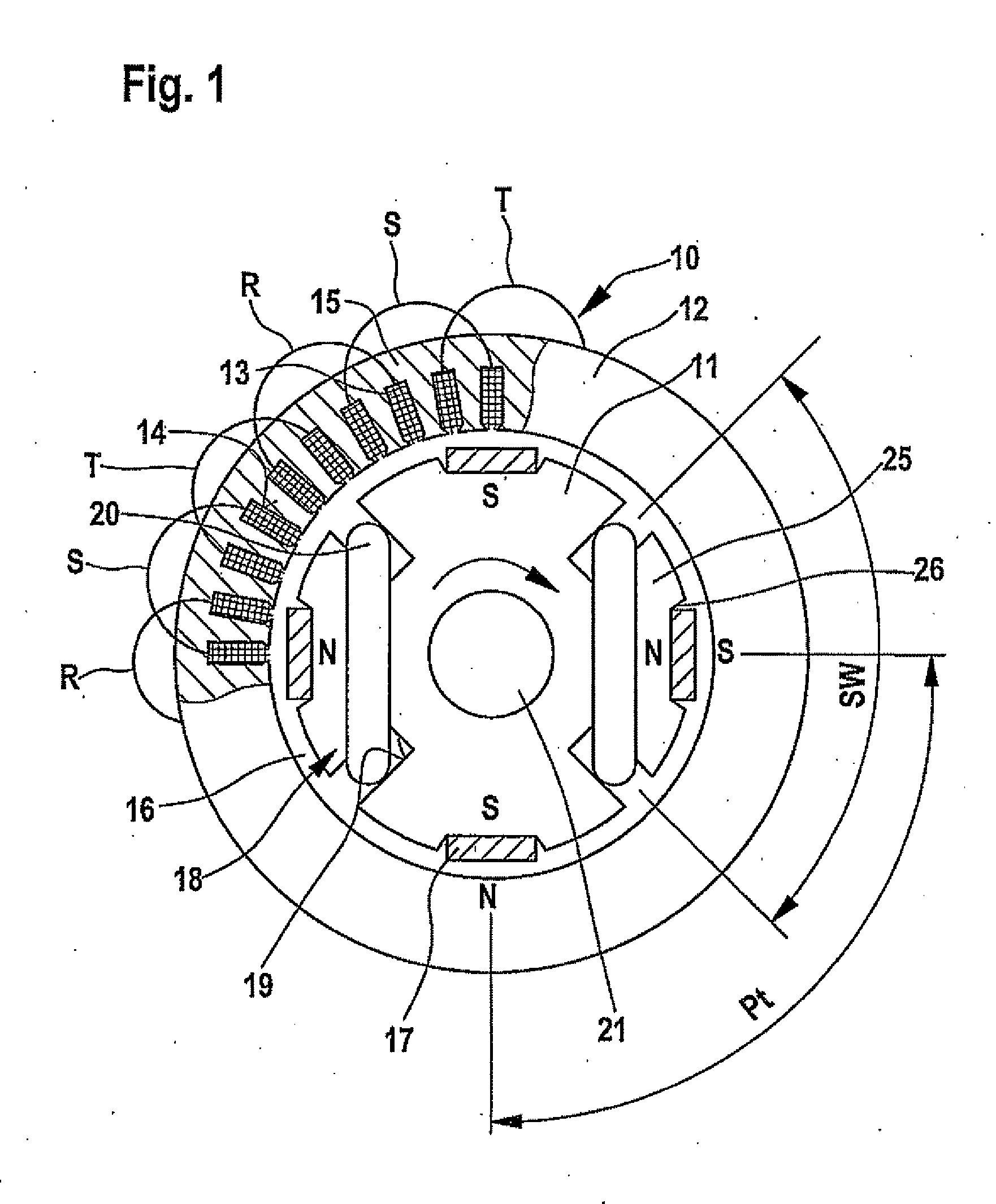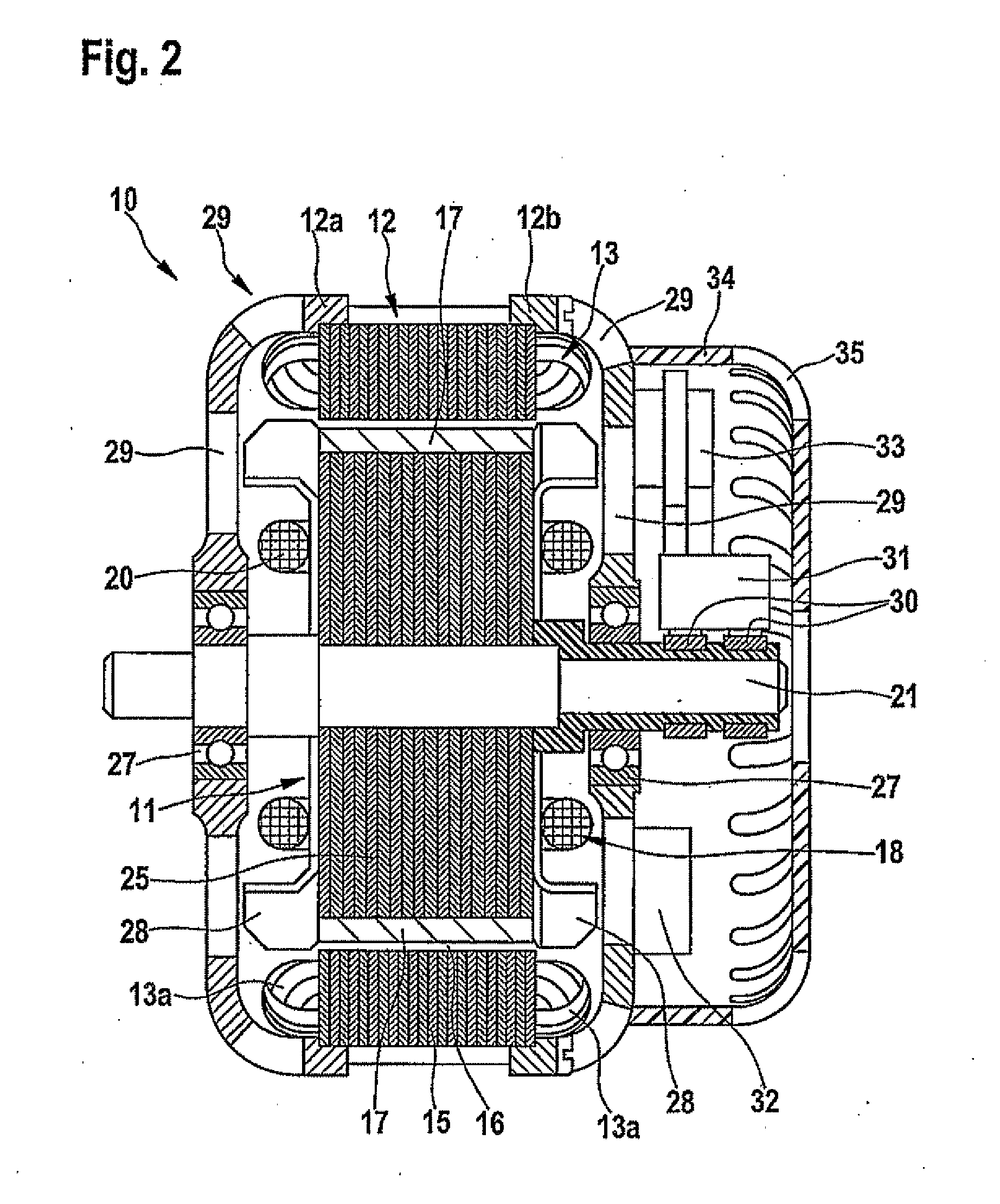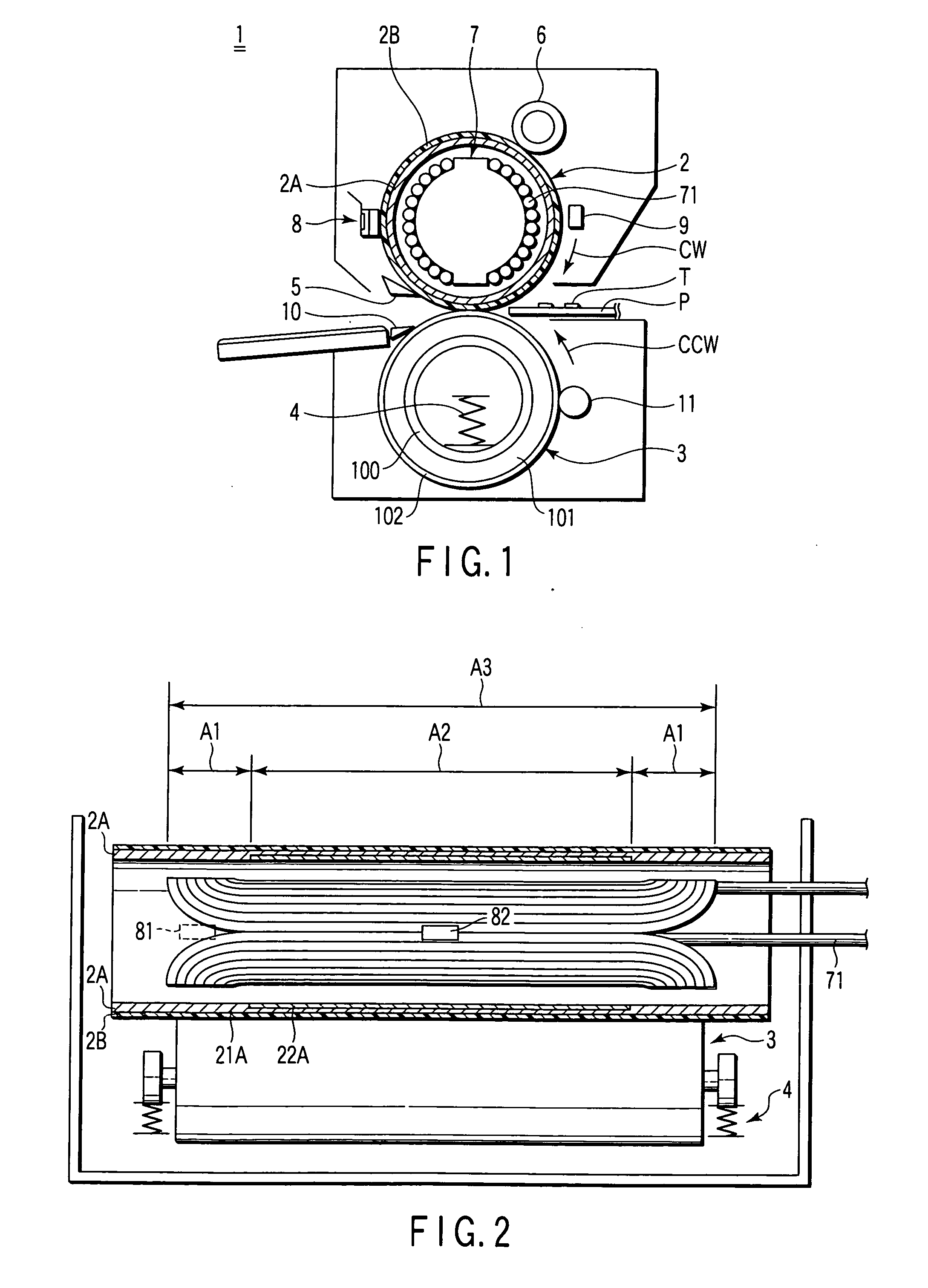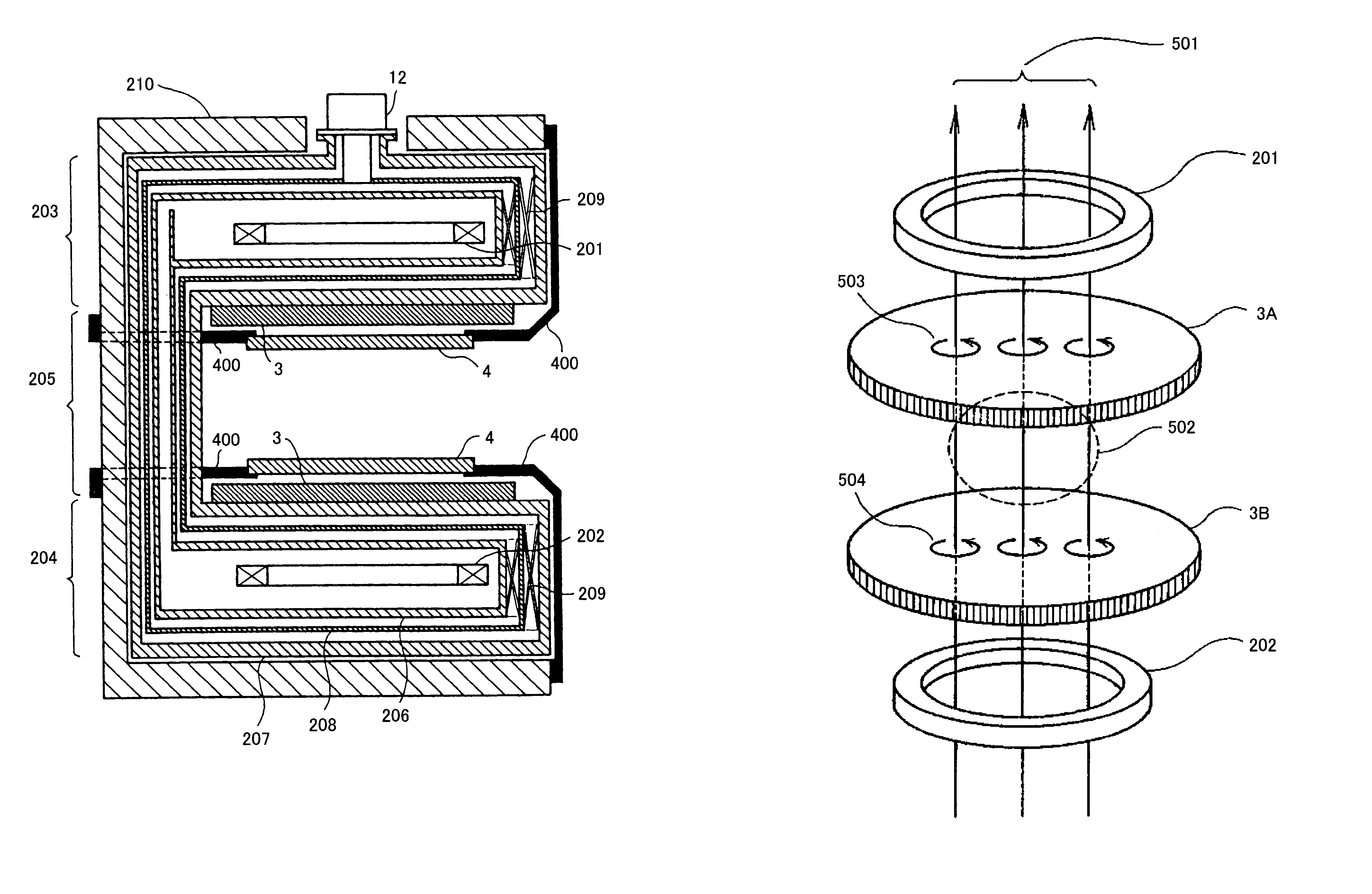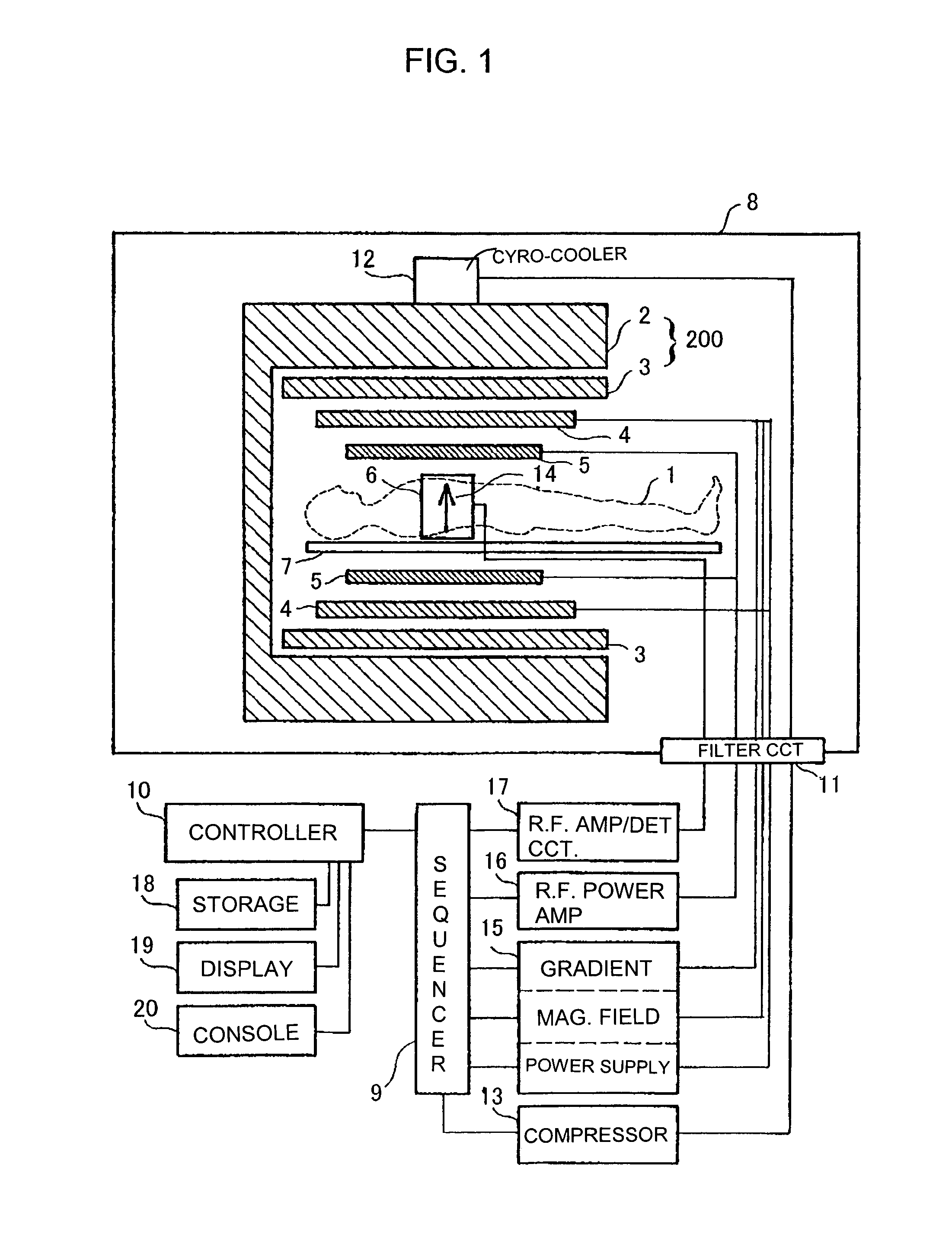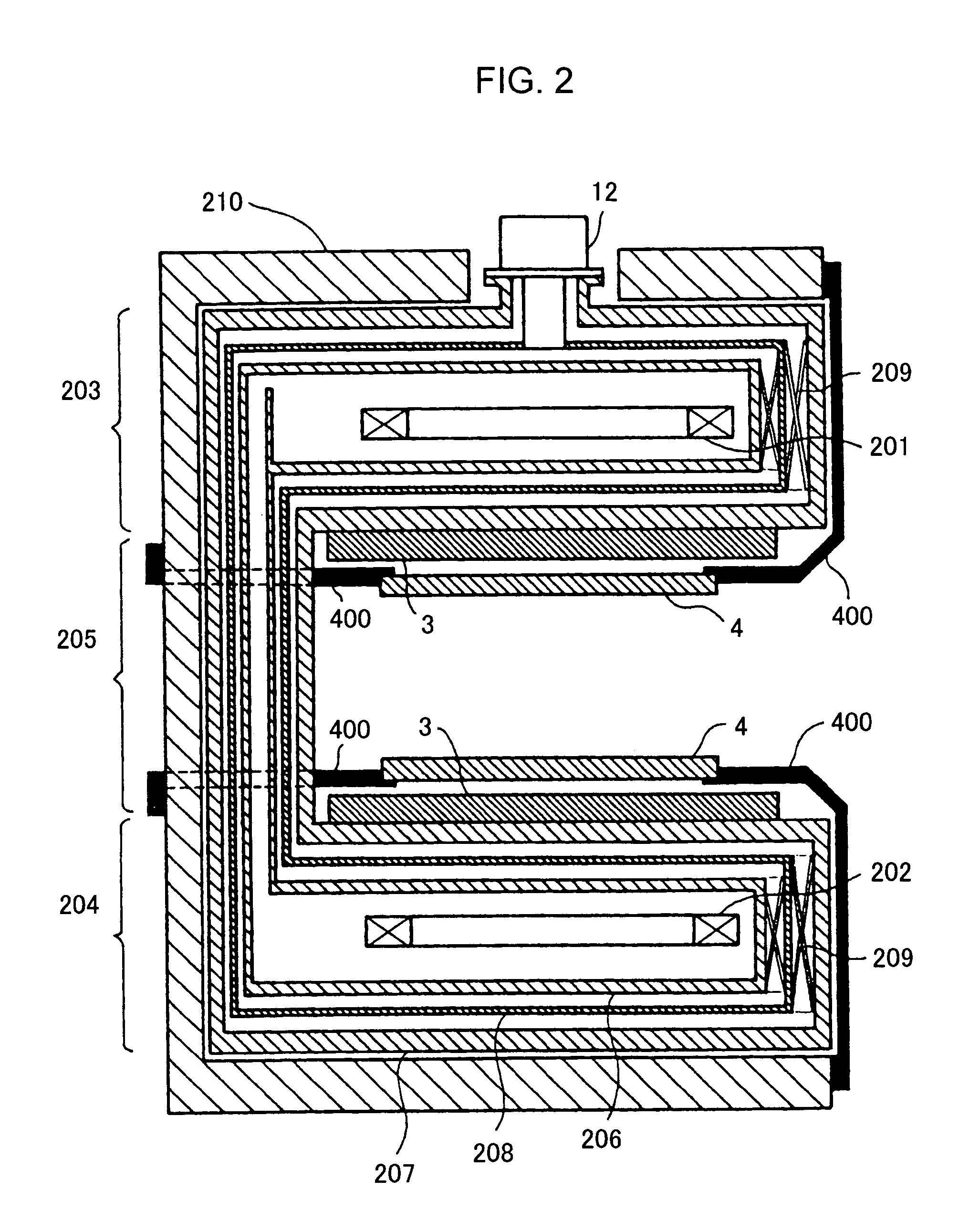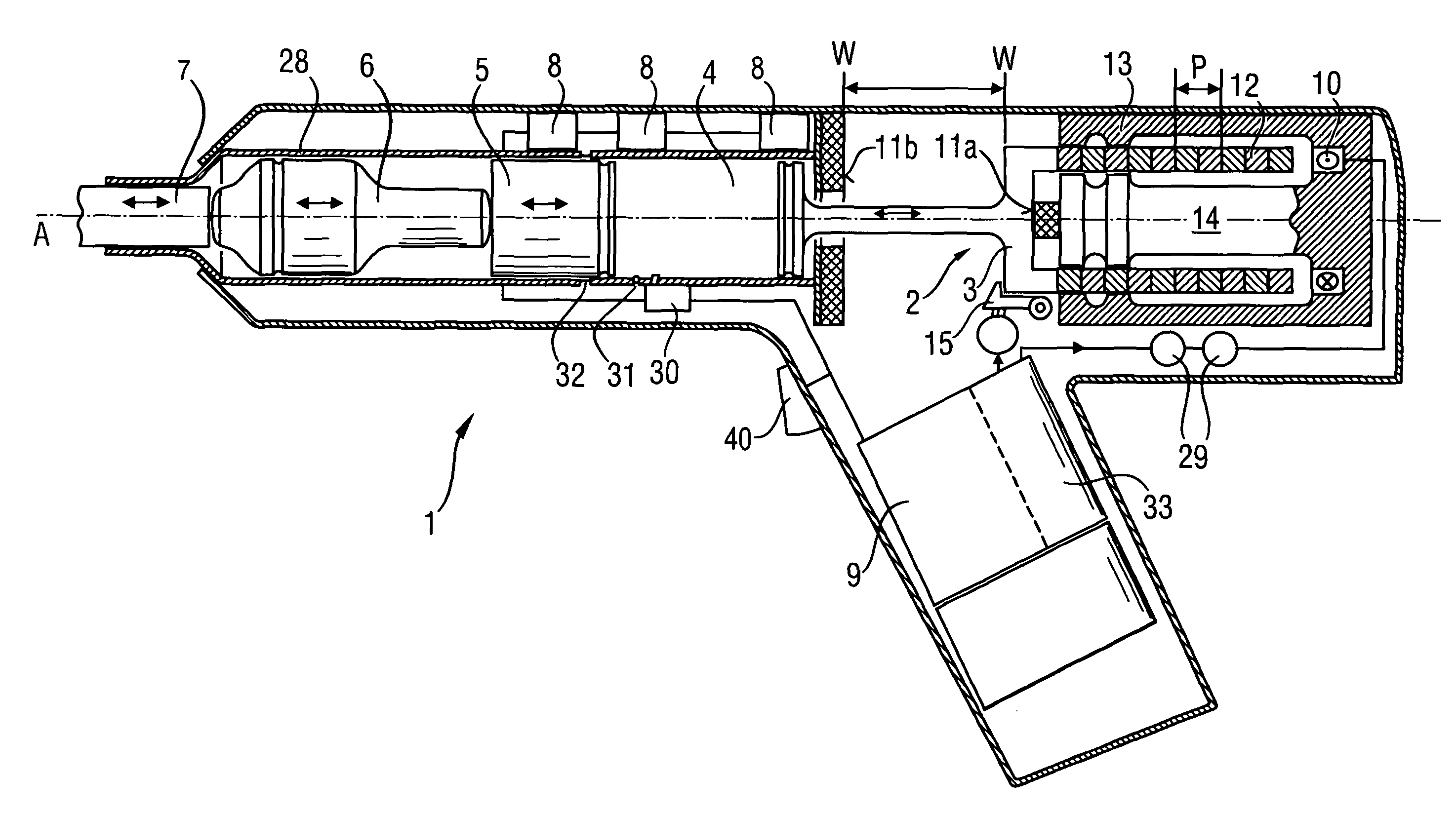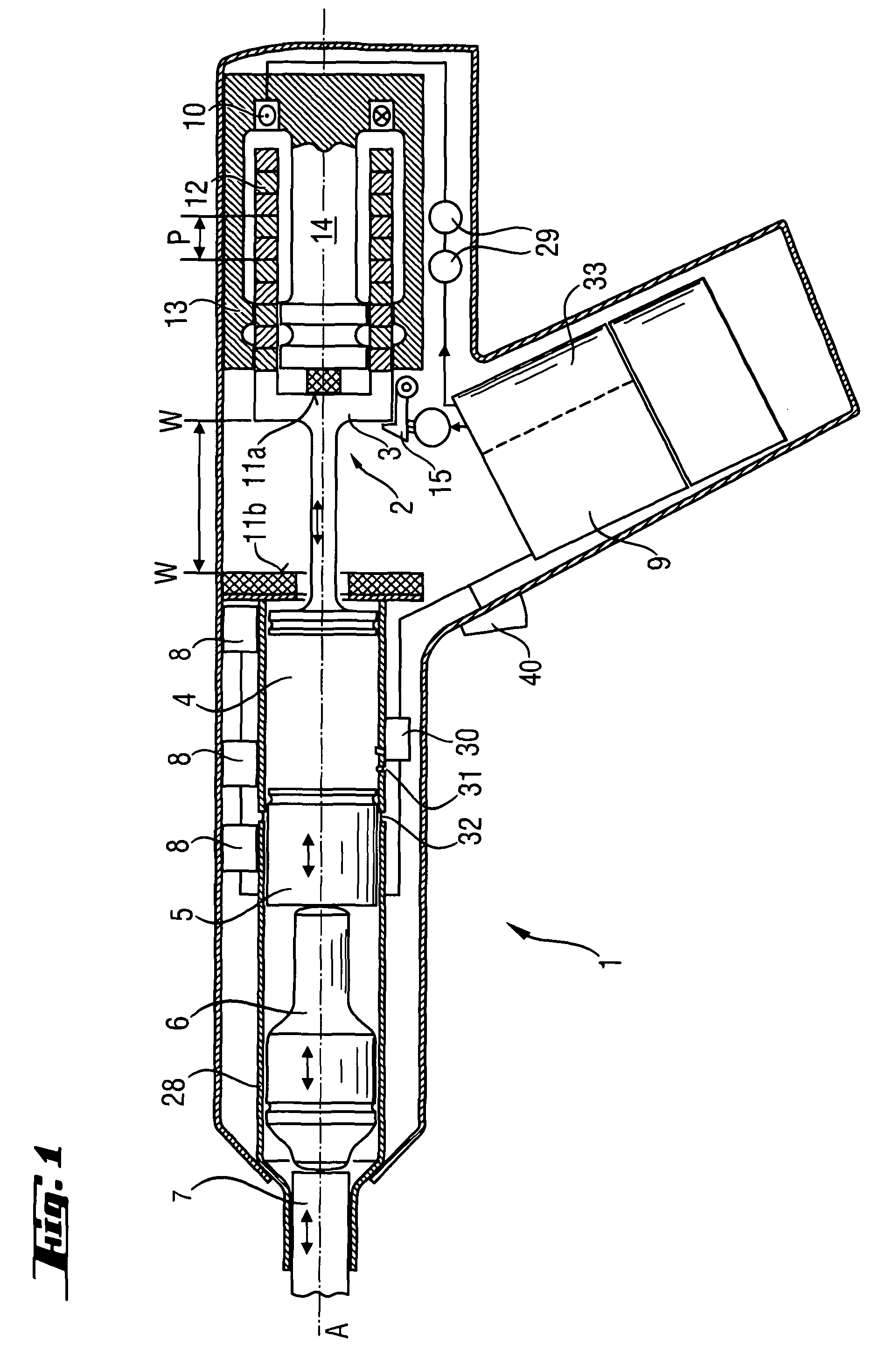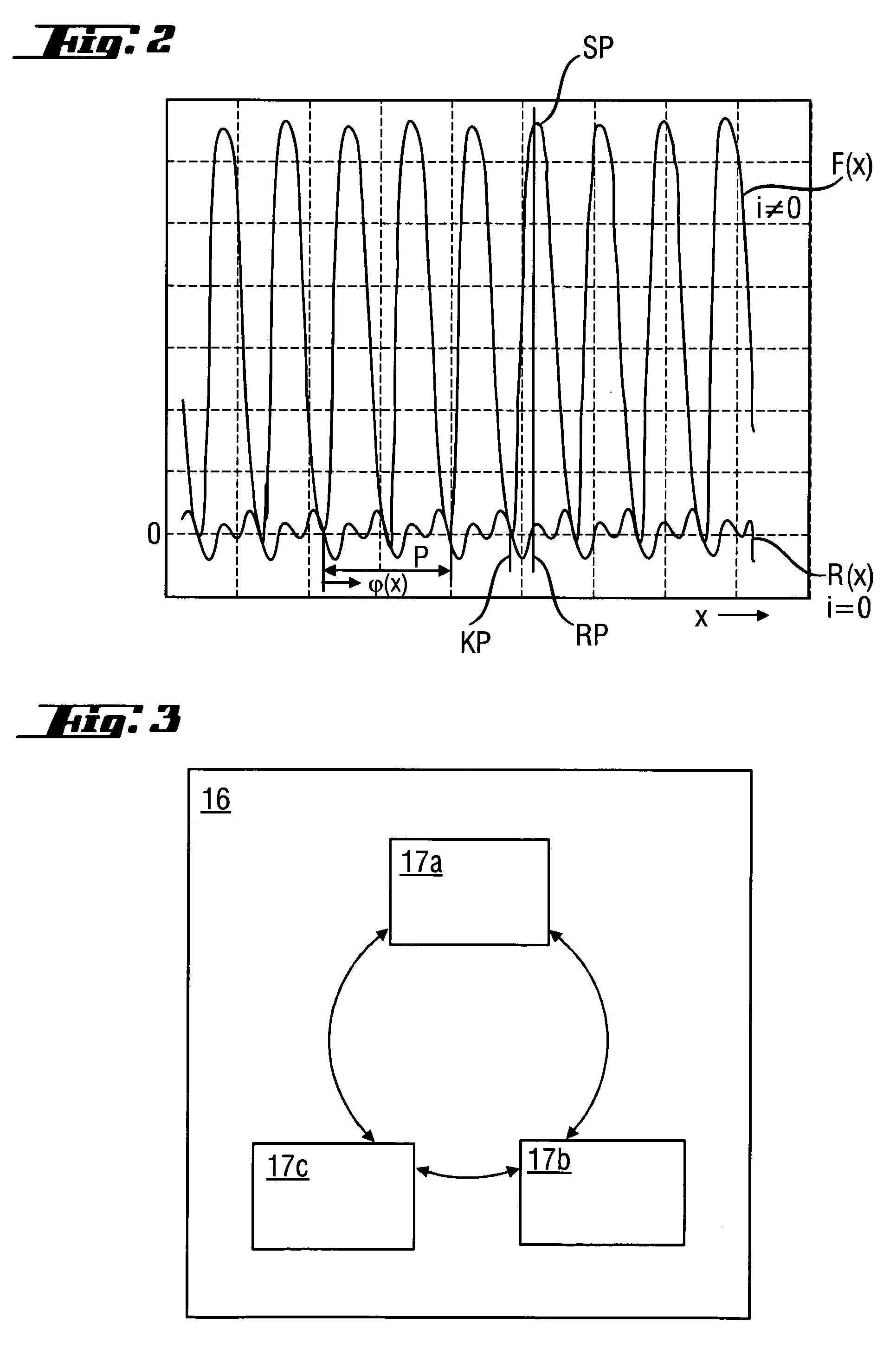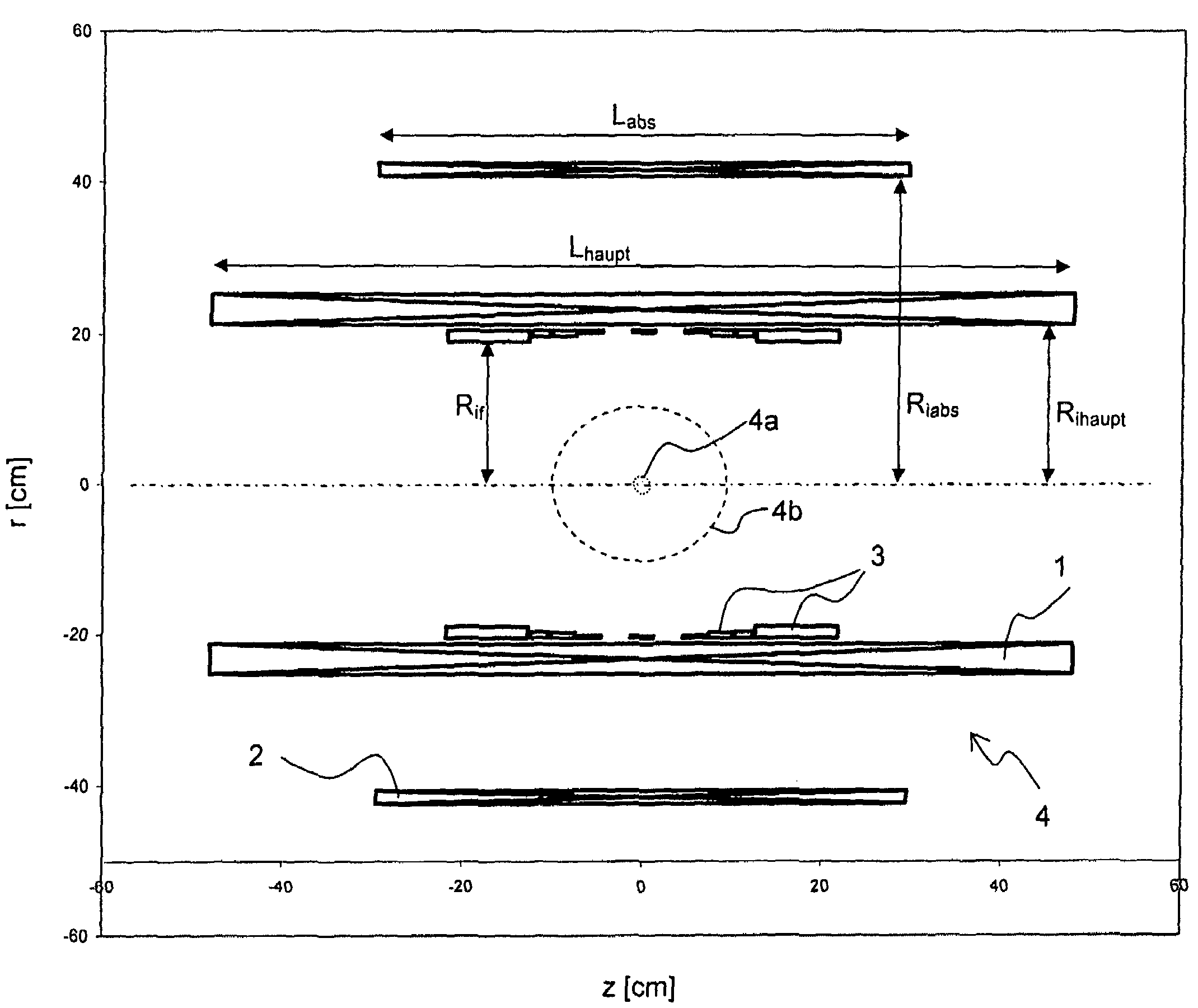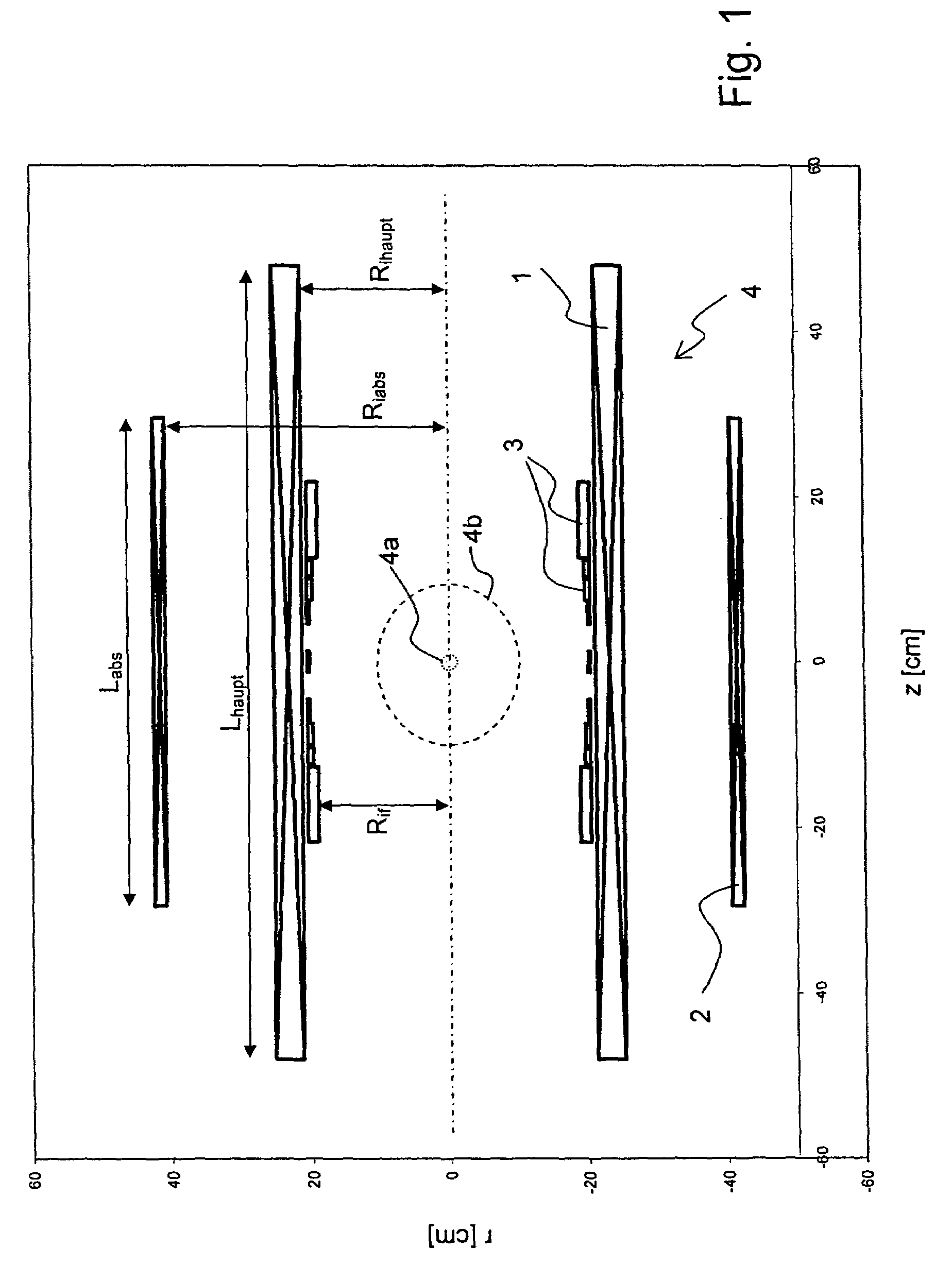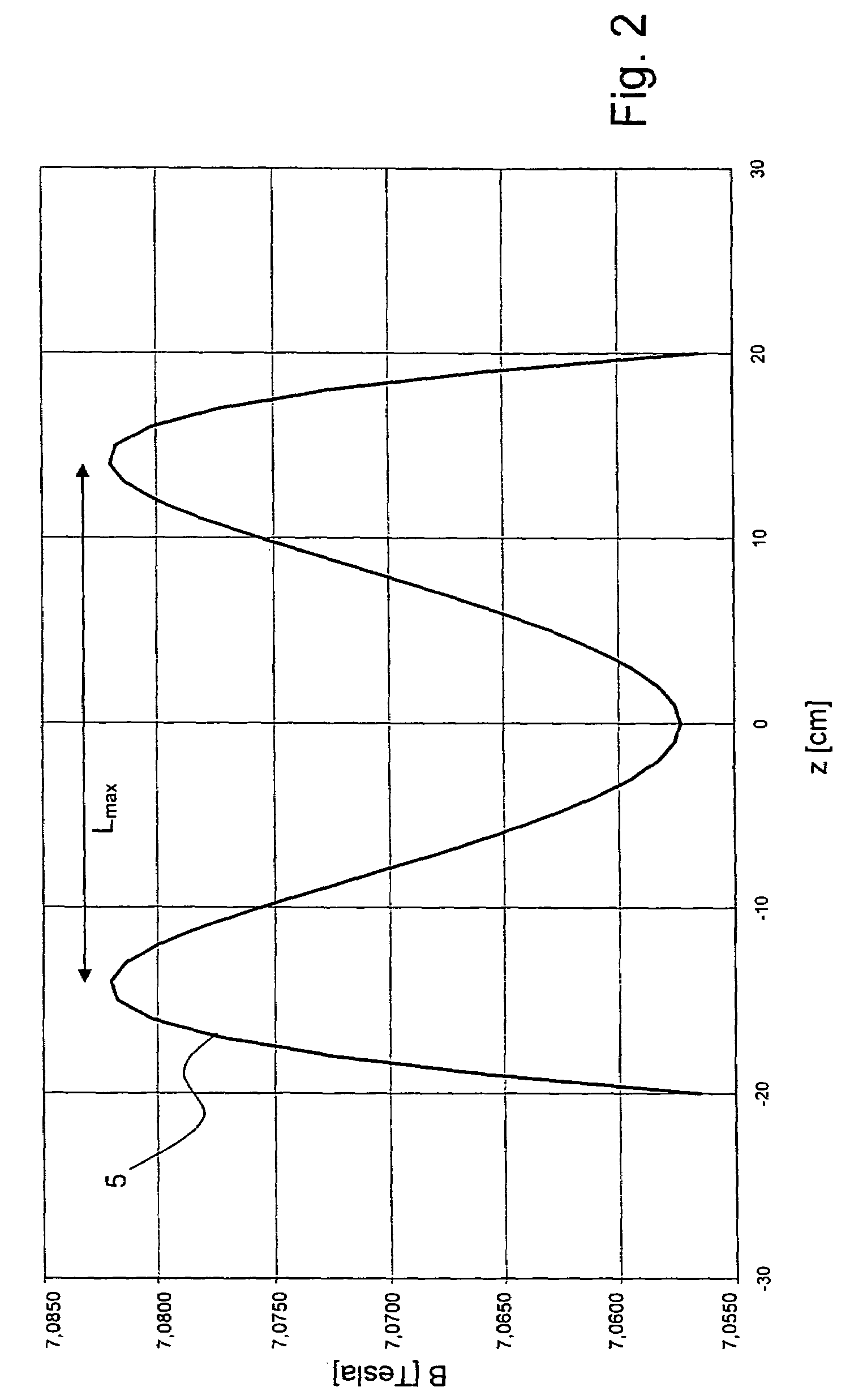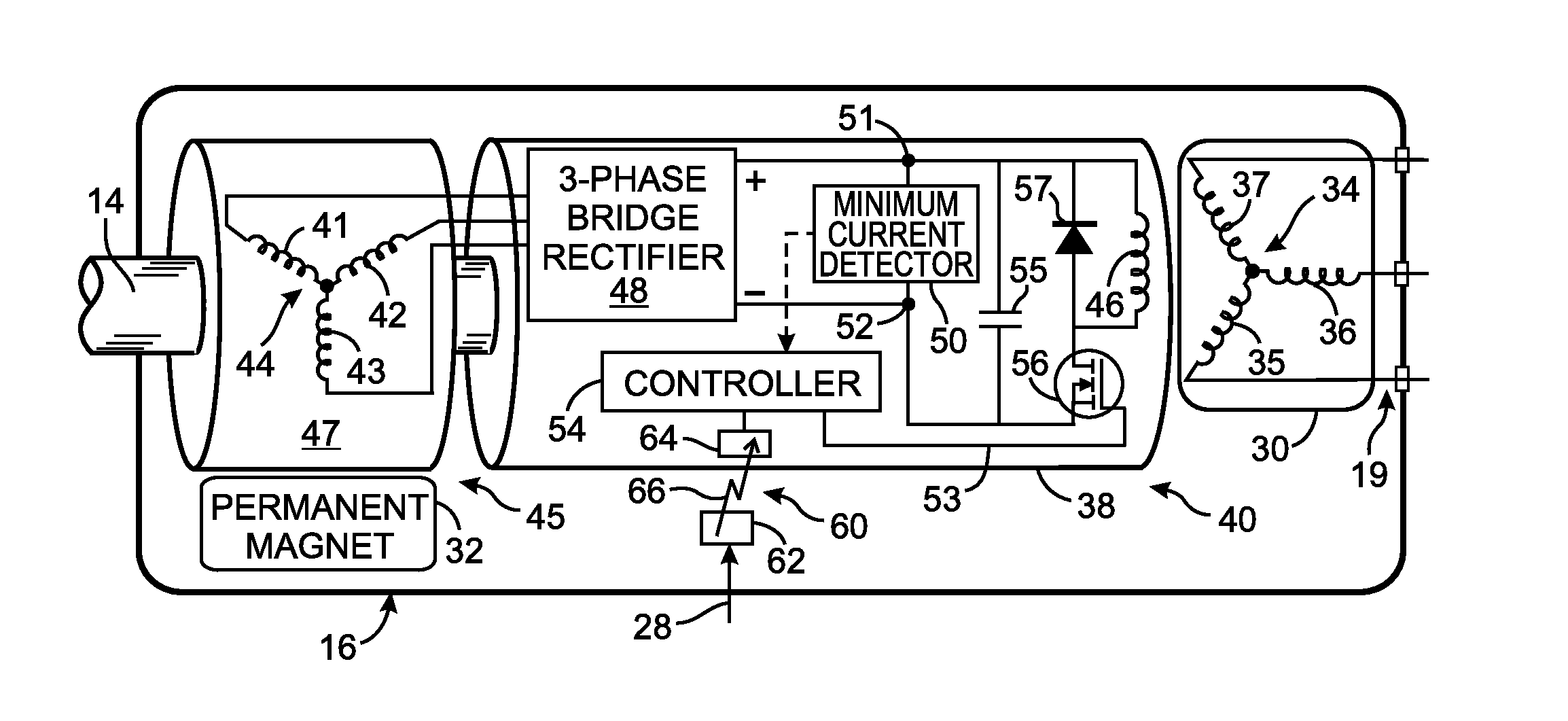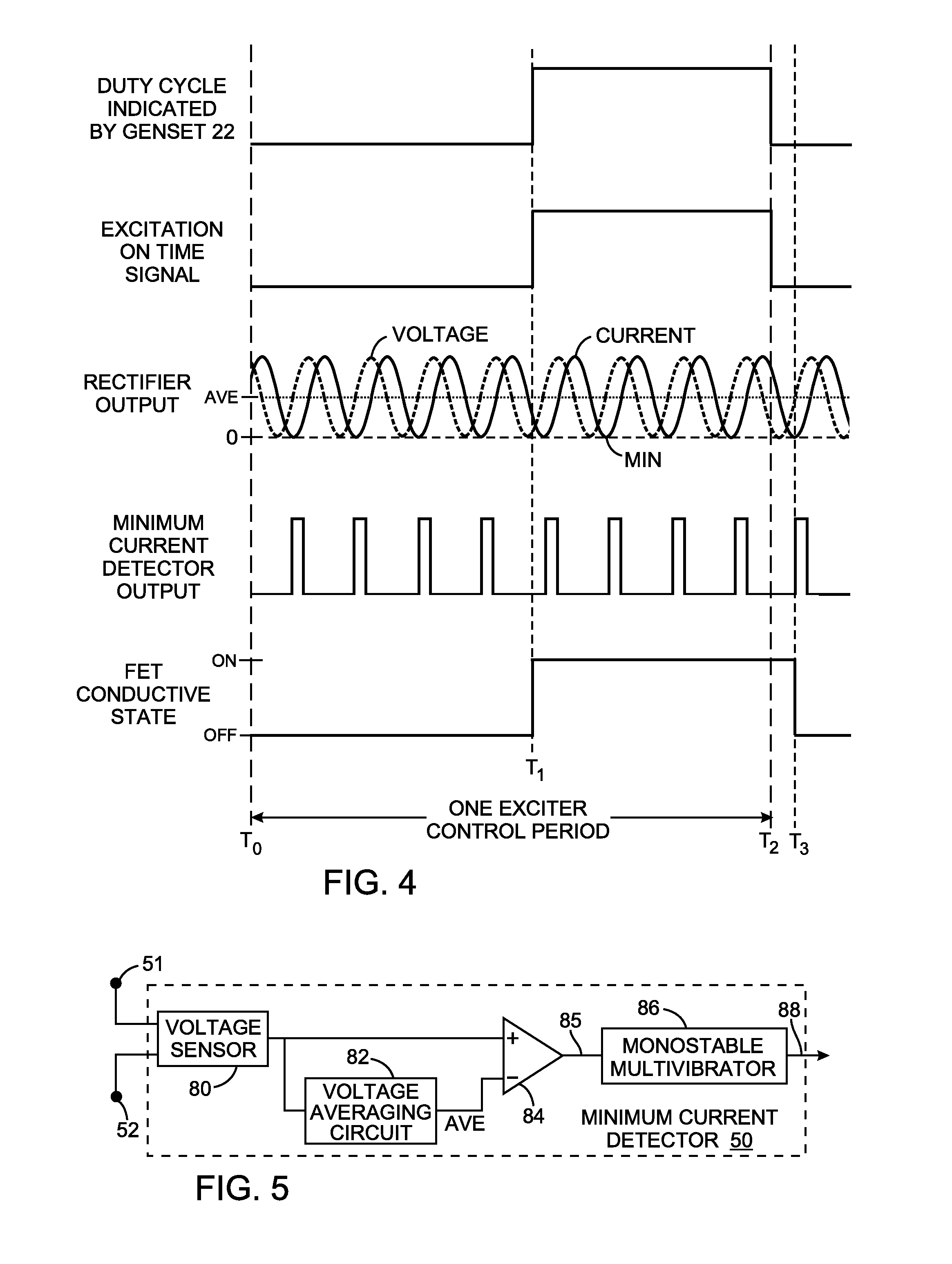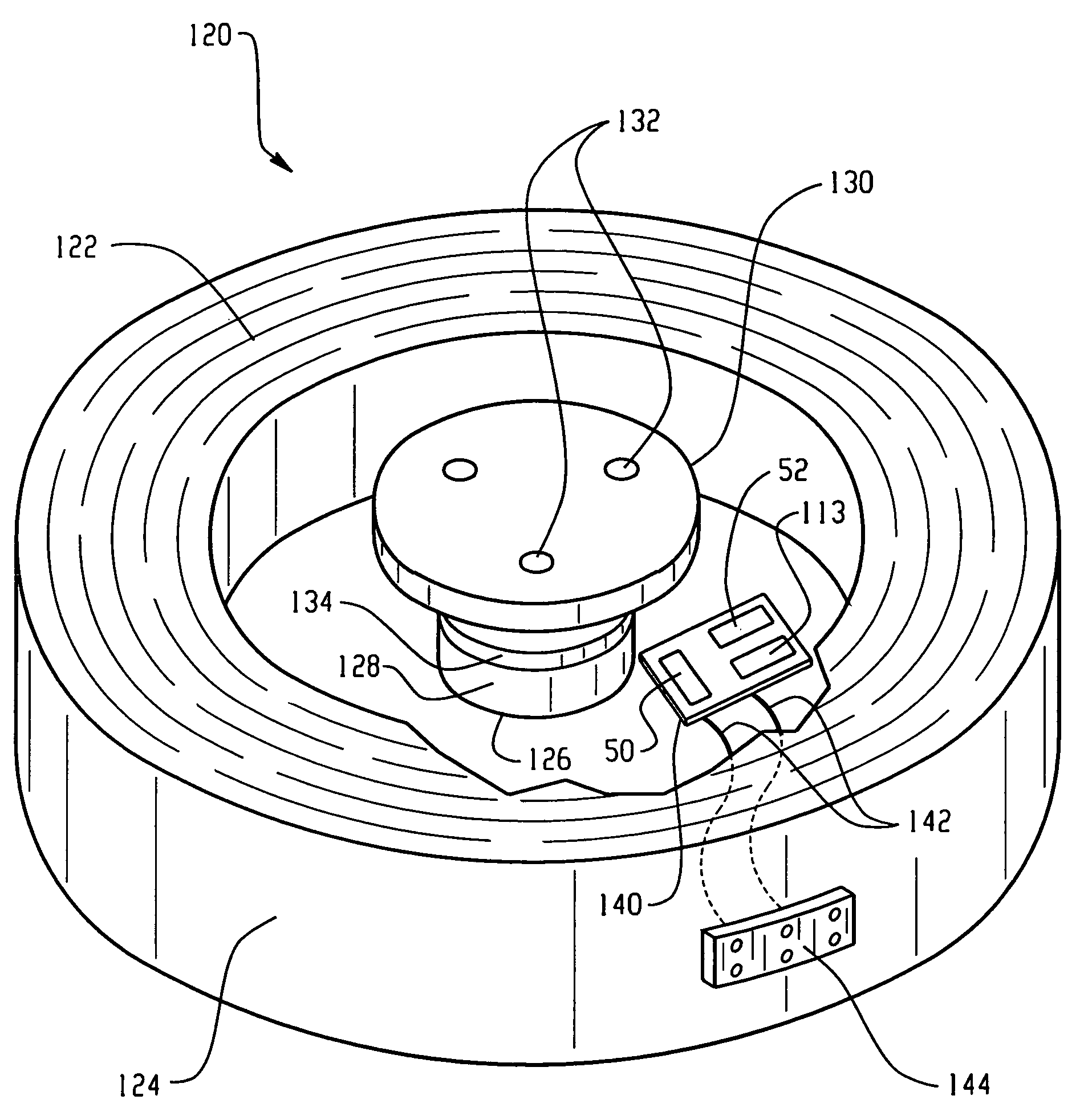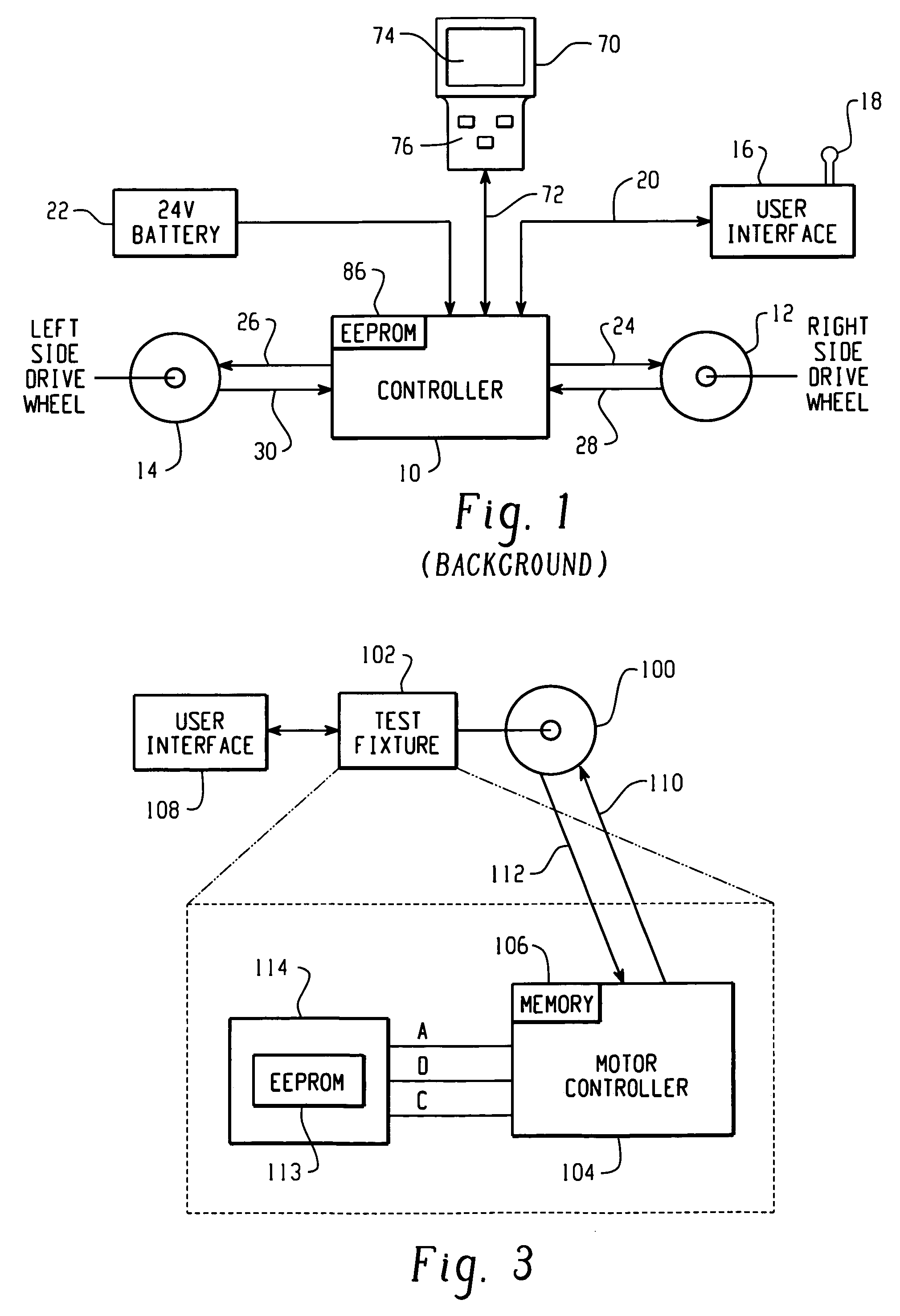Patents
Literature
Hiro is an intelligent assistant for R&D personnel, combined with Patent DNA, to facilitate innovative research.
1200 results about "Field coil" patented technology
Efficacy Topic
Property
Owner
Technical Advancement
Application Domain
Technology Topic
Technology Field Word
Patent Country/Region
Patent Type
Patent Status
Application Year
Inventor
A field coil is an electromagnet used to generate a magnetic field in an electro-magnetic machine, typically a rotating electrical machine such as a motor or generator. It consists of a coil of wire through which a current flows.
Apparatus and method for controlling hybrid motor
ActiveUS8228020B2Reduce capacityReduce electricity loadSingle-phase induction motor startersWindingsDriver circuitPower switching
An apparatus and method for controlling a hybrid motor, The hybrid motor, uses a permanent magnet instead of a field coil for a rotor, winds a coil round a stator in a multi-phase independent parallel manner, fixes a rectifying type encoder to the rotor and connects a sensor to a driving circuit. The apparatus comprises: an encoder attached to a rotor in cooperation with a pole sensor a speed input unit for generating a speed instruction signal a power switching circuit to generate motor driving signals; a drive module receiving the speed instruction signal and the sensor signal and outputting the speed instruction signal synchronized with the sensor signal as a driving motor signal; a power supply for applying a DC voltage to the power switching circuit; A logic power supply for converting the DC voltage into a logic voltage, and applying logic voltage to the drive module. The motor has n phases, n power switching circuits and n drive modules.
Owner:NAMYANG NEXMO CO LTD
Impedance matching network and multidimensional electromagnetic field coil for a transponder interrogator
InactiveUS20050024198A1Constant amplitudeMemory record carrier reading problemsSubscribers indirect connectionEngineeringImpedance matching
An improved interrogator for an inductively coupled identification system is disclosed. The interrogator provides a multidimensional electromagnetic field through a plurality of coils aligned relative to each other. The coils provide a rotating magnetic field having approximately constant amplitude regardless of orientation with respect to the transponder. An additional coil may be utilized to precess the multidimensional electromagnetic field. The interrogator may further provide an impedance matching network that includes a series drive capacitor to match the impedance of a capacitor in parallel with a coil to a driver load impedance.
Owner:AVID INDENTIFICATION SYST
Low inductance electrical machine
A low inductance electrical machine that may be used as an alternator or motor with low armature inductance is disclosed. Arrangements of complementary armature windings are presented in which the fluxes induced by currents in the armature windings effectively cancel leading to low magnetic energy storage within the machine. This leads to low net flux levels, low core losses, low inductance and reduced tendency toward magnetic saturation. The inclusion of additional gaps in the magnetic circuit allows for independent adjustment of air gap geometry and armature inductance. Separately excited field arrangements are disclosed that allow rotor motion to effect brush-less alternator or brush-less motor operation. An exemplary geometry includes a stator including two annular rings and a concentric field coil together with a rotor structure separated from the stator by four air gaps.
Owner:RAVEN TECH
Oil and gas field coiled tubing paraffin removal and contaminant release process and tool thereof
PendingCN106761561AWill not artificially cause blockageImprove cleanlinessCleaning apparatusWaxCoiled tubing
The invention relates to an oil and gas field coiled tubing paraffin removal and contaminant release process and a tool thereof. Paraffin removal is performed by using coiled tubing, and removed paraffin can be recycled to the ground, and therefore a wellbore cannot be blocked due to human factors. A flushing port is designed at the upper end of a flushing tool, and then paraffin remaining on mechanical scraping portions can be cleared. The coiled tubing is connected with the paraffin removal and contaminant release tool for paraffin removal and contaminant release. The flushing tool at the front end of a pipe string can first perform 360 degree hydraulic cleaning on the wellbore, and then along with descending of the pipe string, a paraffin remover in the pipe string performs mechanical cleaning on the wellbore, and therefore dual cleaning mode combining the hydraulic cleaning with mechanical scraping is achieved, removal effects are greatly improved, cost is saved, and work efficiency is improved.
Owner:JEREH ENERGY SERVICES
Low inductance electrical machine for flywheel energy storage
InactiveUS6175178B1Synchronous generatorsMagnetic circuit rotating partsBrushless motorsFlywheel energy storage
A low inductance electrical machine which may be used as an alternator or motor with low armature inductance is disclosed. Arrangements of complementary armature windings are presented in which the fluxes induced by currents in the armature windings effectively cancel leading to low magnetic energy storage within the machine. This leads to low net flux levels, low core losses, low inductance and reduced tendency toward magnetic saturation. Separately excited field arrangements are disclosed that allow rotor motion to effect brushless alternator or brushless motor operation. An exemplary geometry includes a stator including two toroidal rings and a concentric field coil together with a rotor structure separated from the stator by four air gaps. An alternate embodiment allows for counter-rotation of two rotor elements for use as a flywheel energy storage system in which the external gyroscopic effects cancel.
Owner:RAVEN TECH
Apparatus for generating electricity from flowing fluids
An apparatus for generating electricity from aeolian oscilaltions caused by the flow of a fluid such as wind or water. An immobile beam extends between two piers, and a movable vane is disposed around the beam in parallel relation thereto. The vane is generally tubular, having a generally cylindrical or foil-shaped cross section. The movement of a fluid, such as wind or deep ocean tidal flow, past the vane induces aeolian oscillation in the vane, so that the vane moves to-and-fro, with respect to the beam, in a direction generally perpendicular to the direction of fluid flow. Rods and a crankshaft may connect the vane to a generator mounted upon the beam, so that the movement of the vane is converted into electricity. Alternatively, electricity can be generated from the movement of the vane by a field coil on the vane inducing electrical current in induction wires mounted upon the immobile beam.
Owner:CLARK ROBERT O
Method and device for monitoring vessel access during extracorporeal blood treatment
InactiveUS6663585B1Improve reliabilitySimple technical meanSemi-permeable membranesSolvent extractionExtracorporeal circulationBlood treatments
A method and device for monitoring vascular access is described. A field coil is placed at a location on an extracorporeal circulation loop connected to the vascular system of a patient, and an induction coil is placed at another different location. A voltage is supplied to the field coil, inducing an electric current in the blood. The current induces a voltage in the induction coil. Monitoring the voltage in the induction coil reveals if vascular access is defective.
Owner:FRESENIUS MEDICAL CARE DEUTSCHLAND GMBH
Simplified water-bag technique for magnetic susceptibility measurements on the human body and other specimens
InactiveUS7047059B2Less-expensive fabricationLess-expensive useMagnetic-field-controlled resistorsSolid-state devicesHuman bodyMagnetic susceptibility
A probe instrument using room-temperature sensor(s) that can measure variations in magnetic susceptibilities. The instrument has sufficient resolution to monitor paramagnetic materials in a human body, such as iron in a human liver, by noninvasively examining patients with iron-overload diseases. The instrument includes room temperature magnetic sensors, and detects the sample, that is, the tissue response to an alternating current field applied by an applied field coil. The applied field coil dimensions are chosen so that the applied field is optimized for maximum response from the liver while minimizing the effects due to the overlying abdominal tissue and at the same time not unduly increasing the sensitivity of the instrument to the lung. To overcome variations in the sensor output due to fluctuations in the applied field, change in the ambient temperature and mechanical relaxation of the instrument, the sensor-sample distance is modulated. The detector assembly is oscillated while the examined patient remains stationary. An improved water-bag technique is employed to eliminate background tissue response. The detector assembly forms part of a probe instrument for performing noninvasively the paramagnetic concentration of a patient.
Owner:QUANTUM MAGNETICS
Linear Electromechanical Vibrator with Axially Movable Magnet
An electromagnetic vibrator has a movable magnet that can move linearly in an axial direction. A field coil surrounds the movable magnet. Magnetic bumpers are disposed on opposite ends of the vibrator, and are oriented to repel the movable magnet. When an alternating current is provided in the field coil, the movable magnet oscillates linearly in the axial direction, bumping against the magnetic field of the bumper magnets and thereby creating vibration. The movable magnet may have a toroidal shape and be disposed on an axial shaft to linearly constrain the motion of the movable magnet. Two field coils can be provided to simultaneously create push and pull forces on the movable magnet. The bumper magnets can be replaced with compression springs. The electromagnetic vibrator can be very small and energy efficient; it is well suited for use in portable electronic devices, cell phones, toys, industrial mixers, and massage devices.
Owner:VIRGINIA TECH INTPROP INC
Cold atom micro primary standard
InactiveUS20100033256A1Maximizing numberLong life-timeLaser detailsApparatus using atomic clocksUltra-high vacuumTrapping
An atomic clock having a physics package that includes a vacuum chamber cavity that holds atoms of Rb-87 under high vacuum conditions, an optical bench having a single laser light source, a local oscillator, a plurality of magnetic field coils, an antenna, at least one photo-detector and integrated control electronics. The single laser light source has a fold-retro-reflected design to create three retro-reflected optical beams that cross at 90° angles relative to one another in the vacuum chamber cavity. This design allows the single laser light source to make the required six trapping beams needed to trap and cool the atoms of Rb-87. The foregoing design makes possible atomic clocks having reduced size and power consumption and capable of maintaining an ultra-high vacuum without active pumping.
Owner:HONEYWELL INT INC
Homopolar machine with shaft axial thrust compensation for reduced thrust bearing wear and noise
InactiveUS6856062B2Reduce induced magnetic forceConstant contact pressureRotary current collectorMagnetic bodiesFiberContact pressure
A homopolar machine produces an axial counter force on the rotating shaft to compensate for the load on the shaft's thrust bearing to reduce wear and noise and prolong bearing life. The counter force is produced through magnetic interaction between the shaft and the machine's field coils and is created by changing the current excitation of the field coils, which results in a magnetic flux asymmetry in an inner flux return coupled to the shaft. The homopolar machine may also have a configuration that uses current collectors that maintain substantially constant contact pressure in the presence of high magnetic fields to improve current collector performance. The current collectors are flexible and may be made from either electrically conductive fibers or stacked strips such that they bear up against the armature so that the pressure is maintained by the spring constant of the current collector material. The homopolar machine may also have a configuration where the brushes are oriented so that the current is aligned as much as is practical with the local magnetic field lines so as to reduce the lateral electromagnetic forces on the brushes.
Owner:GENERAL ATOMICS
Hand-held power tool with air spring percussion mechanism, linear motor, and control process
ActiveUS20090065226A1Reduce dataHigh impact frequencyAssociation with control/drive circuitsAC motor controlAir springHand held
A hand-held power tool (1) includes a linear motor (2) having a rotor (3) which is movable along a percussion axis (A) in an axially limited manner between two reversal points (W) and which can be driven by the striking piston (5) of the power tool with the intermediary of an air spring (4), sensors designed for determining the actual state of the rotor (3) and connected to a computer (9) connected via power electronics (33) to at least one field coil (10) of the linear motor (2), with the rotor (3) being displaced against a contact element (11a, 11b) at least at one reversal point (W) and being pressed against the contact element electromagnetically; and a control process for the hand-held power tool.
Owner:HILTI AG
Light-weight high-power electrical machine
InactiveUS6891302B1High energyMotor/generator magnetic lossHybrid vehiclesWindingsAlternatorElectrical polarity
A brushless electrical machine, usable as a motor, generator, or alternator, has a rotor that is comprised of a rim portion and a substantially open center portion. The rim portion has a partially hollow core in which a stationary field coil is supported. Current to the field coil generates magnetic flux that circulates in a poloidal flux path in the rim, crossing a single magnetic air gap formed by the rim. Protrusions in the rim located around the circumference form poles all having the same polarity. As the rotor rotates, the flux exiting the poles passes through multiple stationary armature windings around the circumference that are located in the single air gap. An AC voltage is induced in the armature windings from rotation.
Owner:REVOLUTION ELECTRIC MOTOR
Continuously variable ratio transmission
InactiveUS7115066B1Low efficiencyImprove the level ofEngine fuctionsToothed gearingsEngineeringAC power
A continuously variable ratio transmission including a planetary gear set having a sun gear, a ring gear, and a planet carrier having at least two planet gears carried thereon, a control element including a servogenerator capable of generating electric power, and at least one auxillary field coil adapted to be operatively connected to an output means to influence a power output level and AC power frequency of the output means, the at least one auxillary field coil being powered by the servogenerator and constituting a load to the servogenerator, the speed of the servogenerator being capable of being controlled by the load; and a means for controlling an electrical current to the at least one auxiliary field coil form the servogenerator; where the servogenerator is capable of being driven to produce electrical power by a rotation of one of the sun gear, the ring gear, and the planet carrier.
Owner:LEE PAUL Z
Integrated engine-driven generator control system
An engine-driven welder / generator is controlled by an integrated controller that is coupled to both the engine and to the welder / generator. The controller receives input signals for operational parameters of the engine, and additional signals indicative of electrical output by the welder / generator. Operation of the engine and welder / generator may thus be coordinated. The controller may control speed, timing, fuel injection, and so forth of the engine, and output of the welder / generator, such as by control of input to a field coil.
Owner:ILLINOIS TOOL WORKS INC
Fast torque control of a belted alternator starter
ActiveUS20060017290A1Electrical controlInternal combustion piston enginesAlternatorElectrical devices
A belted-alternator starter system that continuously provides pre-flux when the vehicle ignition is on and the engine is off to provide a faster torque response when the engine is turned on. The alternator / starter device operates as an alternator for providing electrical energy to vehicle electrical devices and the battery when the ignition is on and the engine is running, and operates as a starter for providing engine torque to start the engine when the engine is off and the ignition is on. The system further includes an inverter / rectifier circuit to provide AC current to the armature coils when the alternator / starter device is operating as a starter. The system provides an operating field current to the field coil when the ignition and the engine are on and provides a pre-flux field current to the field coil when the vehicle ignition is on and the engine is off.
Owner:GM GLOBAL TECH OPERATIONS LLC
Superconductor Magnetic Resonance Imaging System and Method (SUPER-MRI)
ActiveUS20100231215A1Improve conductivityMachines/enginesSuperconductor devicesMagnetic field gradientMagnetic resonance spectrometry
Methods and apparatuses for magnetic resonance imaging (MRI) and / or magnetic resonance spectroscopy comprising a superconducting main magnet operable to generate a uniform magnetic field in an examination region, at least one superconducting gradient field coil operable to apply a respective at least one magnetic field gradient within the examination region, and at least one RF coil that is operable to transmit and receive radio frequency signals to and from the examination region, and that is configured for cooling and comprises at least one of (i) a non-superconducting material that when cooled to a temperature below room temperature has a conductivity higher than that of copper at that temperature and (ii) a superconducting material. The main magnet, the gradient coils, and each of the at least one RF coil of a given system may each be implemented as high temperature superconductor materials.
Owner:TIME MEDICAL HLDG
Method for refining solidified structure of laser cladding layer by using alternating magnetic field and device thereof
InactiveCN102703898ARefining solidified tissueChange shapeMetallic material coating processesNumerical controlAlternating current
The invention relates to a method for refining a solidified structure of a laser cladding layer by using an alternating magnetic field and a device thereof, belongs to the technical field of laser processing. A compound coating is prepared on the surface of a substrate in a manner of conventional powder-feed laser cladding; the alternating magnetic field is applied to acting on a laser molten pool during the laser cladding; the powder-feed laser cladding process is carried out under the alternating magnetic field; and the direction of magnetic lines of force generated by the alternating magnetic field is perpendicular to the scanning speed direction of the laser cladding. The device for refining the solidified structure of the laser cladding layer by using the alternating magnetic field comprises a cooler, a CO2 laser, an argon protector, a synchronous powder feeder, a clamping device, an alternating magnetic field, a cladding substrate body and a numerical control operation floor. The method and the device provided by the invention are capable of obviously refining the solidified structure of the cladding layer; when alternating current with certain frequency is introduced into a coil, an alternating magnetic field can be generated between a metal melt and the magnetic field coil; and the intensity of the alternating magnetic field is controlled so as to change a form of the solidified structure of the cladding layer and refine crystalline grains through changing the intensity of an alternating magnetic field. The device provided by the invention is simple, low in investment cost, high in benefit, etc.
Owner:KUNMING UNIV OF SCI & TECH
Drive control system for sensor-less motor
InactiveUS6900604B2Smoothly changing over power feeding phaseLoss of synchronizationMotor/generator/converter stoppersAC motor controlMotor driveControl system
A drive control system, with PLL control, drives a rotatable multi-phase sensor-less motor by switching a current of a field coil of each phase depending on the rotating phase of the motor. When the moto is driven, a desired phase is selected as a datection phase, and a voltage induced on the coil of the detection phase is detected when power is fed for a predetermined time to the field coils other than the detection phase. A magnetic pole position is detected from the amplitude condition of the detected induced voltage. Based on this detection, the power-feeding phase of the motor drive is determined. Power feeding and pole position detection are performed alternately.
Owner:RENESAS SEMICON PACKAGE & TEST SOLUTIONS
Magnetorheological hydraulic engine mount based on extrusion mode
InactiveCN103148158ALarge adjustment rangeImprove the vibration isolation effectNon-rotating vibration suppressionMagnetic currentMagnetorheological fluid
The invention discloses a magnetorheological hydraulic engine mount based on an extrusion mode, which comprises a housing, a rubber main spring, a connecting rod and a rubber bottom membrane, wherein a decoupler is arranged between the rubber main spring and the rubber bottom membrane; a field pole plate is fixedly arranged on the connecting rod, close to the decoupler; a field coil is wound in the field pole plate; an extrusion pole plate is arranged on the decoupler, corresponding to the field pole plate; and an extrusion damping channel is formed between the extrusion pole plate and the field pole plate and fully filled with magnetorheological fluid. The magnetorheological hydraulic engine mount adopts the extrusion mode, and the field pole plate arranged on the connecting rod forms the extrusion damping channel with the extrusion pole plate on the decoupler, so that the vibration isolation capability of the mount is improved. In addition, the extrusion mode can satisfy a maximum output damping force and expand an adjustable range of the damping force.
Owner:CHONGQING UNIV
Synchronous motor and electric driving system
InactiveUS20060202582A1Reduce vibrationImprove installabilityMagnetic circuitSingle motor speed/torque controlElectricitySynchronous motor
A synchronous motor with low vibrations and an electric driving system using the motor. A field-coil synchronous motor comprises a stator and a rotor rotatably supported at the inner peripheral side of the stator with a gap left relative to the stator. The stator has a stator coil supplied with electric power while being controlled such that driving torque is reduced as a rotation speed of the rotor increases, and the rotor has a field coil supplied with a field current while being controlled such that the field current is reduced as the rotation speed of the rotor increases. The rotor is a tandem claw-pole rotor comprising plural pairs of N- and S-claw poles disposed side by side in an axial direction, and the plural pairs of claw poles of said tandem claw-pole rotor are relatively shifted from each other in a circumferential direction.
Owner:HITACHI LTD
Superconducting rotating machines with stationary field coils
Owner:GENERAL ELECTRIC CO
Magnetic resonance imaging device and gradient magnetic field coil used for it
InactiveUS6933722B2Reduce noiseReduce vibrationElectric/magnetic detectionMeasurements using magnetic resonanceEddy currentField coil
To reduce vibration and noise generated in supplying pulsatile current to the gradient magnetic field coil for driving that coil in a MRI apparatus, an active shielded gradient magnetic field coil is used, in which the gradient magnetic field coil is supported by and fixed to the static magnetic field generating magnet. The supporter for supporting this gradient magnetic field coil in non-contact does not prevent the interventional procedure performed by a doctor. Further, an eddy current generated on the surface of the static magnetic field generating magnet near the periphery of the gradient magnetic field coil, when supplying the pulsatile current to the gradient magnetic field coil, can be reduced.
Owner:HITACHI LTD
Electric machine comprising a rotor with hybrid excitation
ActiveUS20100207480A1Reduced cross sectionKeep the electromagnetic losses lowSynchronous generatorsWindingsElectric machineExcitation current
A synchronous electric machine having a fixed stator, a multi-phase stator winding and having a rotor which has poles, excited in a predefined sequence, over its circumference, the number of poles being changeable as a function of the intensity and the direction of a field current in at least one field coil of the rotor. For improving the efficiency of the machine and for reducing the number of field coils and the entire coil cross section it is provided that the rotor has a laminated core, laminated in the axial direction, which has grooves on the circumference for accommodating the at least one field coil and that the at least one field coil is situated on the circumference of the rotor with a step size which corresponds to the pole pitch of the lower number of poles.
Owner:SEG AUTOMOTIVE GERMANY GMBH
Heating apparatus and induction heating control method
InactiveUS20070212091A1Electrographic process apparatusInduction heating apparatusEngineeringField coil
In an aspect of this invention, a fixing device includes a heating member including a first area and a second area formed of conductive members (e.g., aluminum and iron) having different magnetic permeability ratios, and an induction heating unit which generates a magnetic field from a coil to induction-heat this heating member, and the fixing device changes a frequency of a high-frequency current to be supplied to the coil to thereby control a heating area of the heating member.
Owner:KK TOSHIBA +1
MRI apparatus correcting vibratory static magnetic field fluctuations, by utilizing the static magnetic fluctuation itself
InactiveUS7034537B2Cancel fluctuationStrength of static magnetic fieldMagnetic measurementsElectric/magnetic detectionEddy currentOpen structure
An MRI apparatus having an open structure includes a static magnetic field generating magnet including magnetic field generating sources arranged above and below an imaging space and magnetic field fluctuation reducing plates arranged inside the magnet. Gradient magnetic field coils are fixed to the static magnetic field generating magnet so as to not be in contact with the magnetic field fluctuation reducing plates. When the strength of the magnetic field generated by the static magnetic field generating magnet fluctuates due to vibration of the gradient magnetic field coils or other devices during an imaging operation of the MRI apparatus, an eddy current is generated on the magnetic field fluctuation reducing plates in response to the magnetic field fluctuation components. Magnetic flux which cancels the static magnetic field fluctuation components is generated due to this eddy current, and consequently, a time-sequentially stable static magnetic field can be obtained.
Owner:HITACHI LTD
Hand-held power tool with air spring percussion mechanism, linear motor, and control process
ActiveUS7926584B2Simple and robustKinematics is accordingly highly complicatedAssociation with control/drive circuitsAC motor controlAir springHand held
A hand-held power tool (1) includes a linear motor (2) having a rotor (3) which is movable along a percussion axis (A) in an axially limited manner between two reversal points (W) and which can be driven by the striking piston (5) of the power tool with the intermediary of an air spring (4), sensors designed for determining the actual state of the rotor (3) and connected to a computer (9) connected via power electronics (33) to at least one field coil (10) of the linear motor (2), with the rotor (3) being displaced against a contact element (11a, 11b) at least at one reversal point (W) and being pressed against the contact element electromagnetically; and a control process for the hand-held power tool.
Owner:HILTI AG
Compact superconducting magnet configuration with active shielding having a shielding coil contributing to field formation
ActiveUS7898258B2Sizable impactImprove field uniformityMagnetic measurementsMagnetsSuperconducting CoilsHomogeneous magnetic field
Owner:BRUKER BIOSPIN
Resonant commutation system for exciting a three-phase alternator
InactiveUS20120153904A1Emergency protective circuit arrangementsDynamo-electric converter controlCapacitanceControl signal
An alternator has a field coil that produces a magnetic field which induces electricity in an coil arrangement. A field coil excitation system includes a generator with an output coil assembly for producing alternating electricity. A rectifier converts the alternating electricity into voltage and direct current at two nodes. A capacitor, between the nodes, has capacitance that forms a resonant circuit with inductance of the output coil assembly. Due to that resonant circuit, the voltage and direct current oscillate in a predefined phase relationship. A switch and the field coil are connected in series between the nodes. A controller renders the switch conductive for a time period specified by a received control signal. The switch is rendered non-conductive at the first occurrence of a minimum current level after the time period ends. The predefined phase relationship enables the minimum current level to be detected by sensing the voltage.
Owner:KOHLER CO
Method and apparatus for embedding motor error parameter data in a drive motor of a power driven wheelchair
InactiveUS6989642B2Motor/generator/converter stoppersDC motor speed/torque controlMode controlEngineering
A drive motor assembly for a power driven wheelchair comprises: a stator housing for containing field coils of a stator of the motor assembly; at least one sensor disposed in the stator housing for sensing rotation of the motor; a memory storing motor error parameter data including data of errors of the at least one sensor, the memory being embedded in the stator housing; and a connection for accessing the error parameter data of the memory from the stator housing. The motor error parameter data may be accessed from the embedded memory of the drive motor by a programmed motor controller for use in controlling the drive motor. Also, the motor error parameter data may be embedded in the drive motor by the steps of: controlling the motor through at least one predetermined drive pattern; sensing motor rotation during the drive pattern and generating signals representative thereof; deriving error parameter data of the drive motor from the generated signals; programming a memory with the derived error parameter data; and embedding the memory in the drive motor.
Owner:INVACARE CORP
Features
- R&D
- Intellectual Property
- Life Sciences
- Materials
- Tech Scout
Why Patsnap Eureka
- Unparalleled Data Quality
- Higher Quality Content
- 60% Fewer Hallucinations
Social media
Patsnap Eureka Blog
Learn More Browse by: Latest US Patents, China's latest patents, Technical Efficacy Thesaurus, Application Domain, Technology Topic, Popular Technical Reports.
© 2025 PatSnap. All rights reserved.Legal|Privacy policy|Modern Slavery Act Transparency Statement|Sitemap|About US| Contact US: help@patsnap.com
